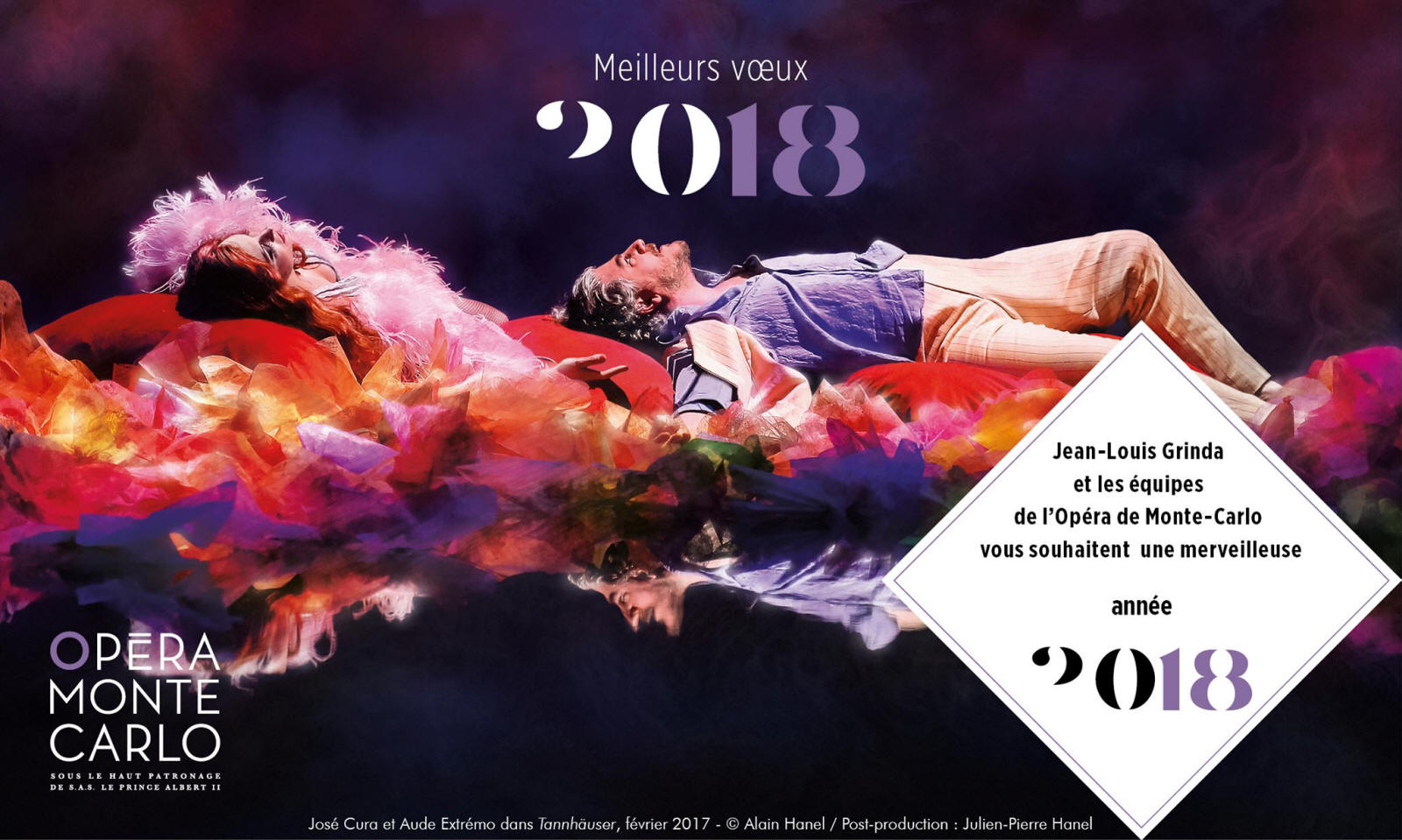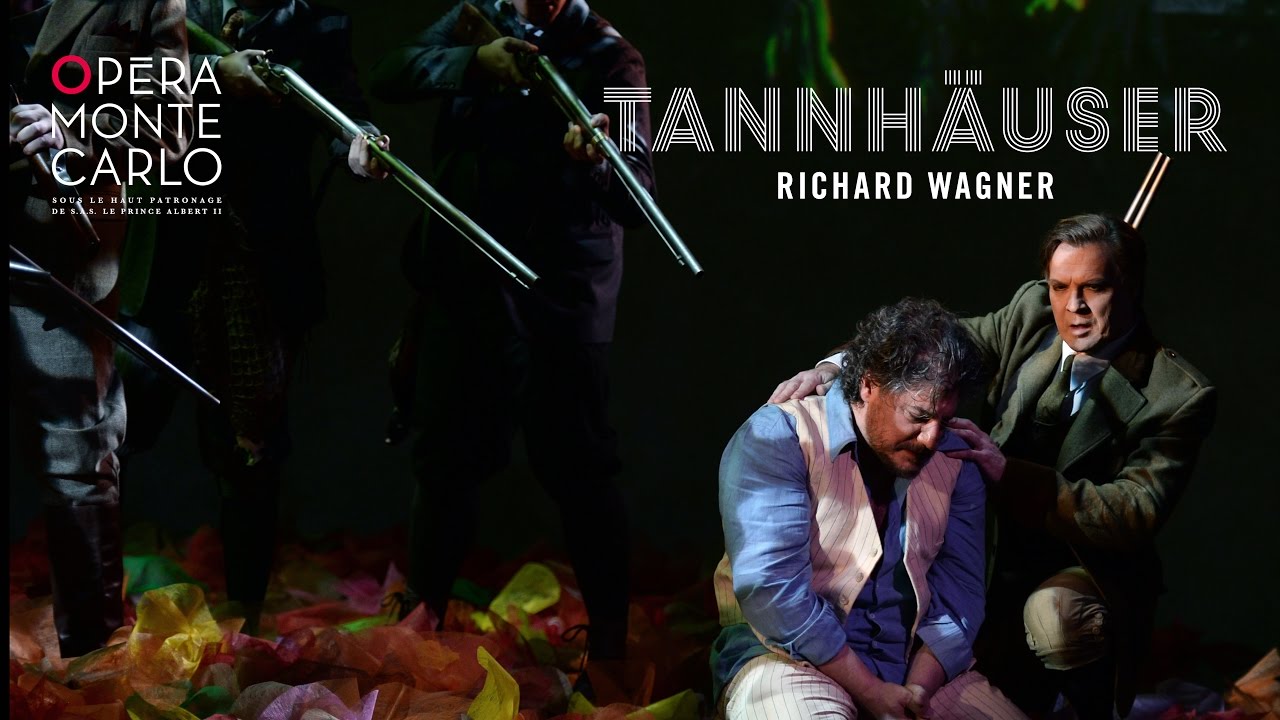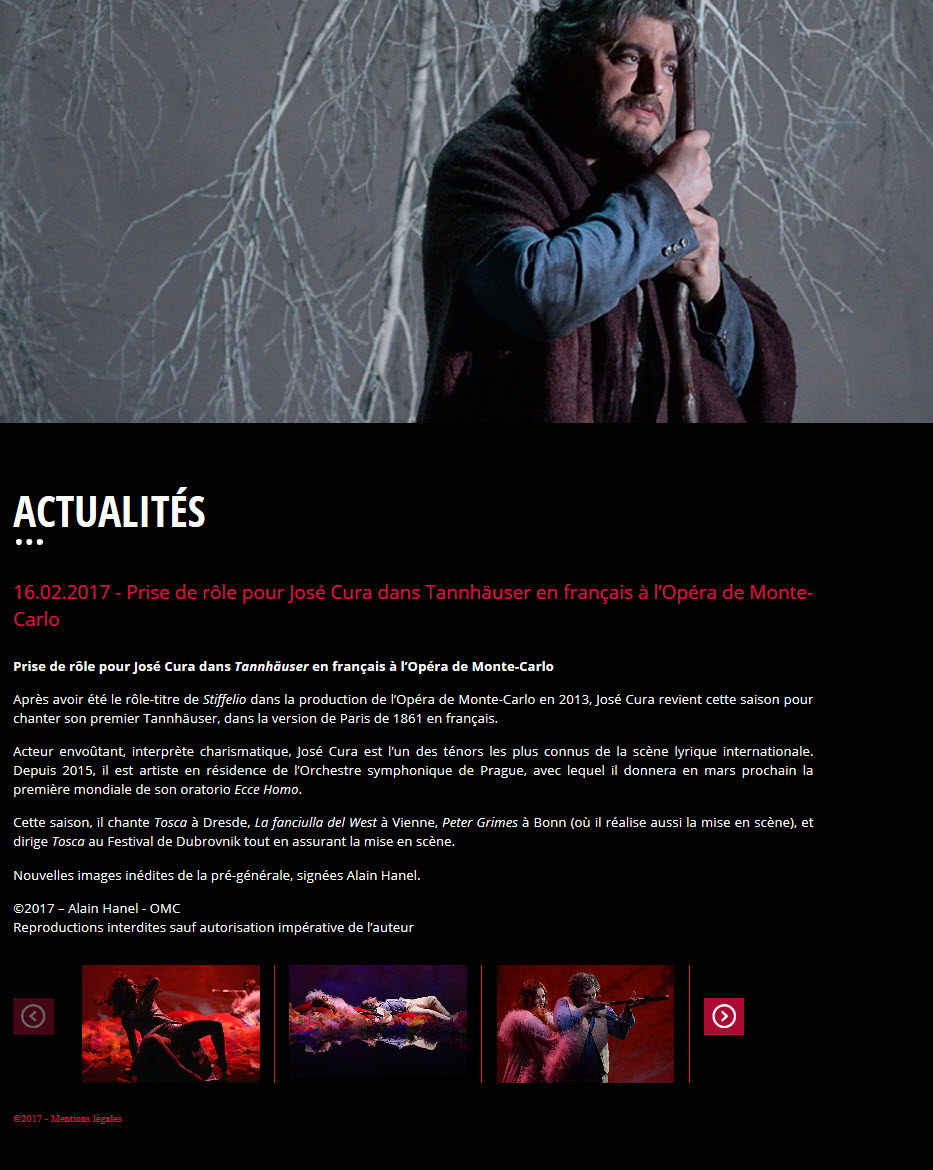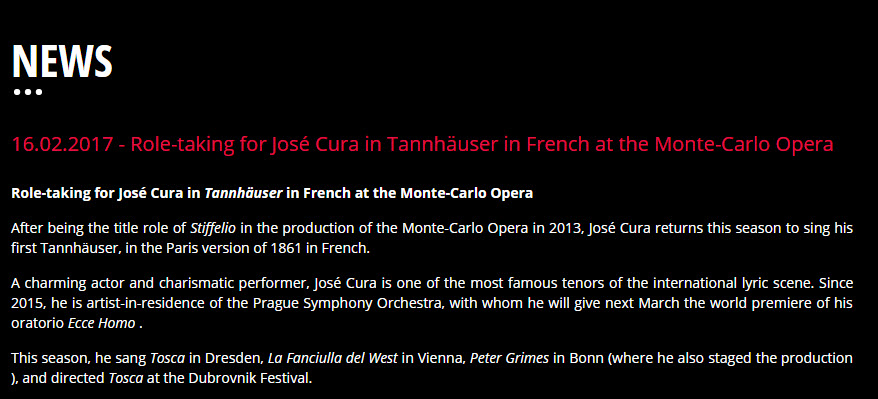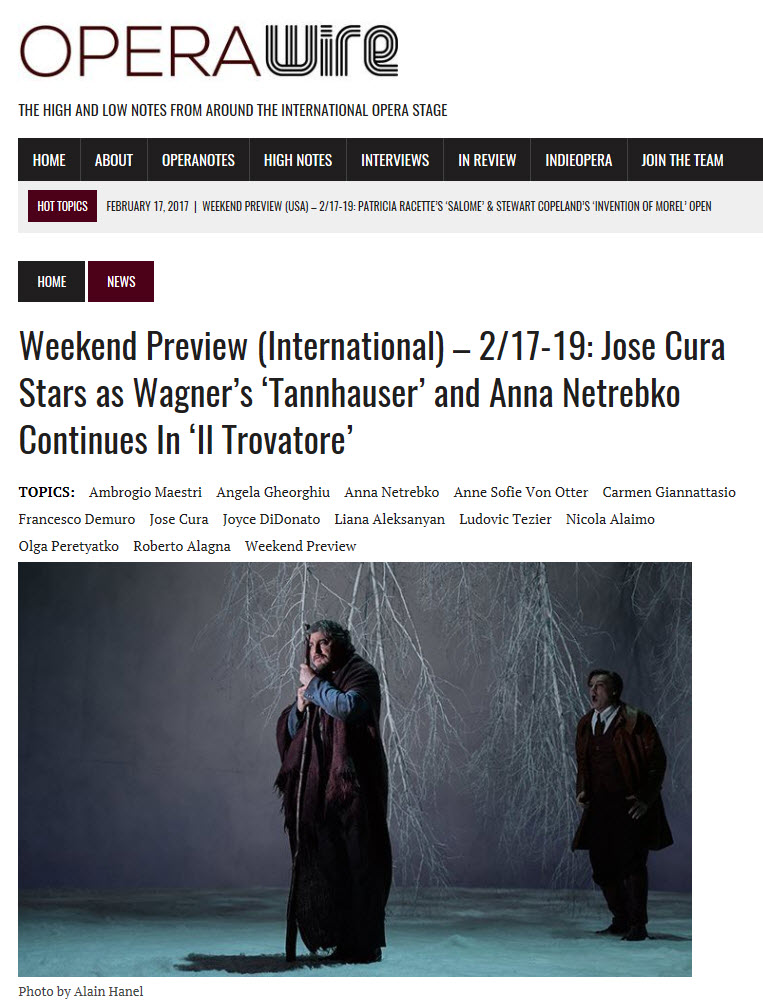|
The Cura Standard
Das Opernglas
Rakf Tuedenab
February 2017
[Excerpt // Computer-assisted translation]
Q: This season offers two eagerly
anticipated role debuts: Tannhäuser and Peter
Grimes. Starting with the Wagner opera, which comes
out in February at Opéra de Monte-Carlo: As they are doing
the French version, the language actually should not be
the problem; so what is the main challenge for you?
JC: As a performer who prefers
a natural body language (no wonder my favorite pieces are
late Verdi, Puccini and the Verismo), to convey Wagner’s
amazing musical rhetoric with a believable use of acting
skills will certainly be my biggest challenge. Also, the
sometimes forced tessitura in which the tenor sings is a
problem to face, but I trust I will be able to solve it
by adapting my singing to the needs of the score.
Q: Did the fact that they are giving
the opera in French allow you consider this role?
JC: You are my witness in this: during
these long years since we know each other, my only reason
not to sing Wagner has always been the respect I have for
the audience, a respect that doesn’t allow me to sing in
a language I don’t currently speak. Whether people like
it or not, there is a Cura “standard” in what refers to
interpretation of roles, and that standard is strongly bonded
to the connection between the text and my body language—something
that is conditio sine qua non for prose actors, but
seems not to be so in opera. Or at least not always… There
is no way of having an honest body language if the words
don’t belong to your cultural baggage. That is why, when
I was asked to do Tannhäuser in French, a language
I speak fluently, I immediately accepted, sure that this
is probably my only chance of singing Wagner.
Q: And, honestly, would the
German version really let you sweat?
JC: I could solve it by singing phonetically,
I have a very good ear after all. But it wouldn’t be what
people expect from me. One thing is people saying that Cura
is not as good as some other xx artist (for this is a point
of view), but one other very different thing is saying that
Cura is not as good as Cura himself…
Q: You once also planned
Parsifal, but for some reasons this has not been realized.
I assume that in the meantime this dream of a role might
finally be left unfulfilled?
JC: This was a concert version
that was cancelled. A pity indeed!
Q: Coming back to Tannhäuser:
For Paris, Wagner himself worked together with Charles Nuitter
on the French translation of the libretto. Much more important
were the changes to the score itself, which not only took
the conventions of the Paris opera houses of that time into
account, but also shows quite clearly the composer’s development
during the years, as in the meantime he had already finished
his work on Tristan. Which version of the score precisely
do you follow in this new production at M-C Opéra and what
are the merits of the different editions of Tannhäuser?
JC: I haven’t got enough authority
in Wagner to answer your question. I am discovering a whole
new world now, and in such discovery I am proceeding with
the innocence of a child and the extreme precaution of a
wise adult…
Q: In Monte-Carlo the opera
will be conducted by Nathalie Stutzmann – a singer-conductor,
as you yourself. Have you already experienced her working
in the pit and how does the communication about the musical
interpretation goes on?
JC: I am not a singer-conductor,
but a composer-conductor who later on became a singer. But
I understand your question in the sense that we all, me
first, expect Mrs Stutzmann to be sympathetic as only a
singer can be when conducting equals. It is certainly a
huge opera full of very difficult singing, so a conductor
that can “hold” the orchestra with authority while accompanying
the singers with love and understanding is determining.
Q: Do you expect that your approach
of the role will differ from what we usually hear?
JC: As I said, my knowledge of Wagner
is just beginning so I cannot tell if I will be able to
do a “creation” out of Tannhäuser, or just a good professional
work. Let’s talk again in March…
Q: Just three months after
Tannhäuser, the next big role debut will be coming
up: Peter Grimes. This time, at the Oper Bonn, you
are also doing the staging as well as the setting. Isn’t
this quite a challenge for an artist preparing a new role?
JC: It is a huge challenge
and a big risk: the challenge has to do with the amount
of work on my shoulders and the risk with spoiling myself
with the fact of creating my interpretation in the best
of ways: in total agreement with the director… Jokes apart,
it is a hell of a work, but also a super rewarding one:
The epitome of artistic enjoyment! If it would have been
a more frequent opera, probably I wouldn’t have directed
and sung it, but when will I have again the possibility
of staging such an amazing piece that is not so often performed?
I couldn’t lose this one chance!
Q: As I remember Peter Grimes
is one of your “dream roles”. What attracted your interest
in this role – and what are the challenges – vocally? dramatically?
JC: Coming back to what I said
about my difficulties to deal with Wagner’s musical rhetoric
and dense libretti, Peter Grimes is exactly the opposite:
the perfect symbiosis between music, text and action. A
dream for the kind of performer I am. Every moment is a
challenge in this piece, but such a tasty challenge that
each step taken with risk is also a step taken with pleasure.
Q: What differences, resp.
what similarities between your two new roles, Tannhäuser
& Peter Grimes, do you see – vocally? dramatically?
JC: Both are marginalized guys,
but for different reasons: While Tannhäuser challenges his
fate, Peter Grimes suffers its consequences. Vocally, Tannhäuser
relies more on great music, while Grimes relies on the use
of the voice to convey a state of spirit sometimes just
by the voice alone, like in the big monologue of the third
act.
Q: What are the crucial points
in regards to the staging? How far have you gotten with
the conception of your staging – and can you already give
us some insights?
JC: The show will be based
on the multi-uses of an emblematic Aldebourgh’s building…
Q: This season also offers
three of your most important roles: Calaf, Dick Johnson
in Fanciulla and Otello. Would you consider these
roles as your current signature roles?
JC: I surely can say that Otello
and Dick Johnson are signature roles of mine, as well as
Canio, Samson and, hopefully in a couple years, also Grimes.
About Calaf, although I have portrayed him several times
with success, I don’t consider it a signature role because
he does not offer enough “flesh” to carve. It is a night
of great singing, not a night of deep psychological inside.
Q: Any more new roles to come?
JC: Developing Tannhäuser and
mainly making Grimes mine will take some years, so no other
roles as of today. On the symphonic side, yes, next March
is the world premiere in Prague of my oratorio Ecce Homo,
written in 1989!
Q: It’s about 25 years ago
now that you relocate you and your family’s lives to Europe,
where your international career started soon. We followed
your steps and sometimes unusual ways all over the years
and for me personally it is always a great pleasure to talk
to you – this time even with a bit more delight, because
it relates somehow to my own jubilee: Your first interview
has been one of the big cover stories of “Das Opernglas”
in 1997 – in my very first year as editor-in-chief of this
magazine. Looking back to all these years, you too will
sum up that the business has changed a lot, right?
JC: The world has changed a
lot, and our business has changed with it. The new technologies
in general, and internet in particular, have inoculated
in the mind of many that long-time effort and studies are
not necessary anymore to succeed. Nowadays, everybody is
a photographer, composer, writer, movie director, singer,
actor, cook… Never more than today has the difference between
being “famous” and being “great” been so accentuated. Once
upon a time you needed to be good to be famous. With time,
you also may become great and be venerate for your wisdom.
Today you can be easily famous, without having anything
to impart to society apart from your own home-made garbage,
canalized through “the world wide net”. So far so good:
everybody has the right for their minute of fame… But in
the long run this is seriously affecting the quality with
which we do things as the great majority of people prefers
to “enjoy” bad stuff with which they identify rather than
great stuff that make them feel inferior if they are not
well in their heads. Other’s greatness has always had two
different effects in people: envy and hate —because I cannot
be like you—, or admiration and gratitude —because others
greatness stimulates me to improve, to grow, to become a
better individual. This ancient phenomenon, old as our species,
is today multiplied ad infinitum by the accommodating easiness
of internet.
Q:
One last question, coming back once more to Tannhäuser:
This is not only an opera about a singers contest and the
contrast of the different types of love. It also deals with
the status of the artist in society and with the meaning
of art itself. What would be your answer today to the different
questions in this opera?
JC: I think the answer to this question is embedded
in my long answer to the question before.
|
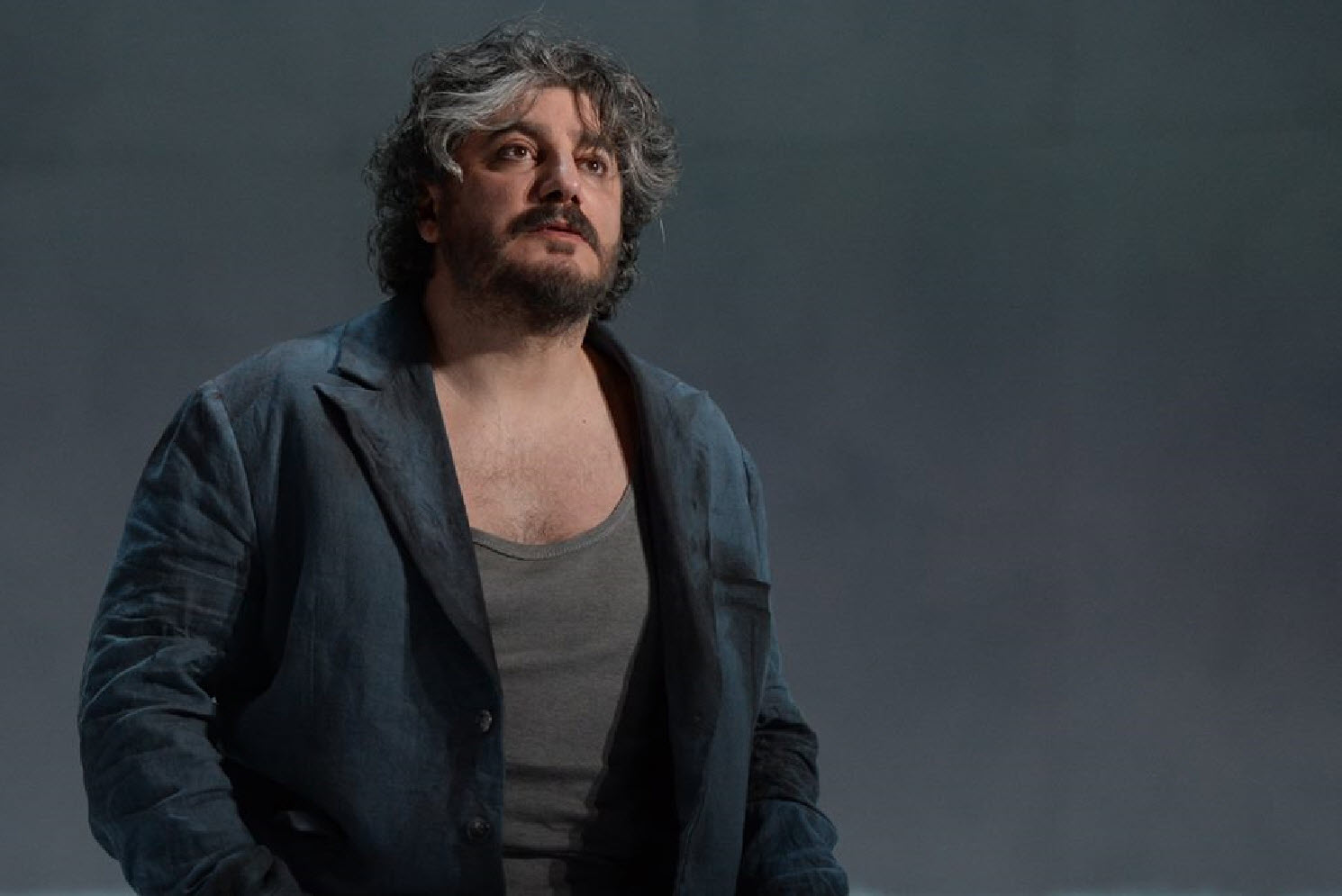

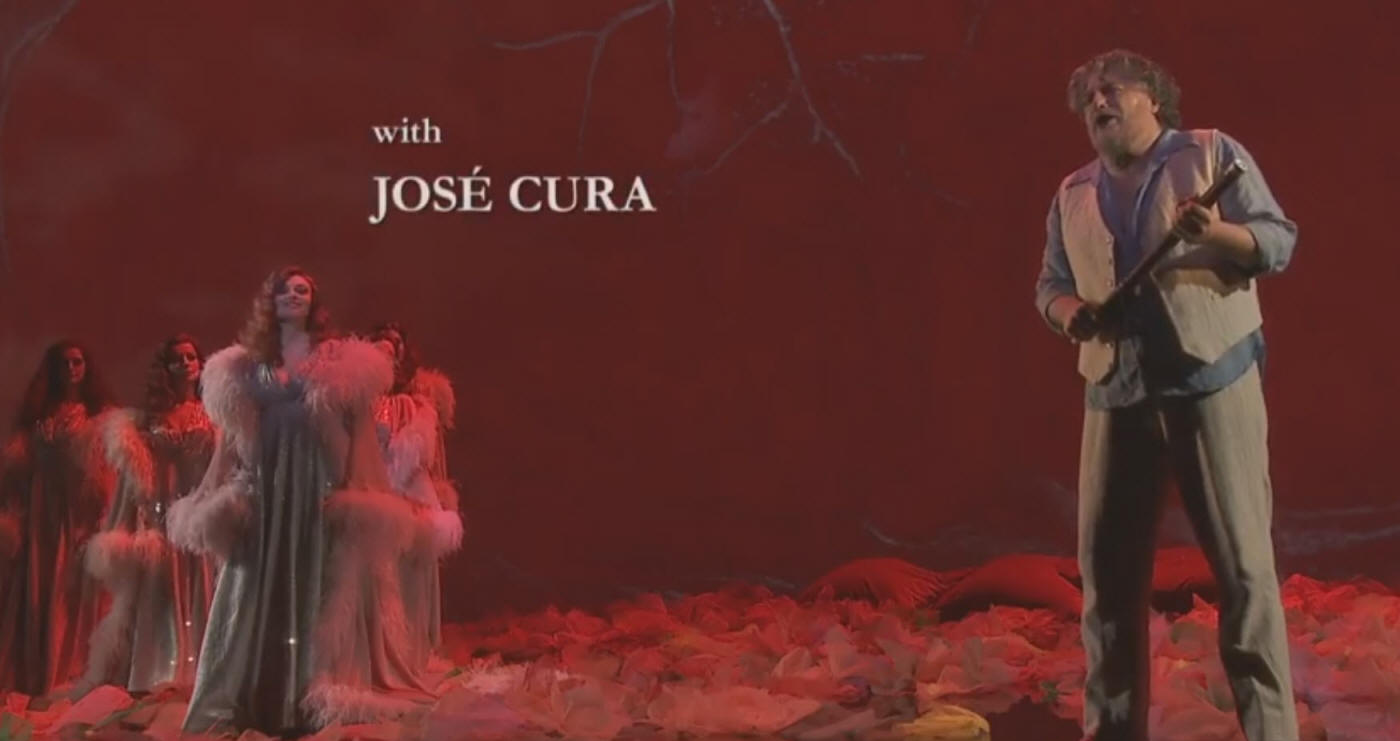
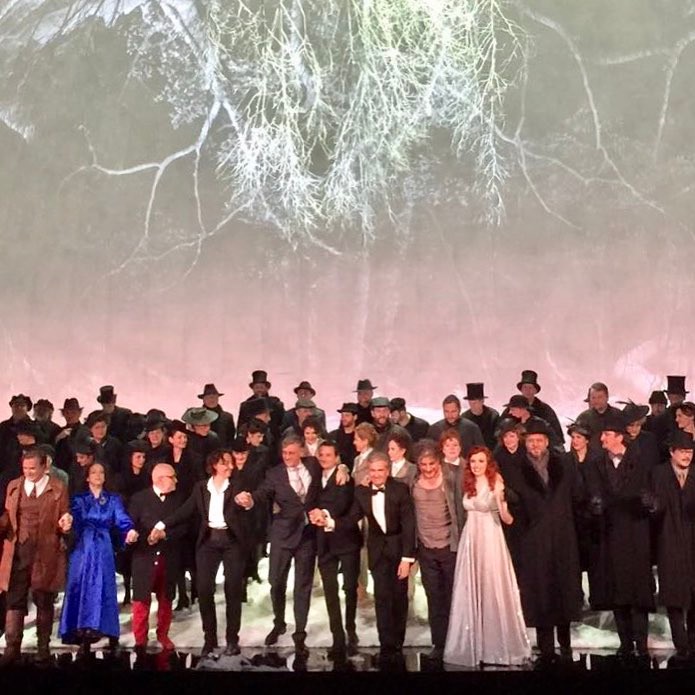

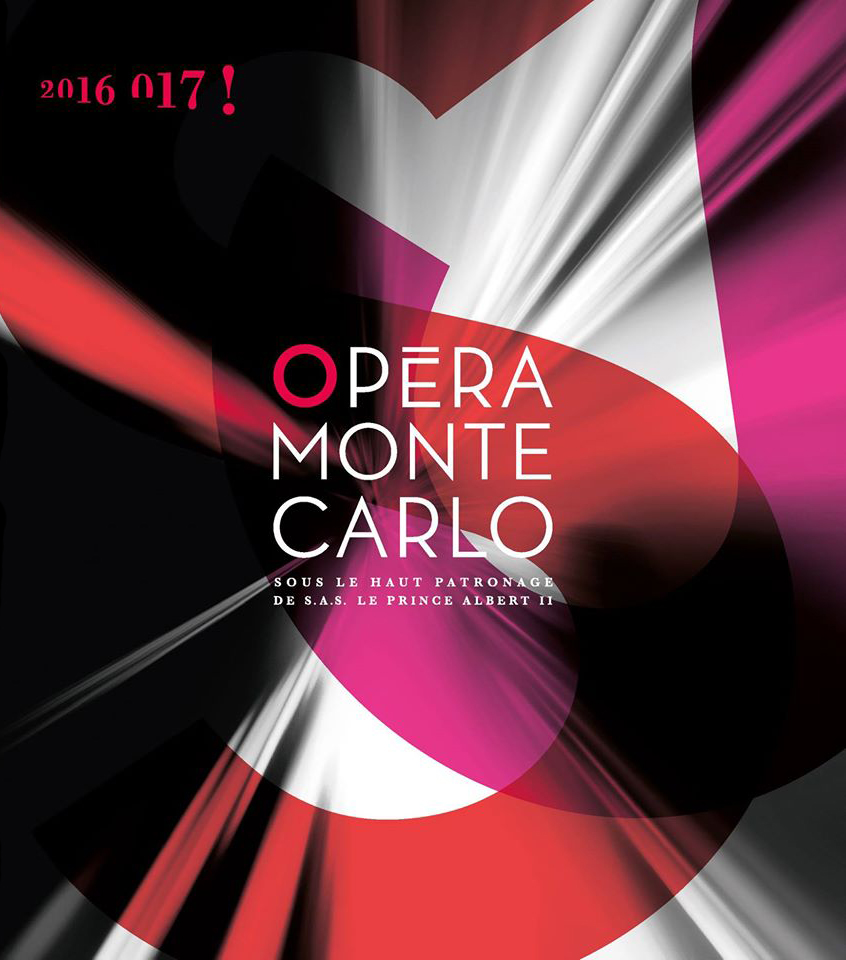
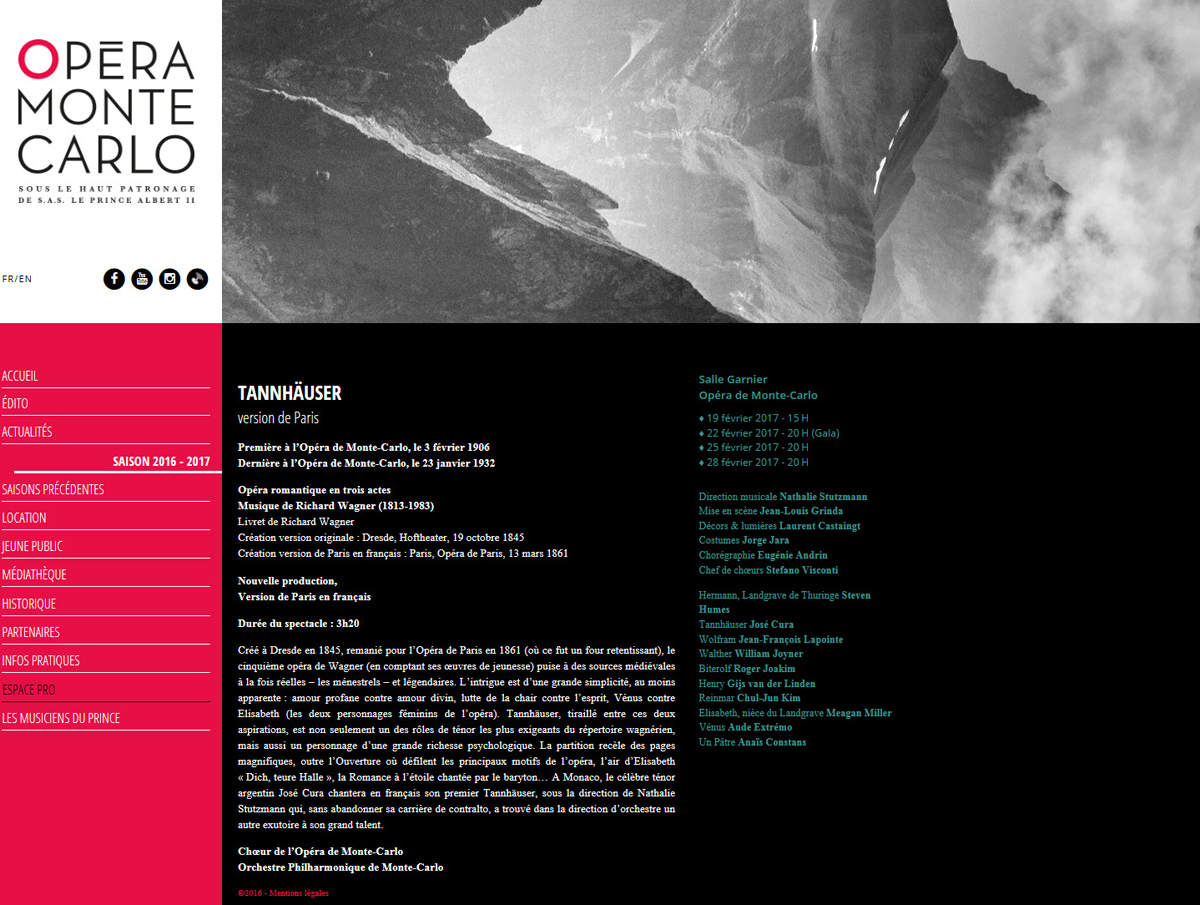
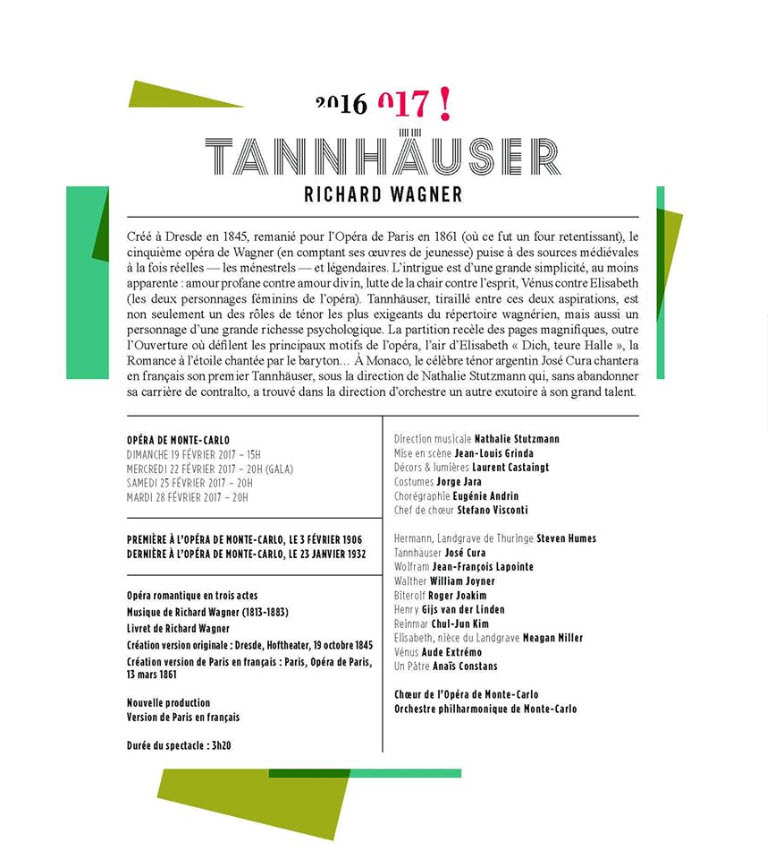
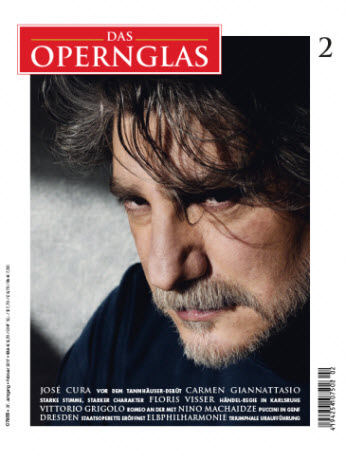
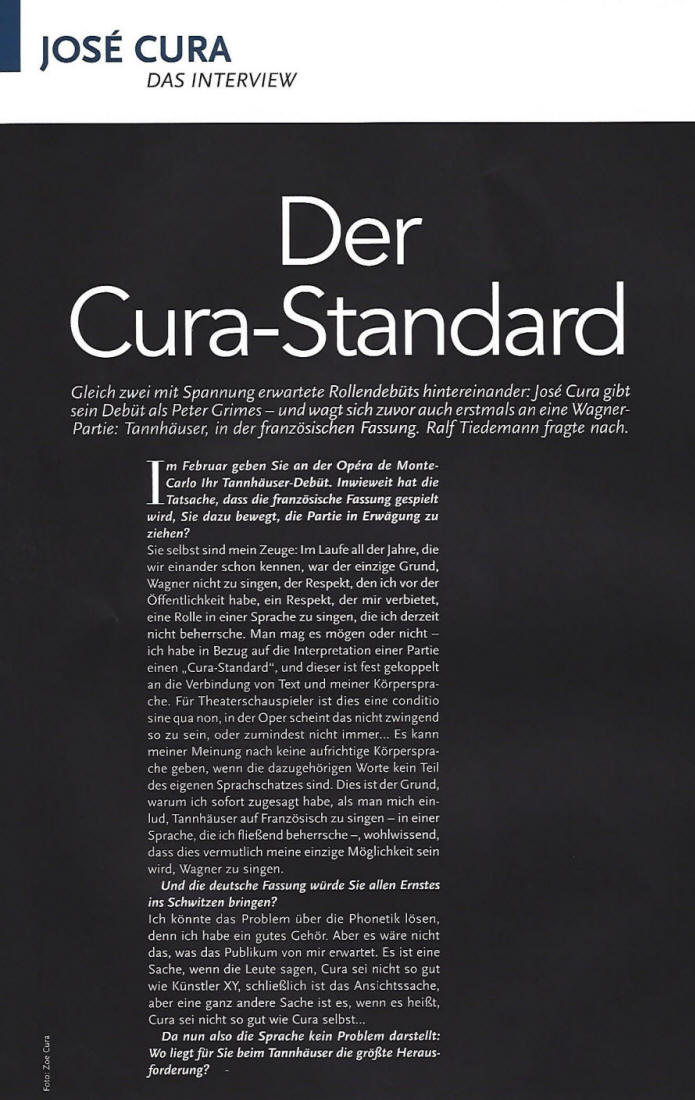
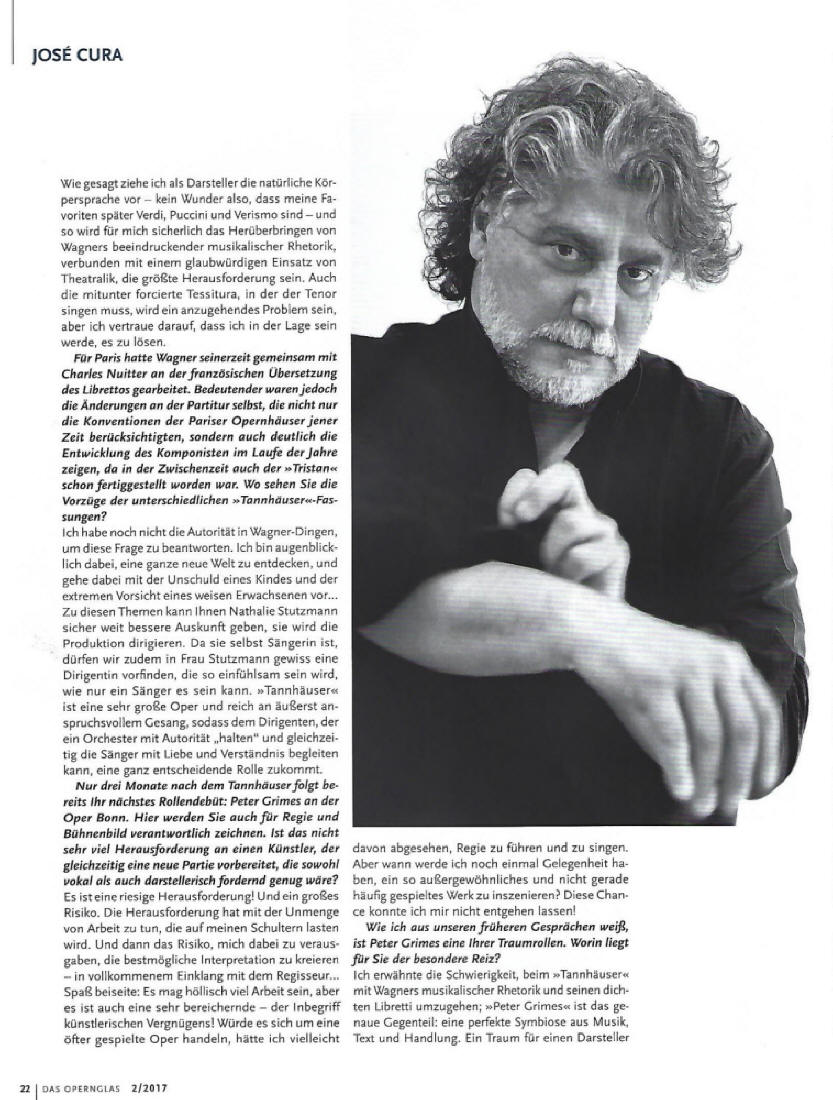
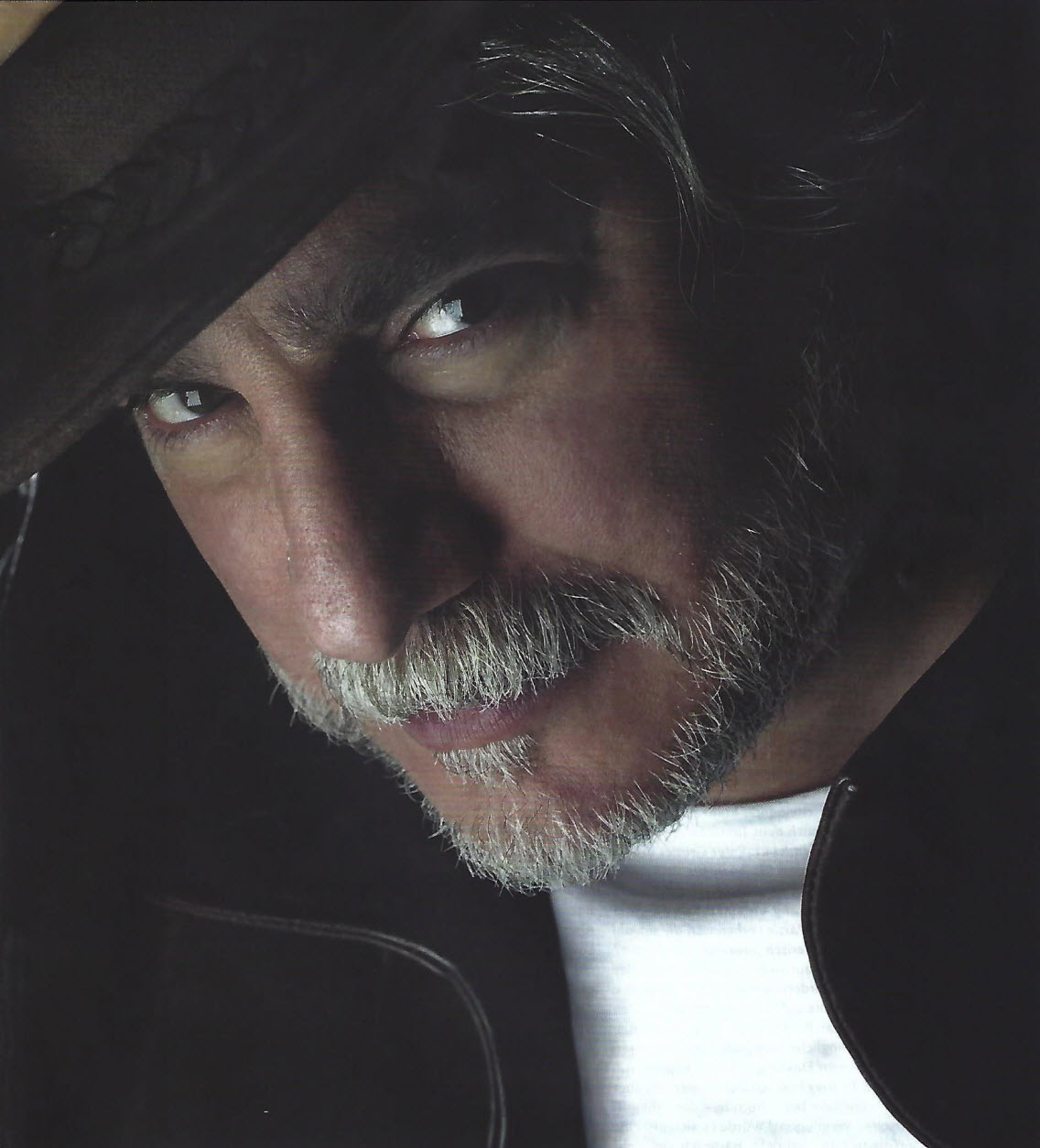
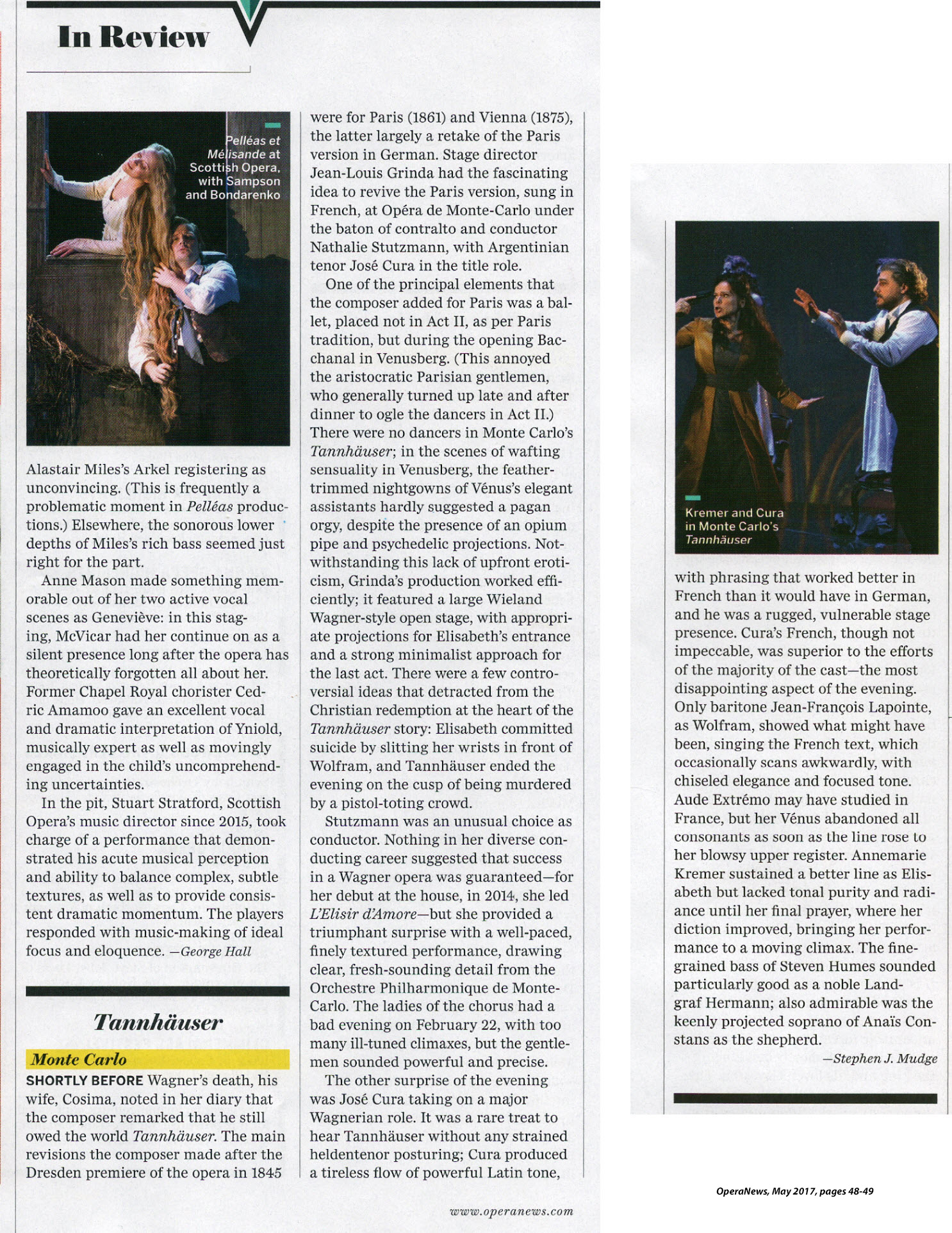
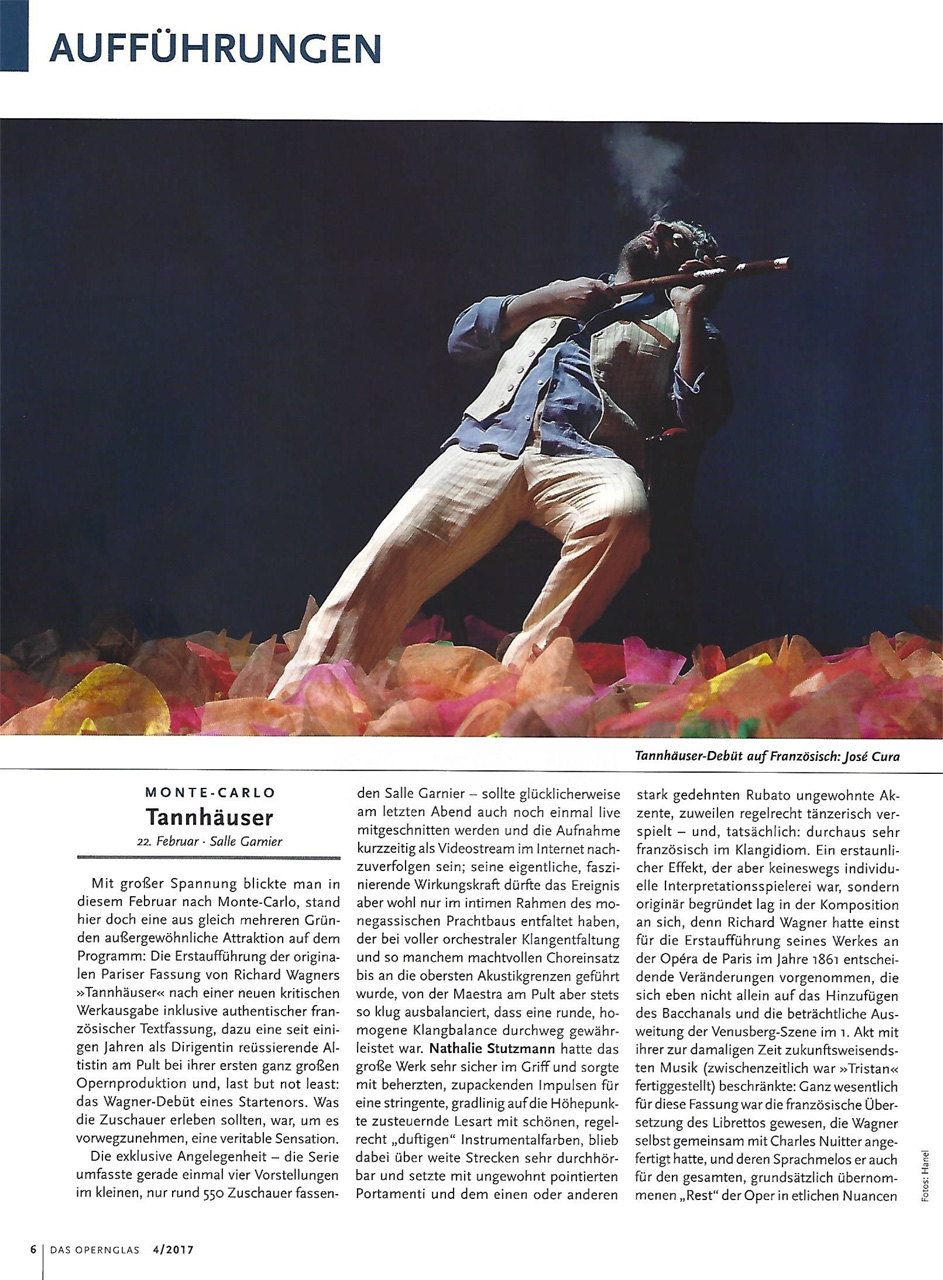
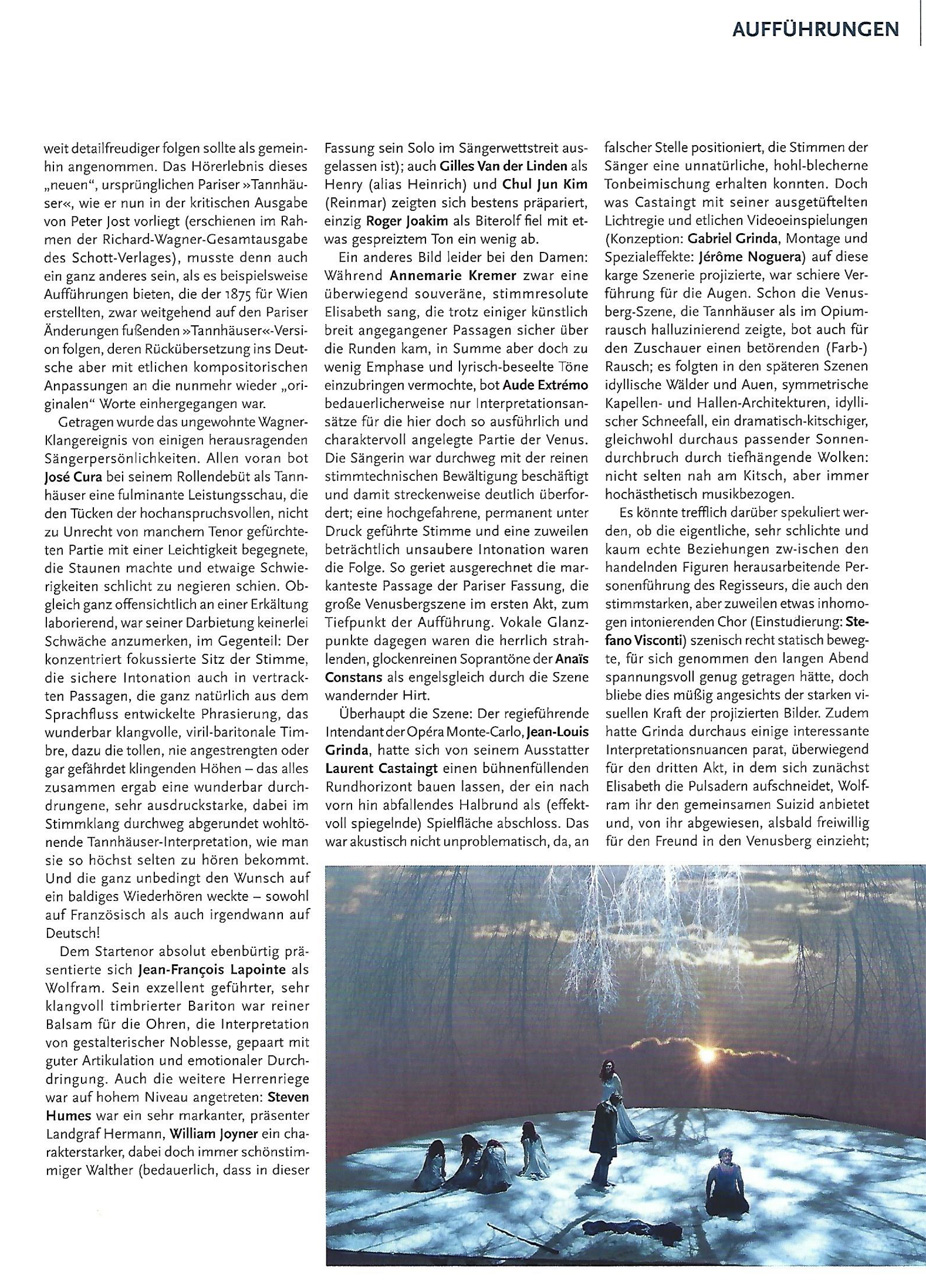
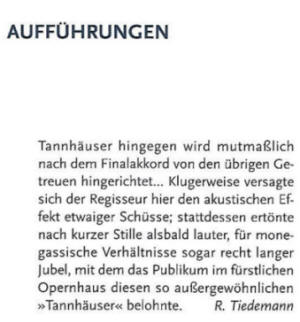
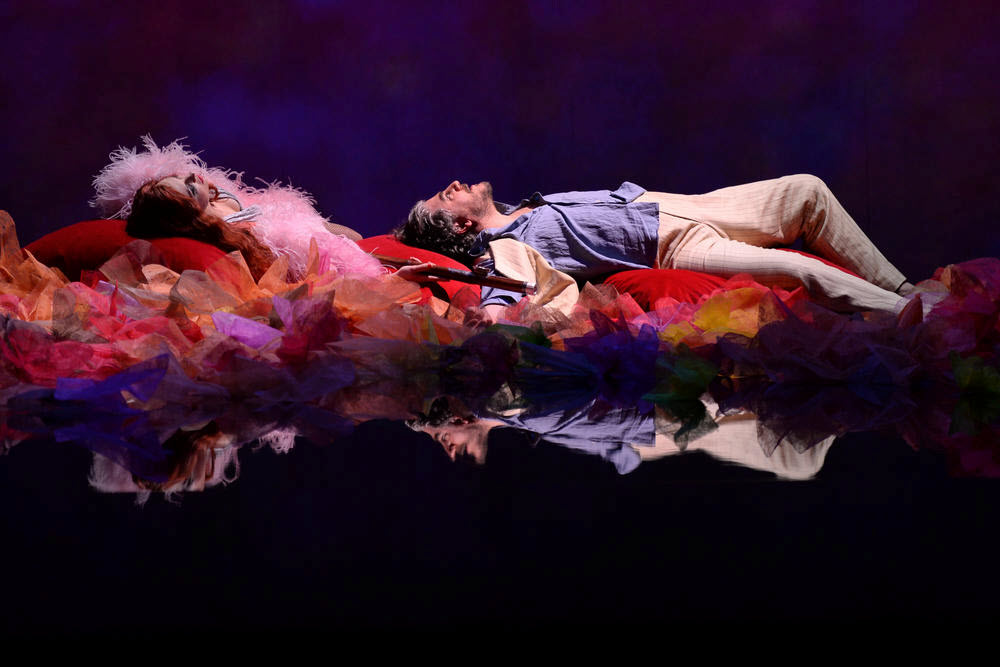
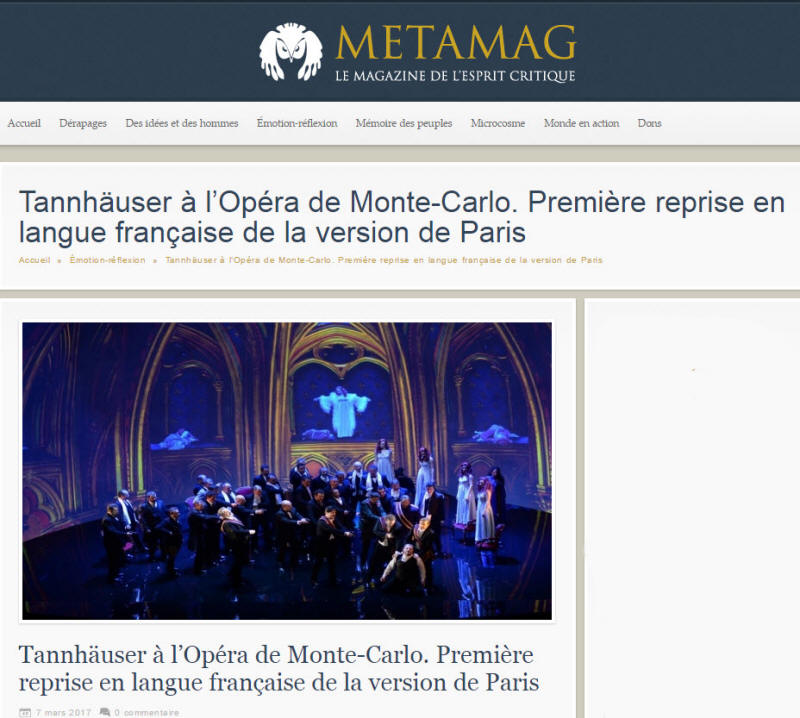
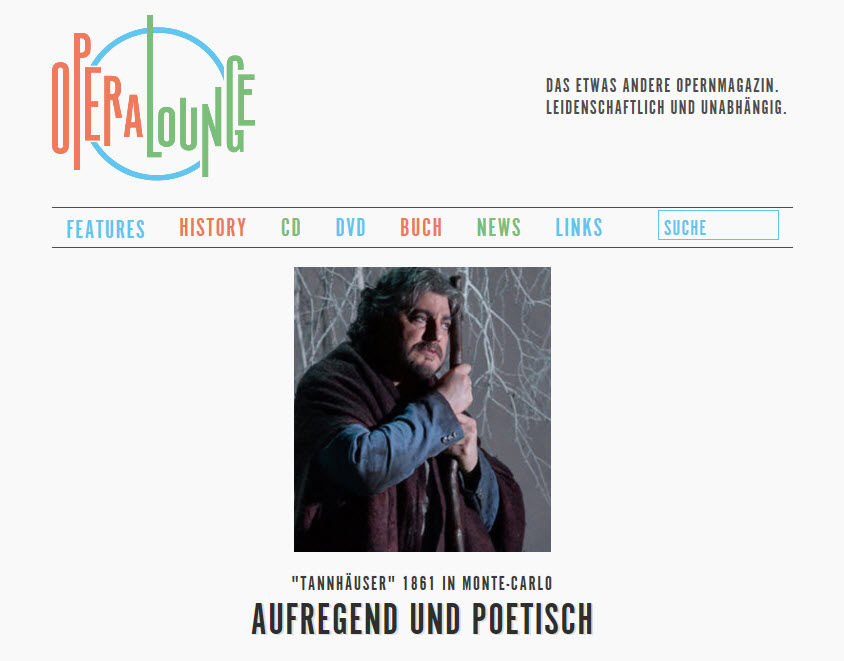
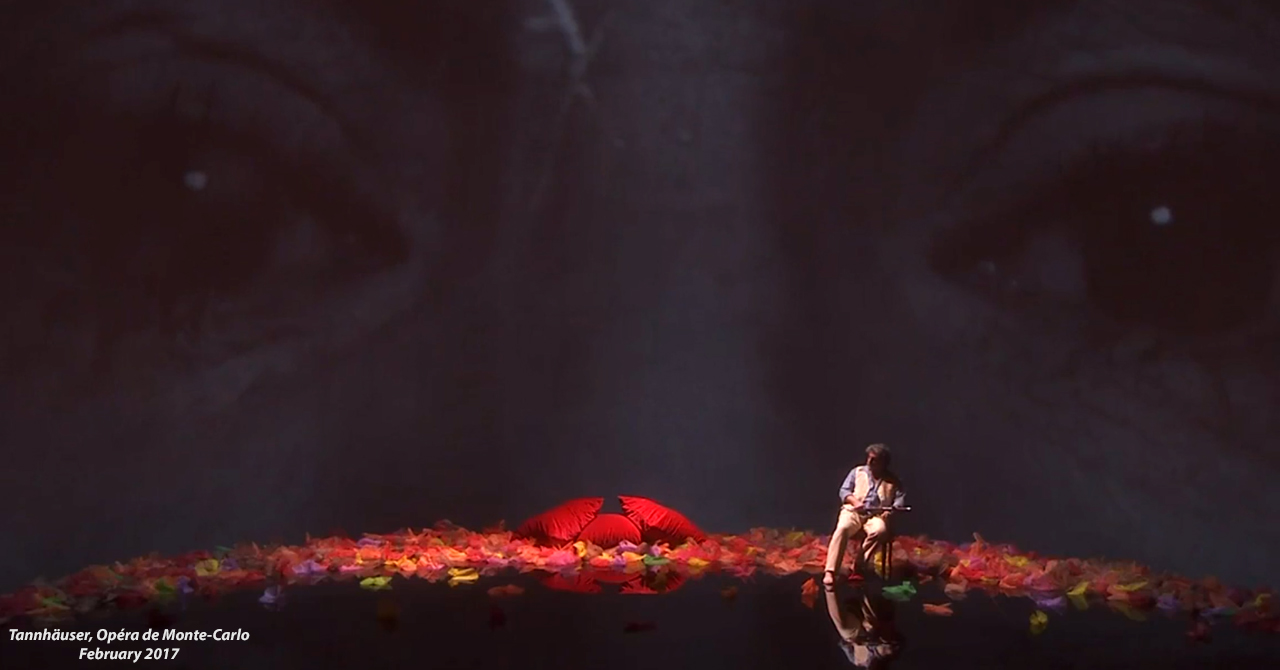

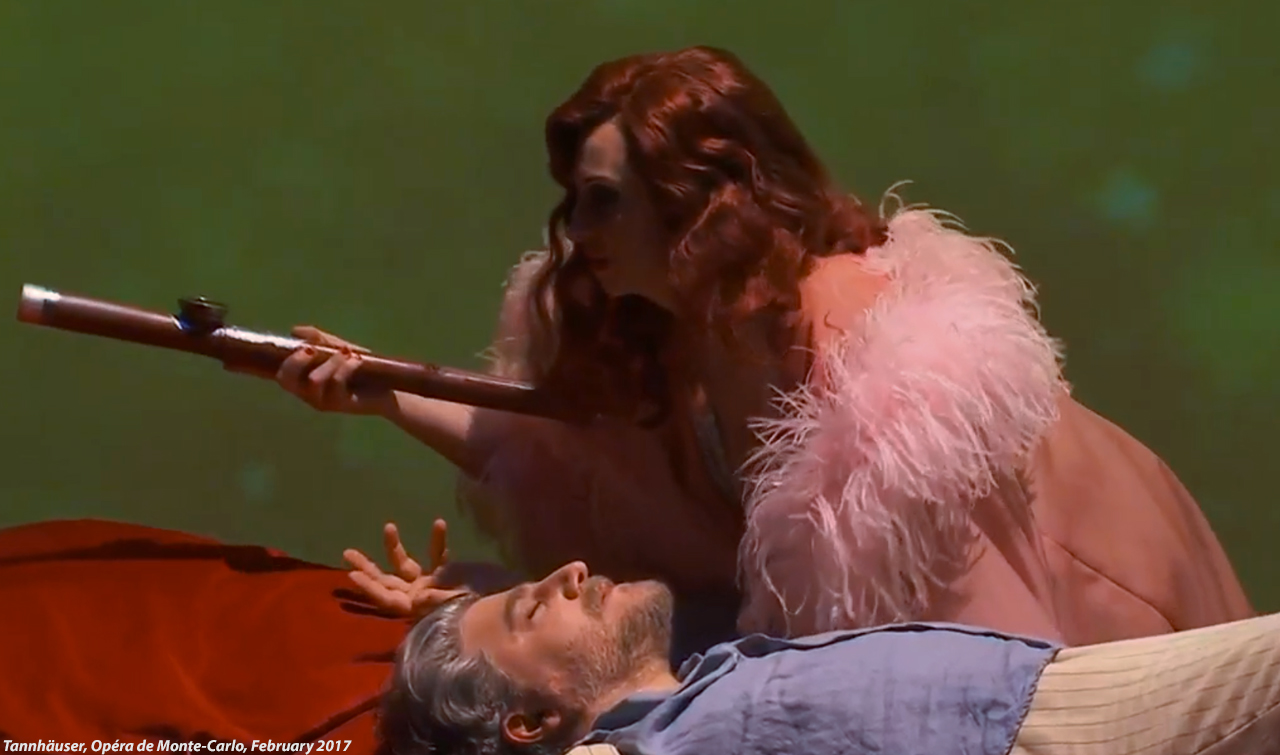
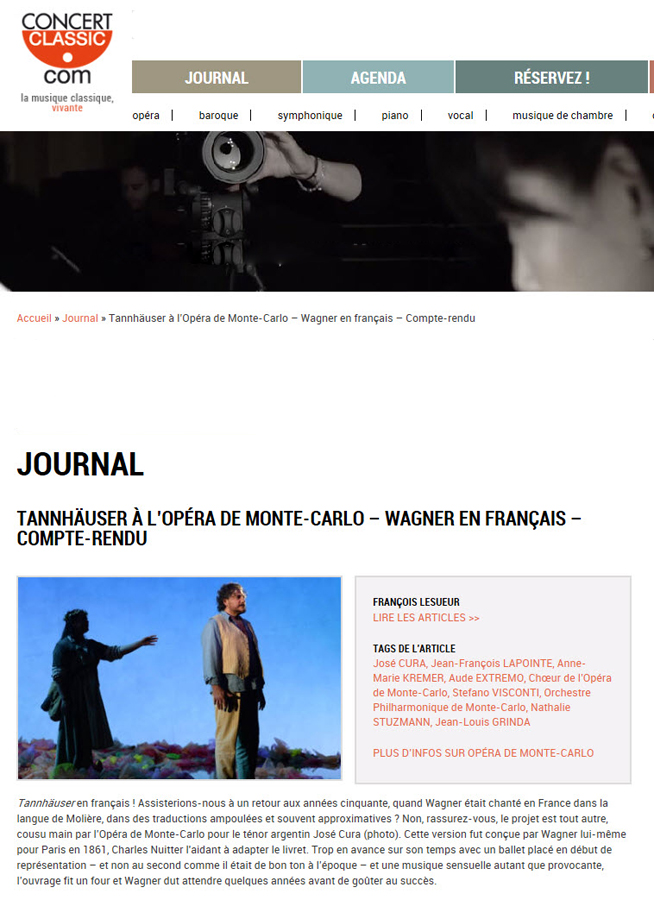
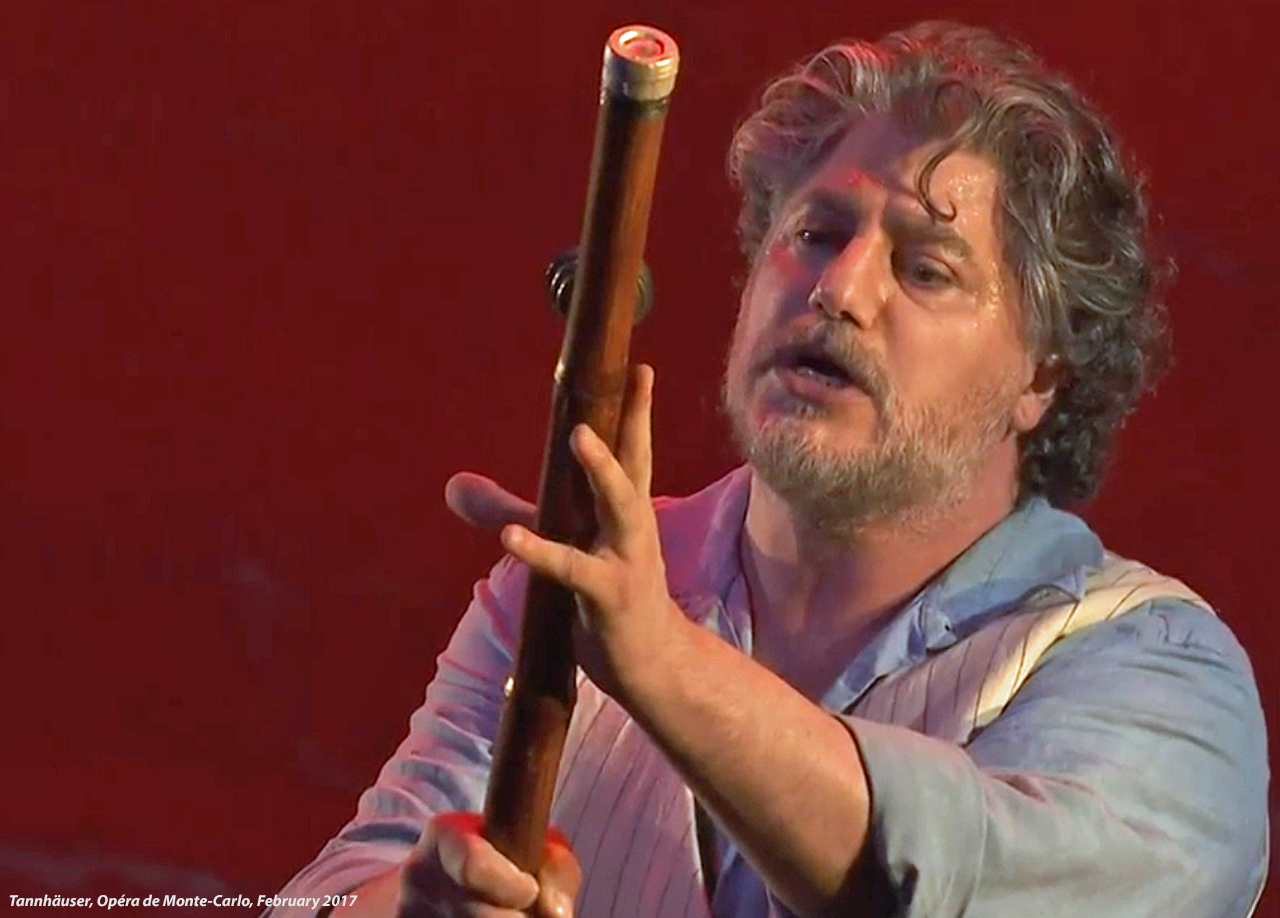
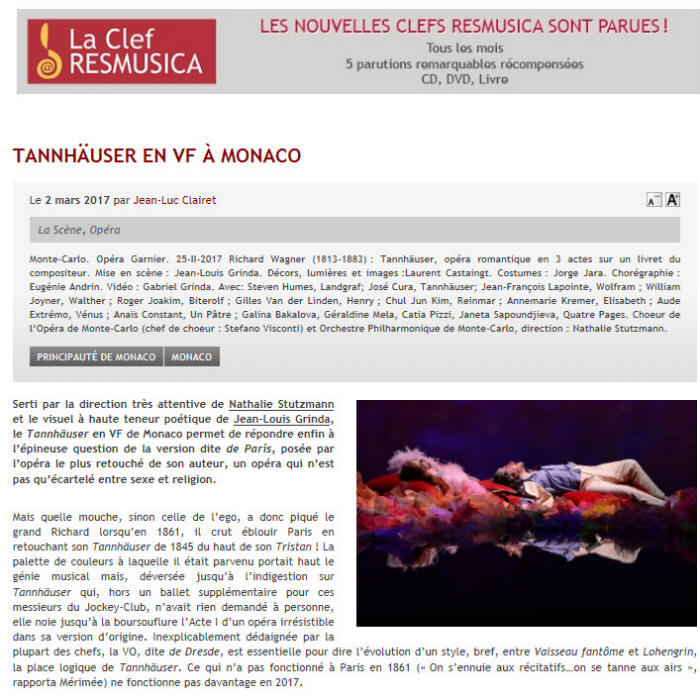
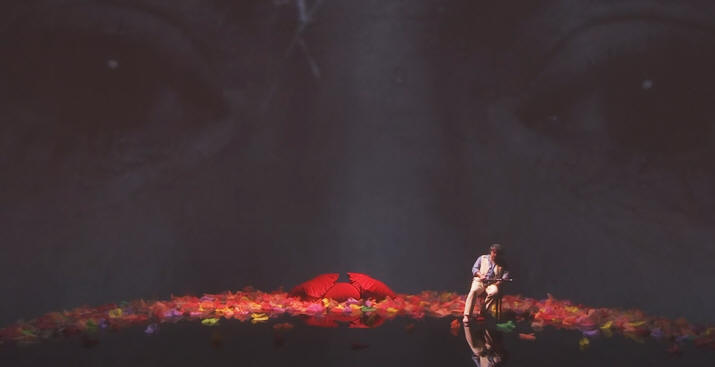
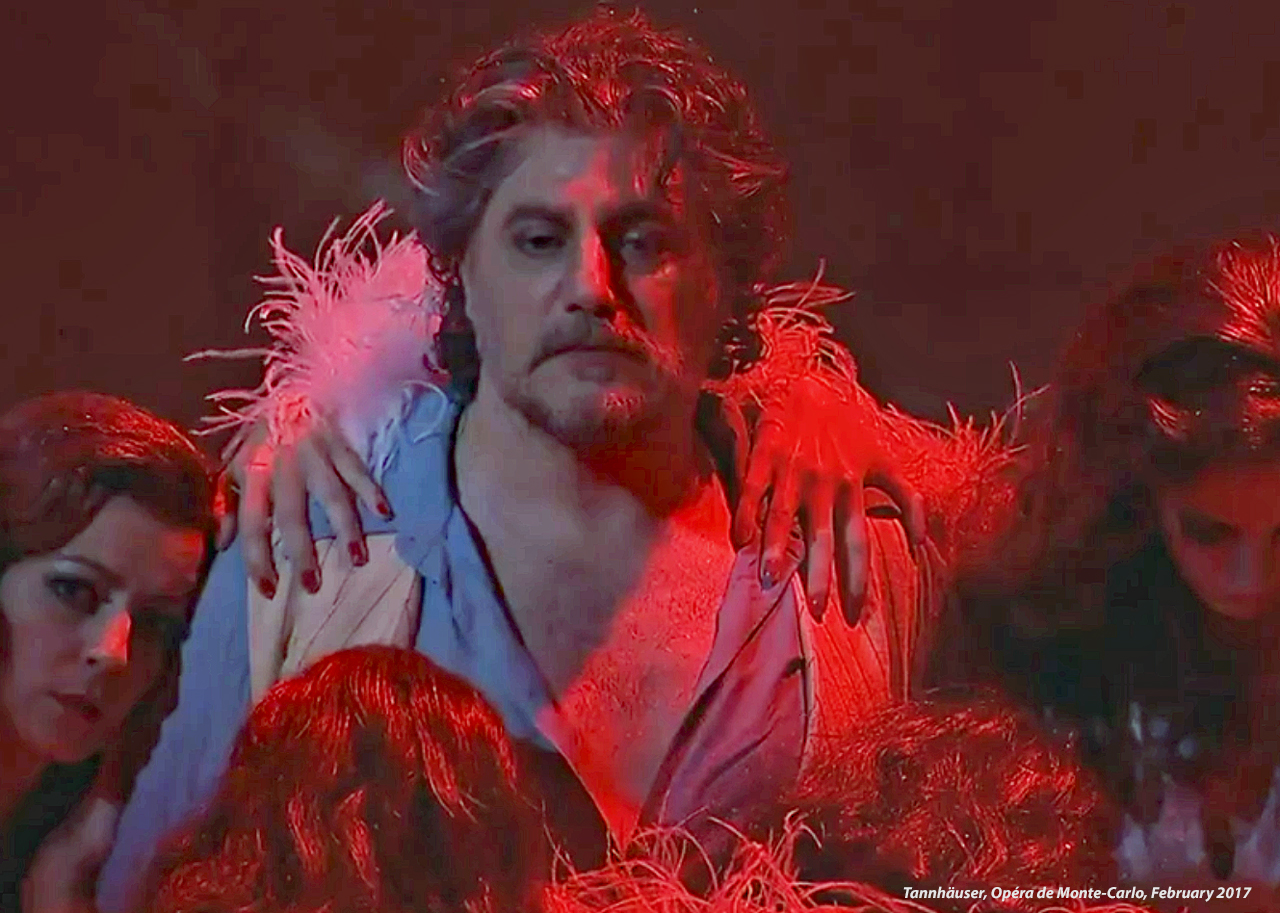
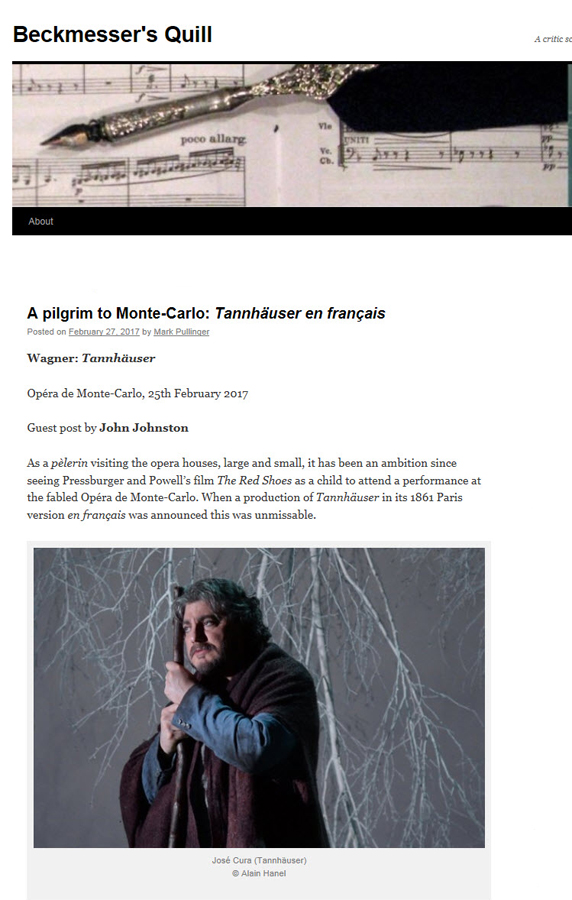
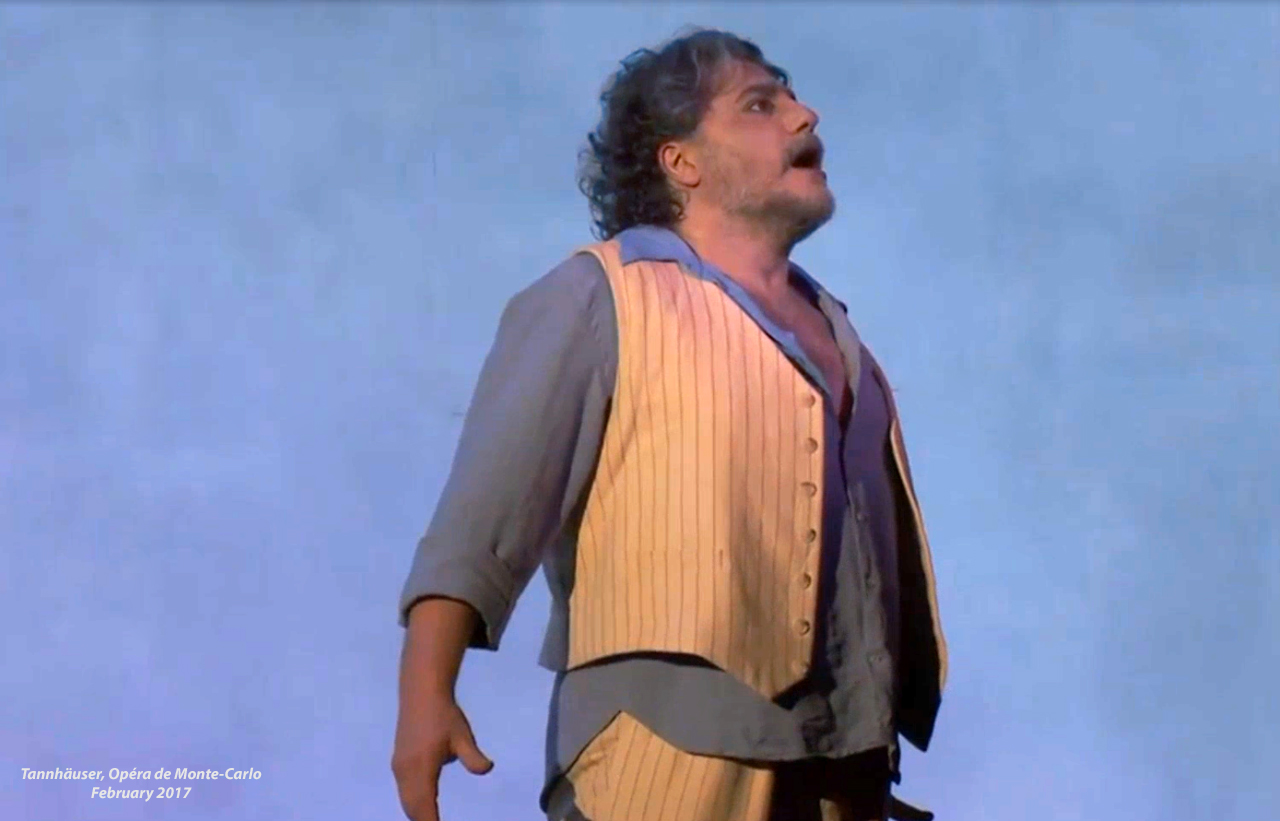
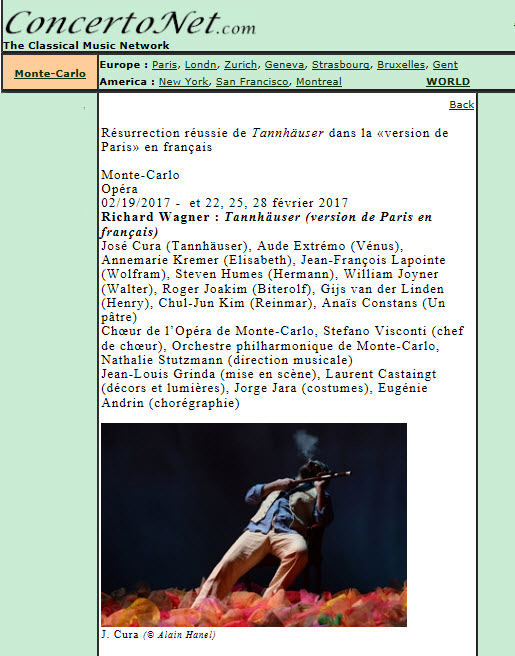
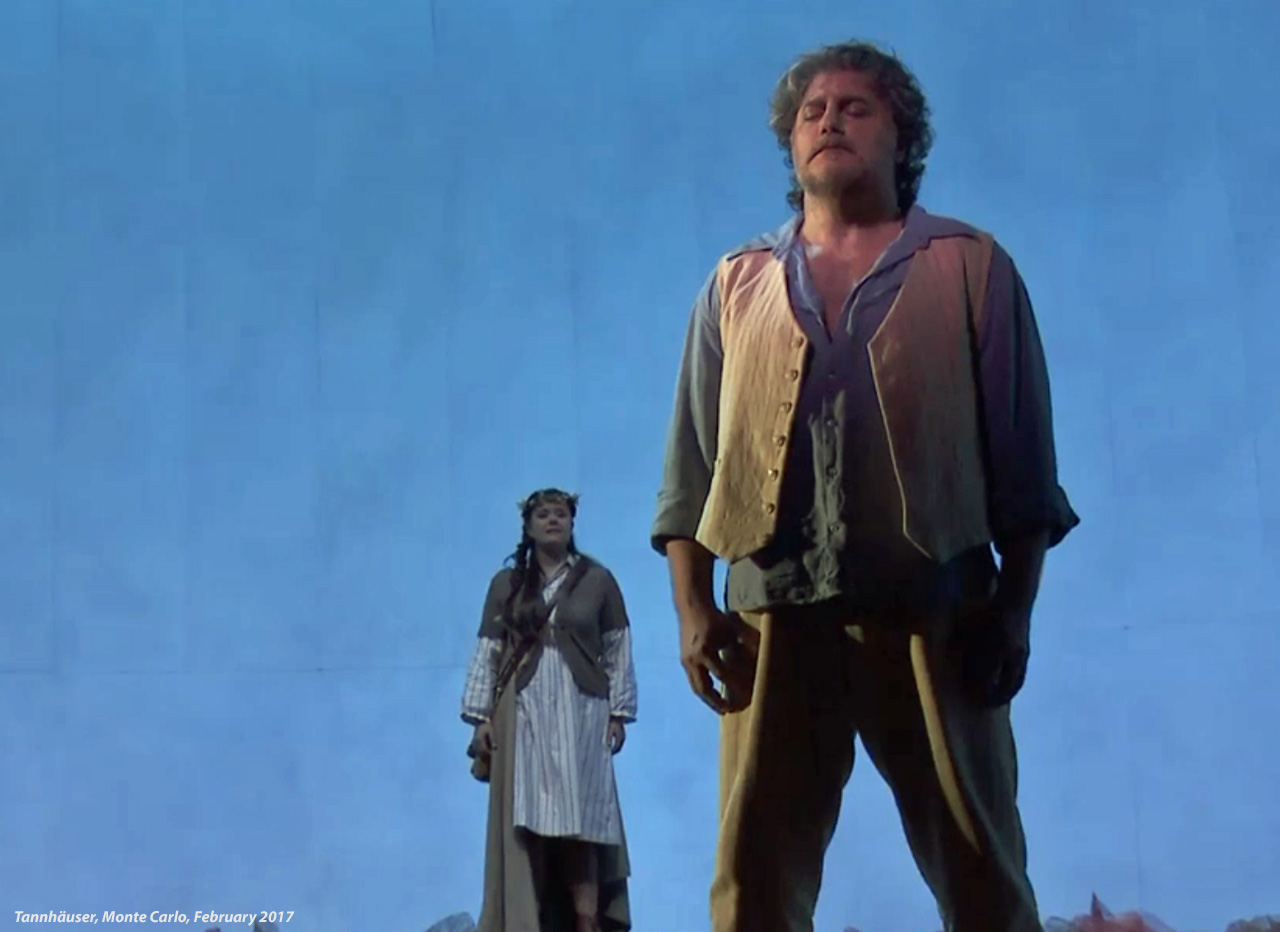
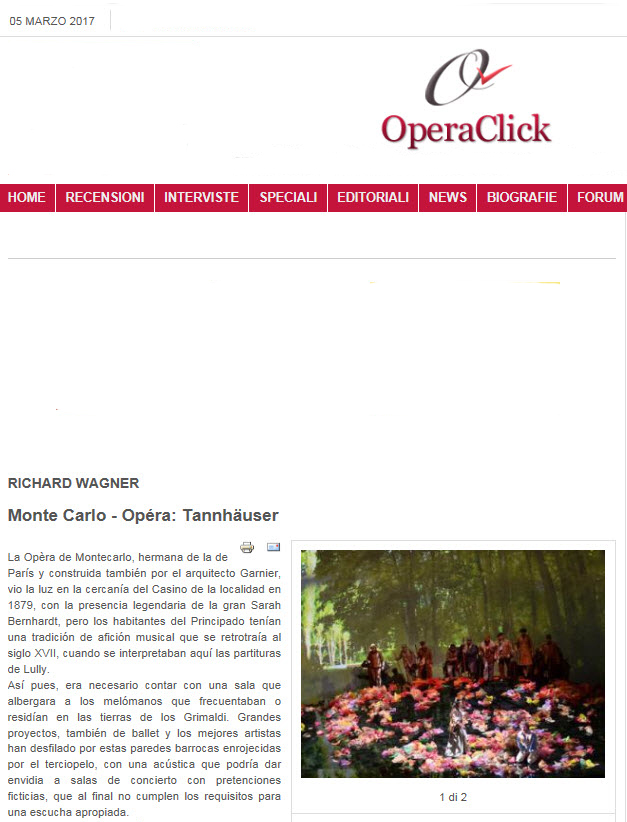
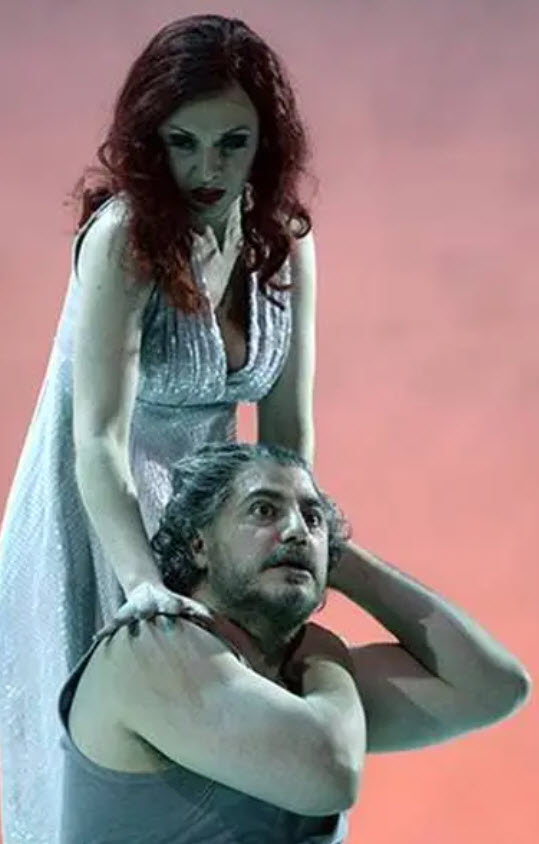
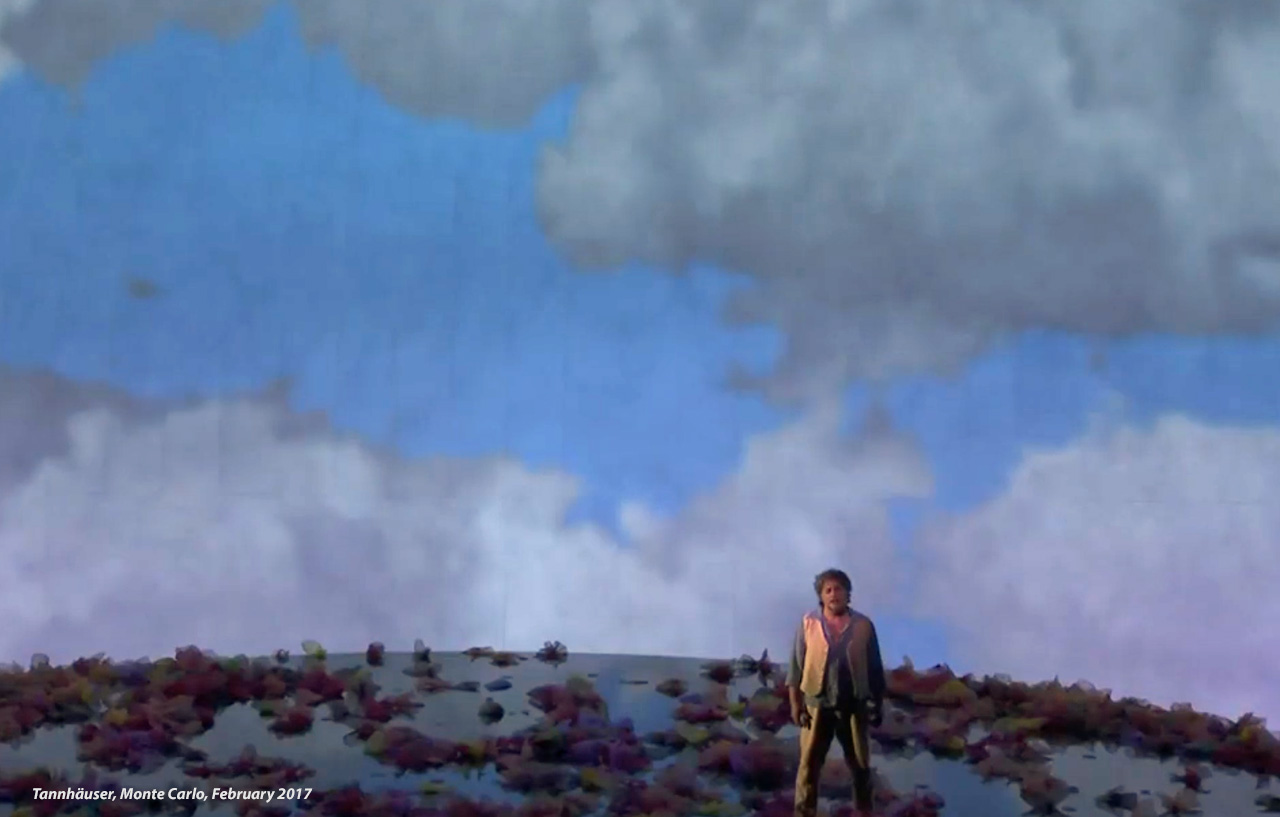
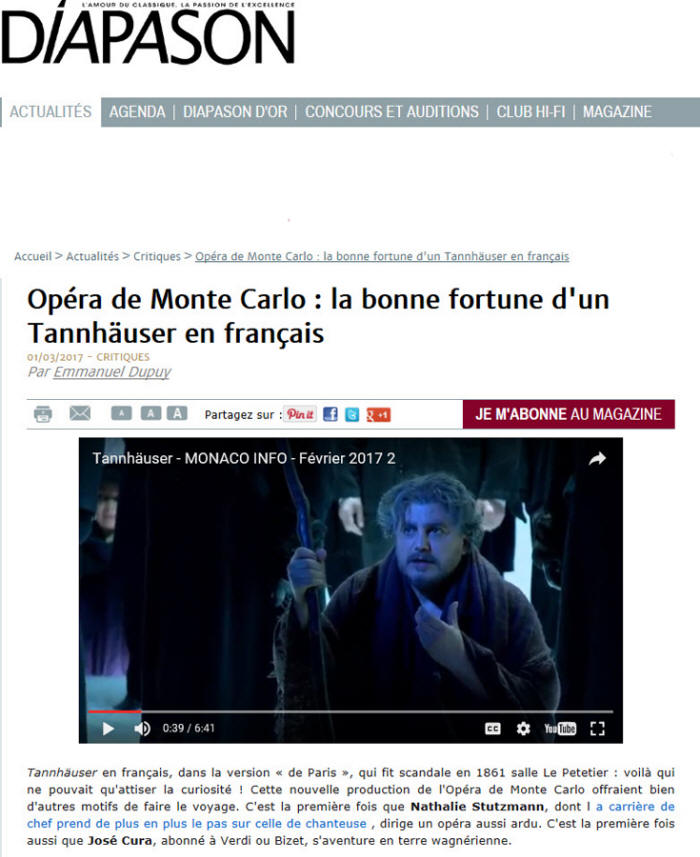
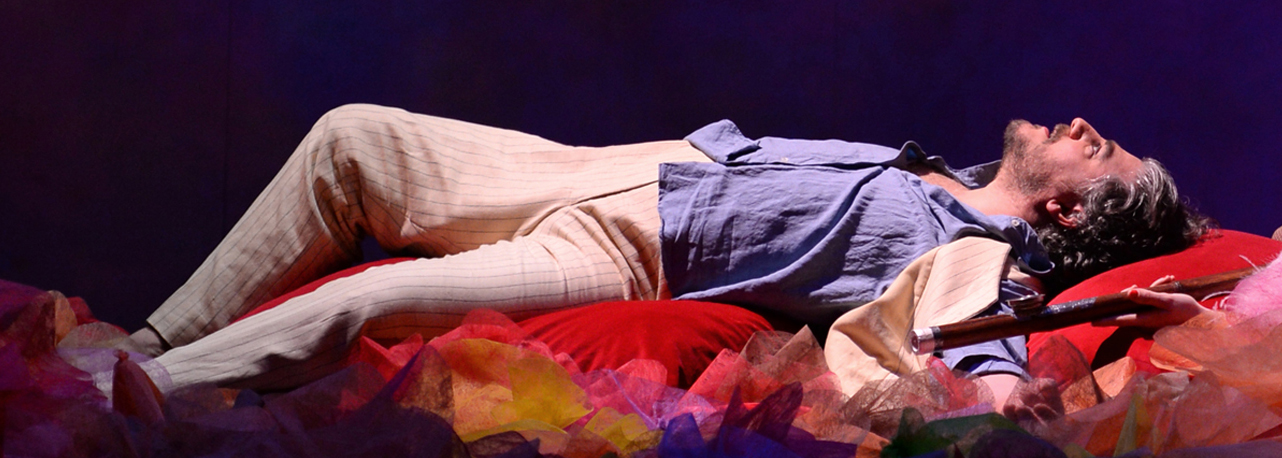
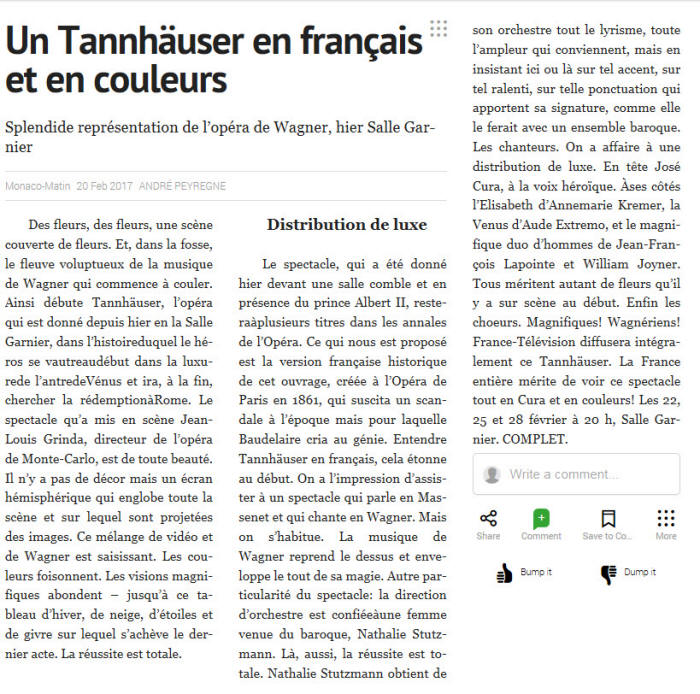
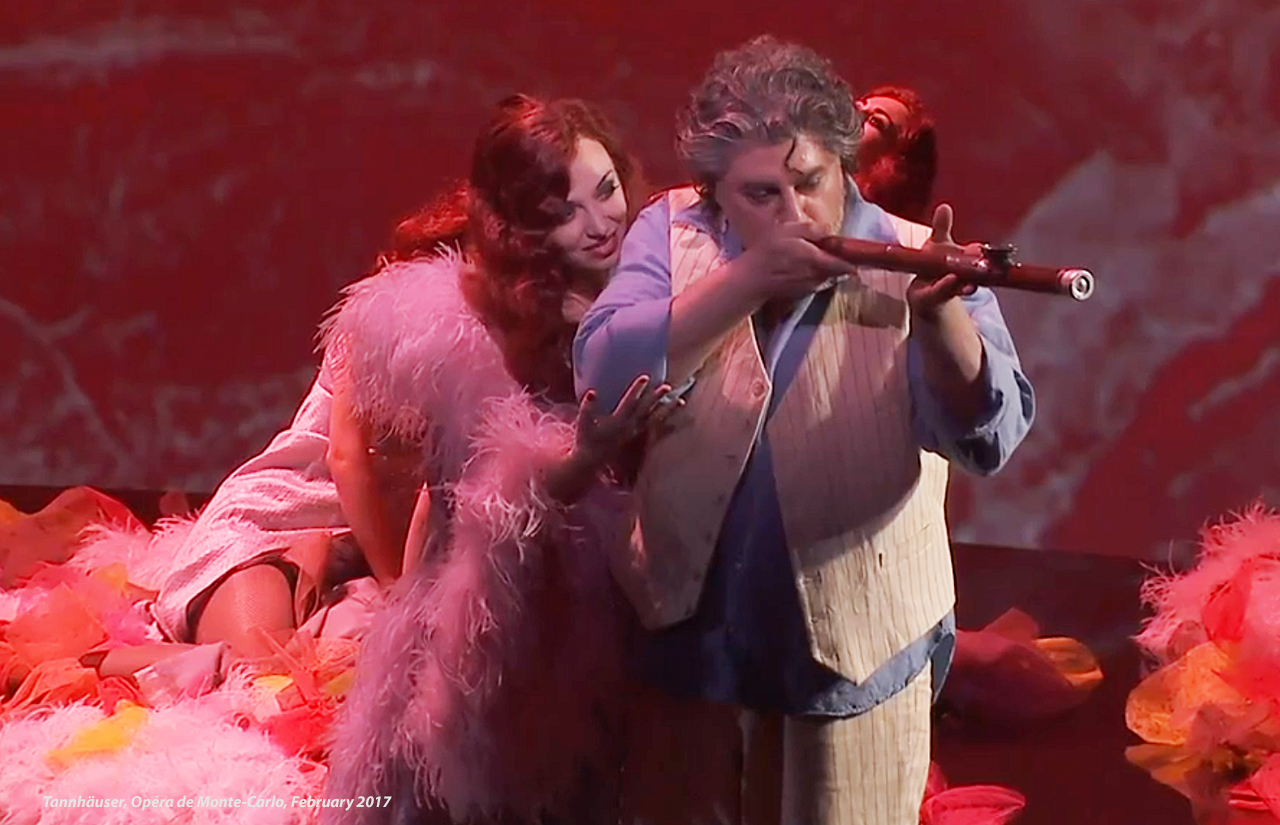
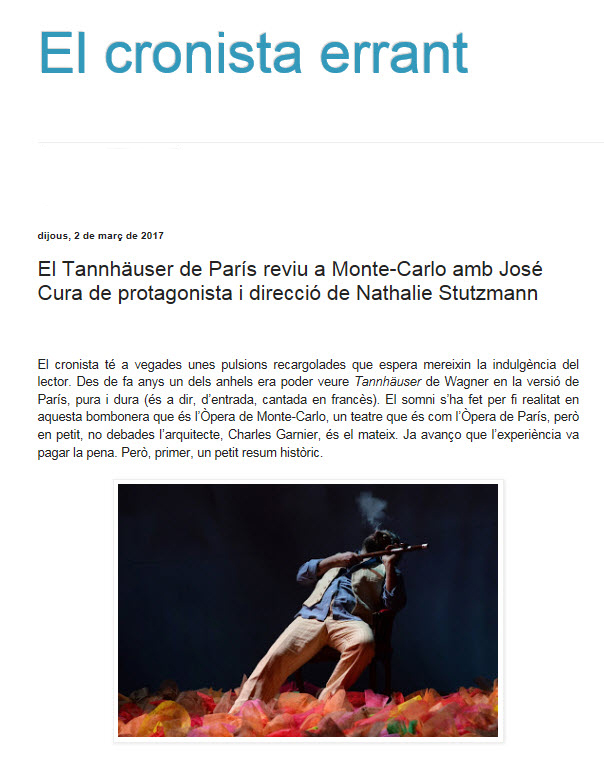
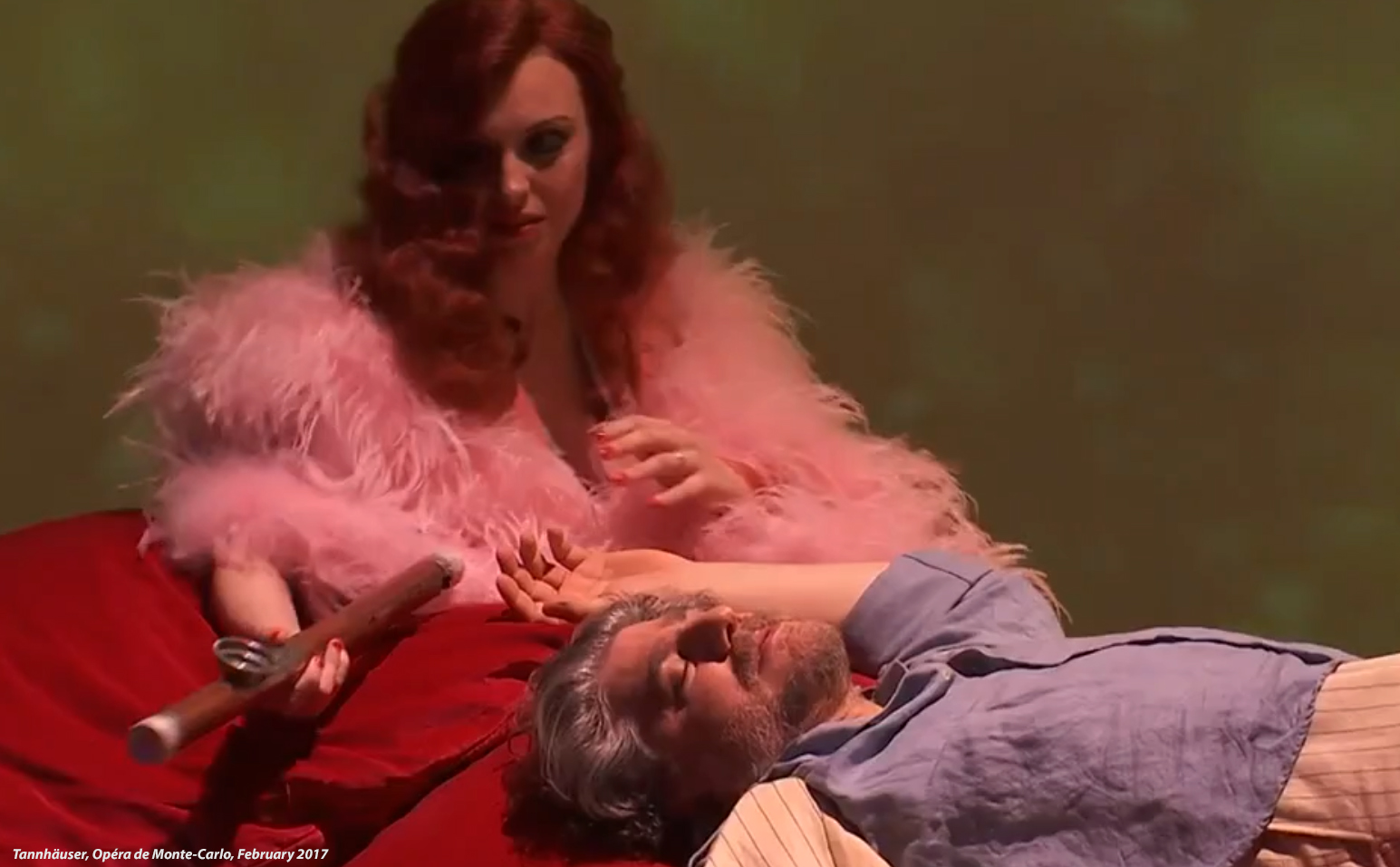
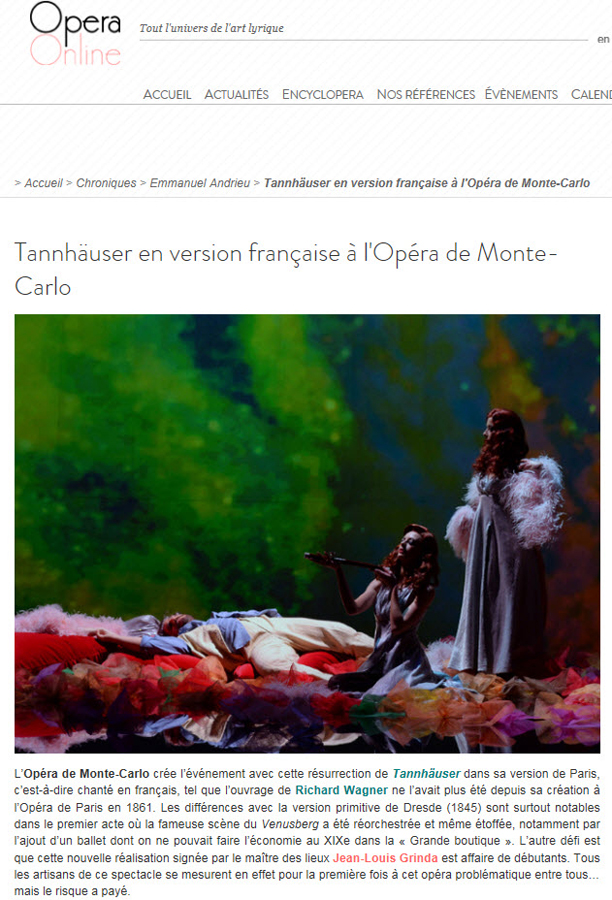
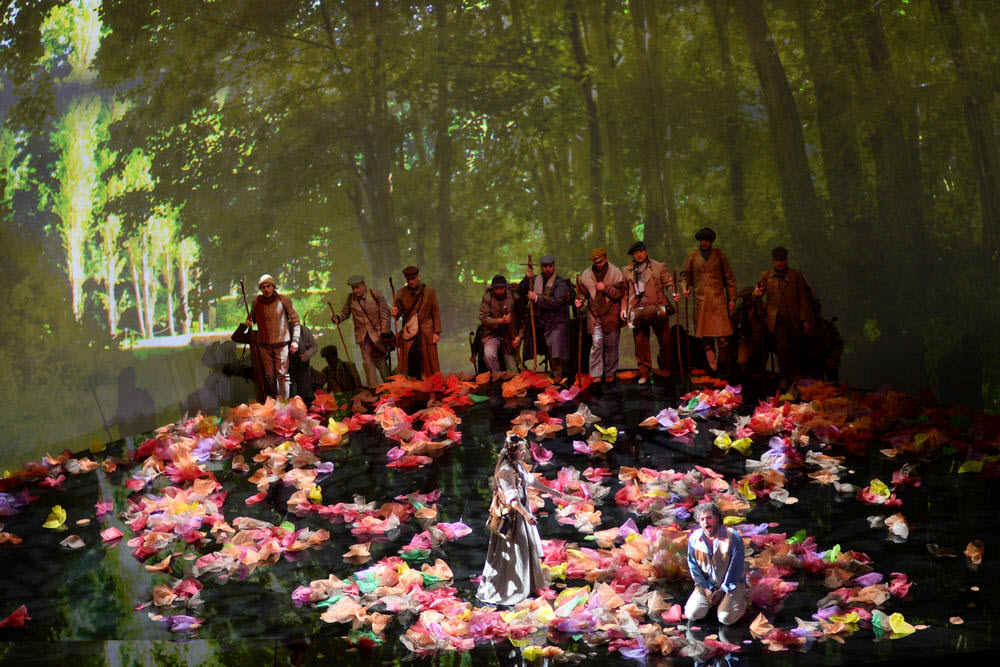

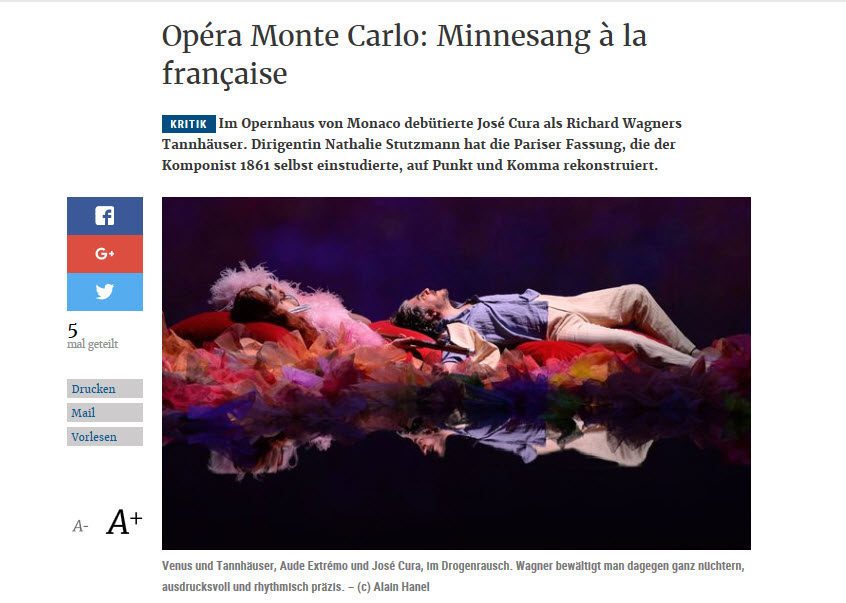
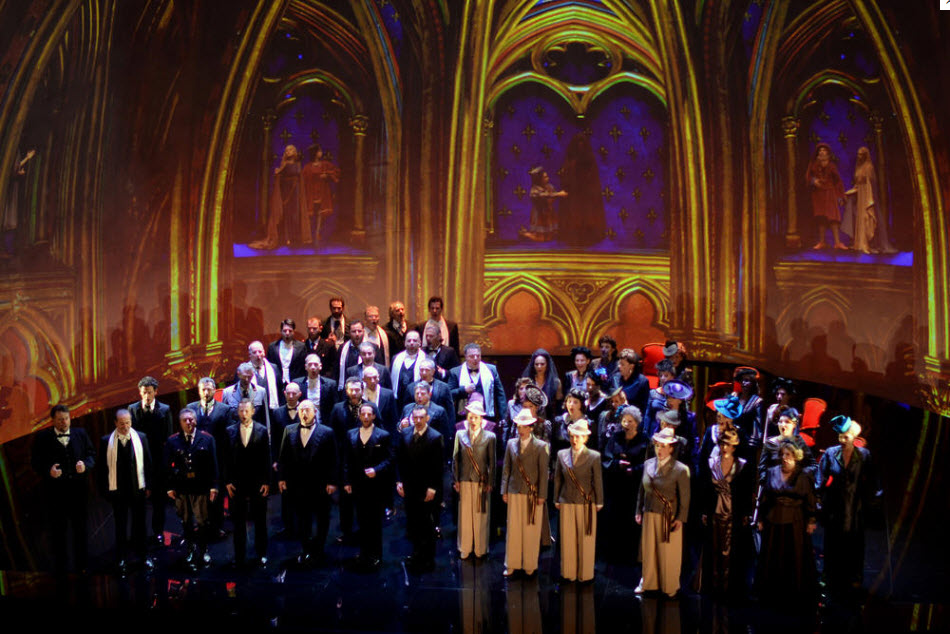
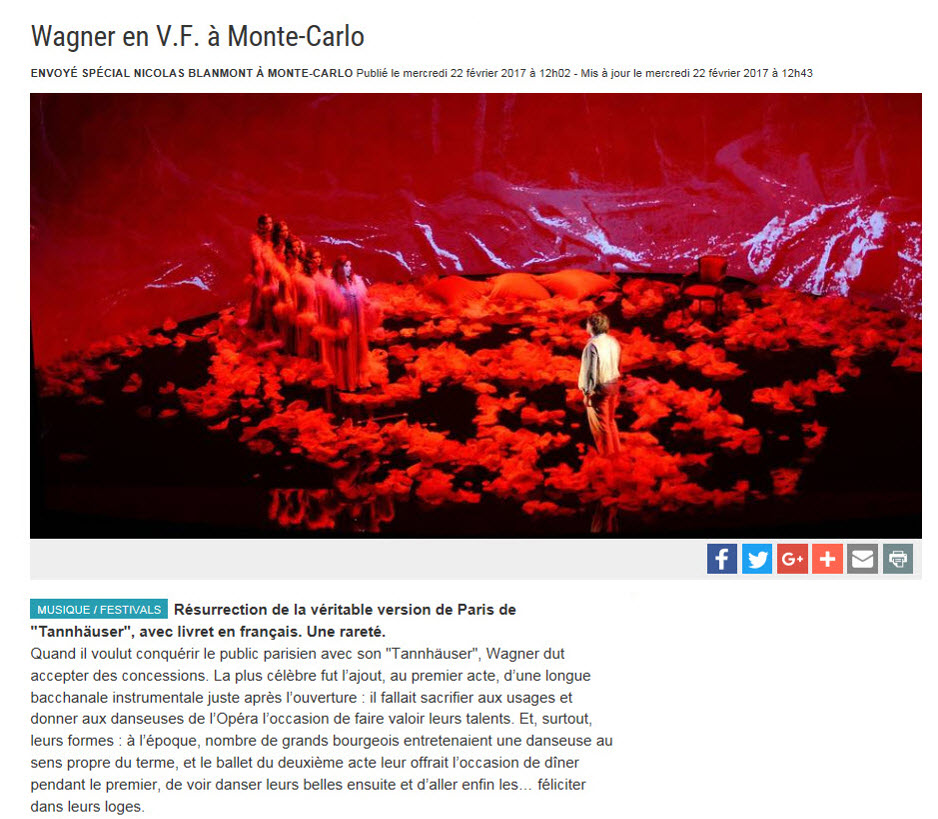
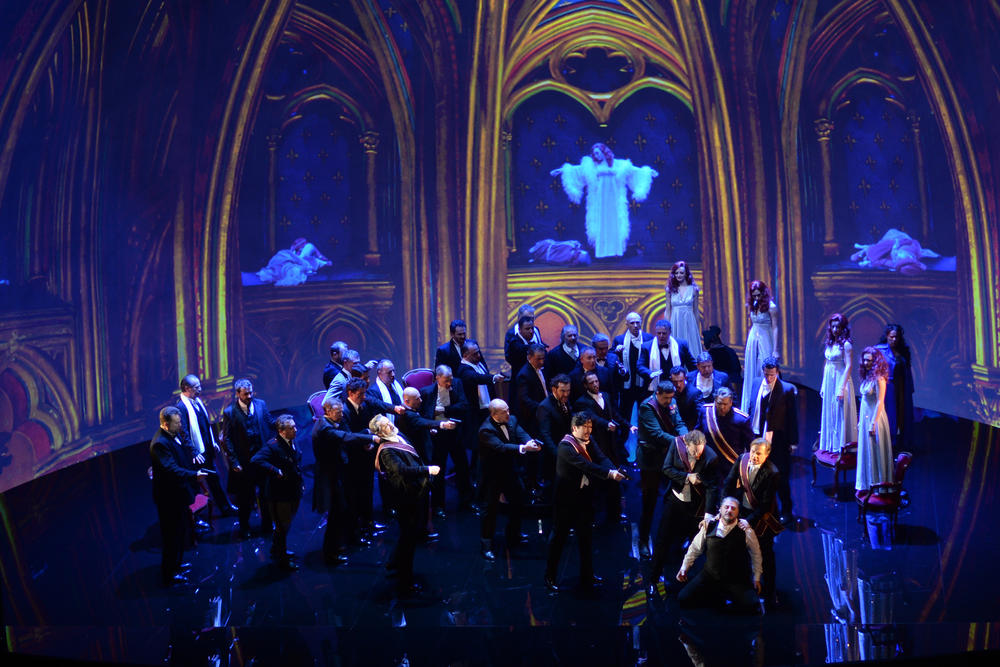
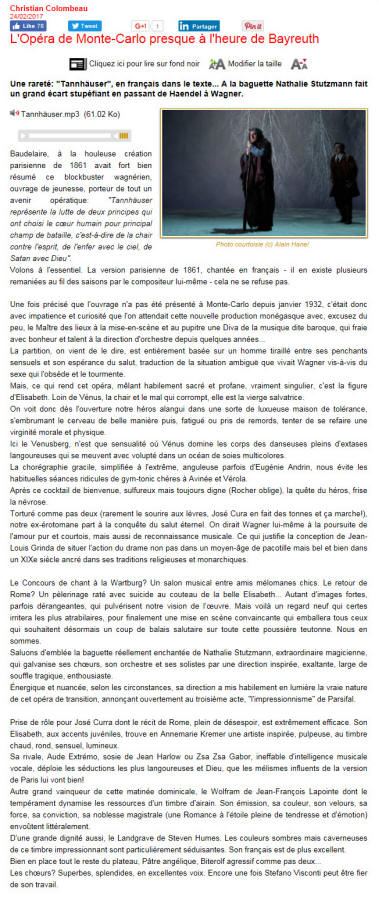
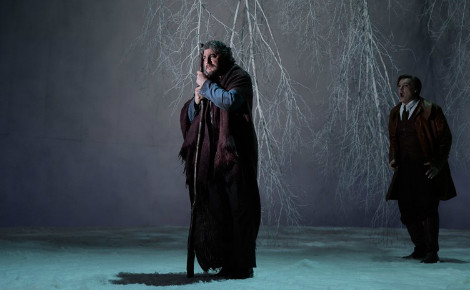
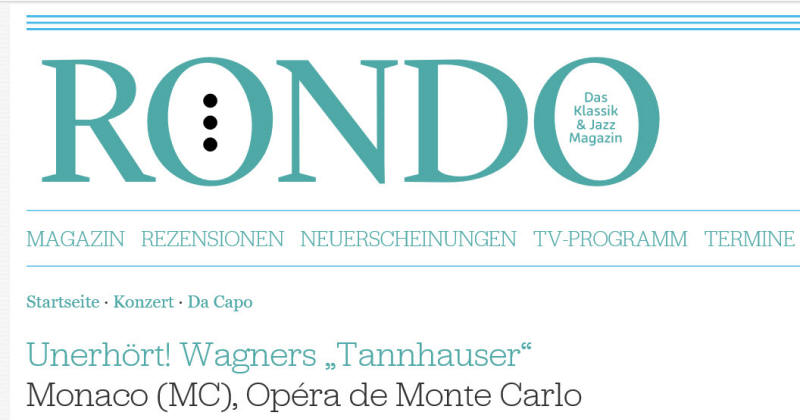
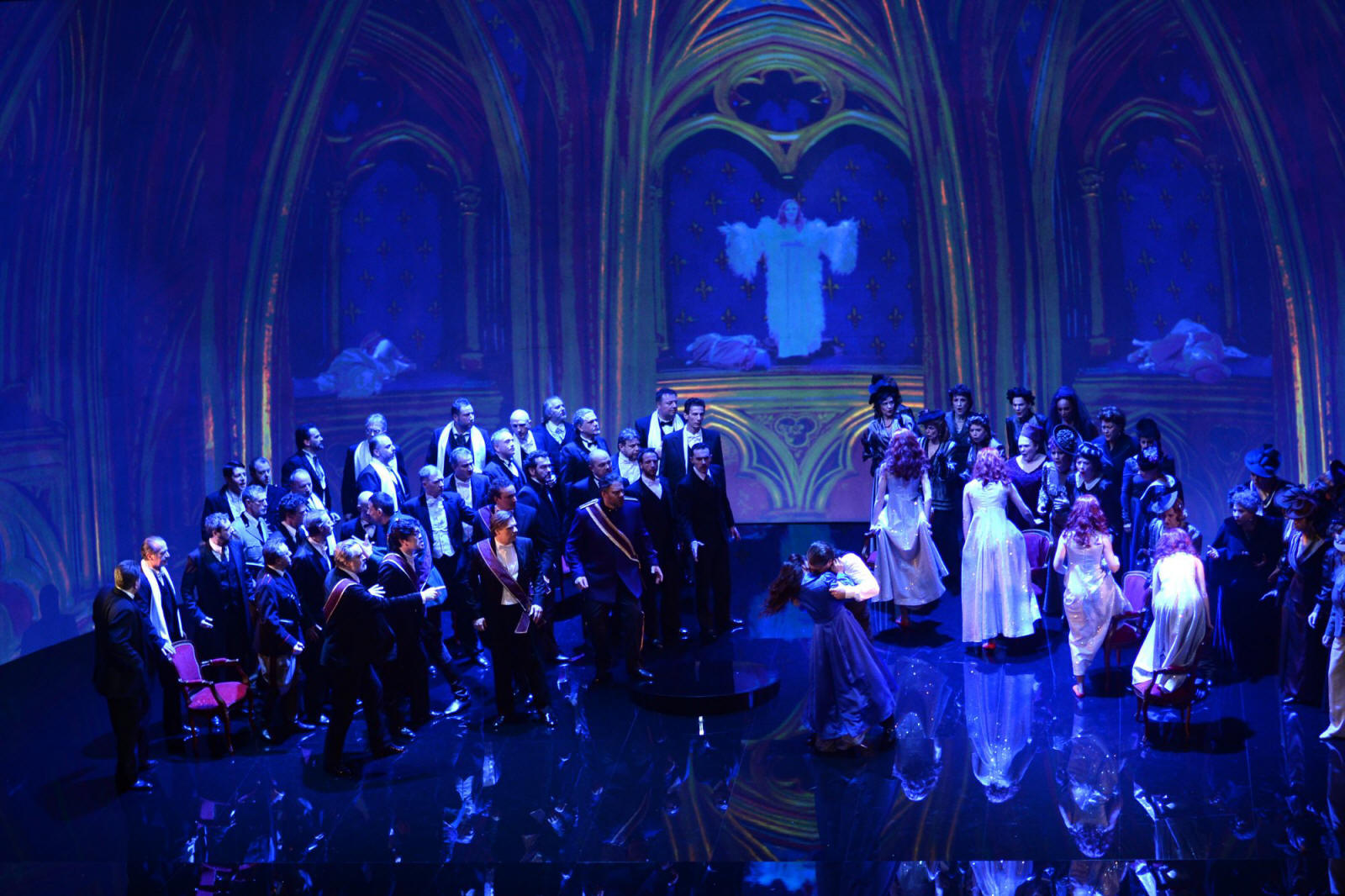

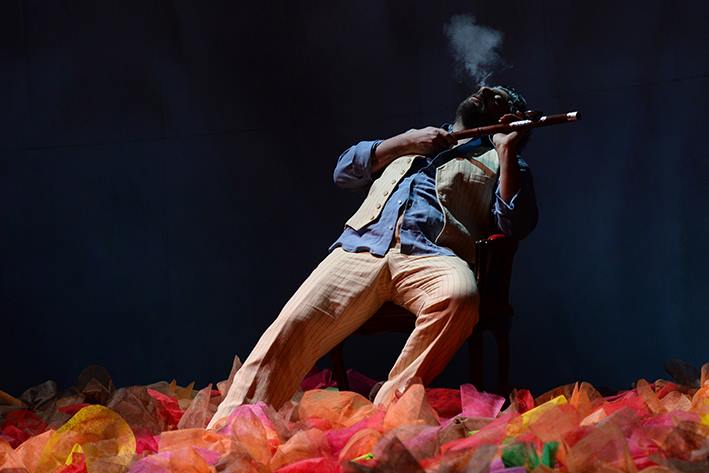
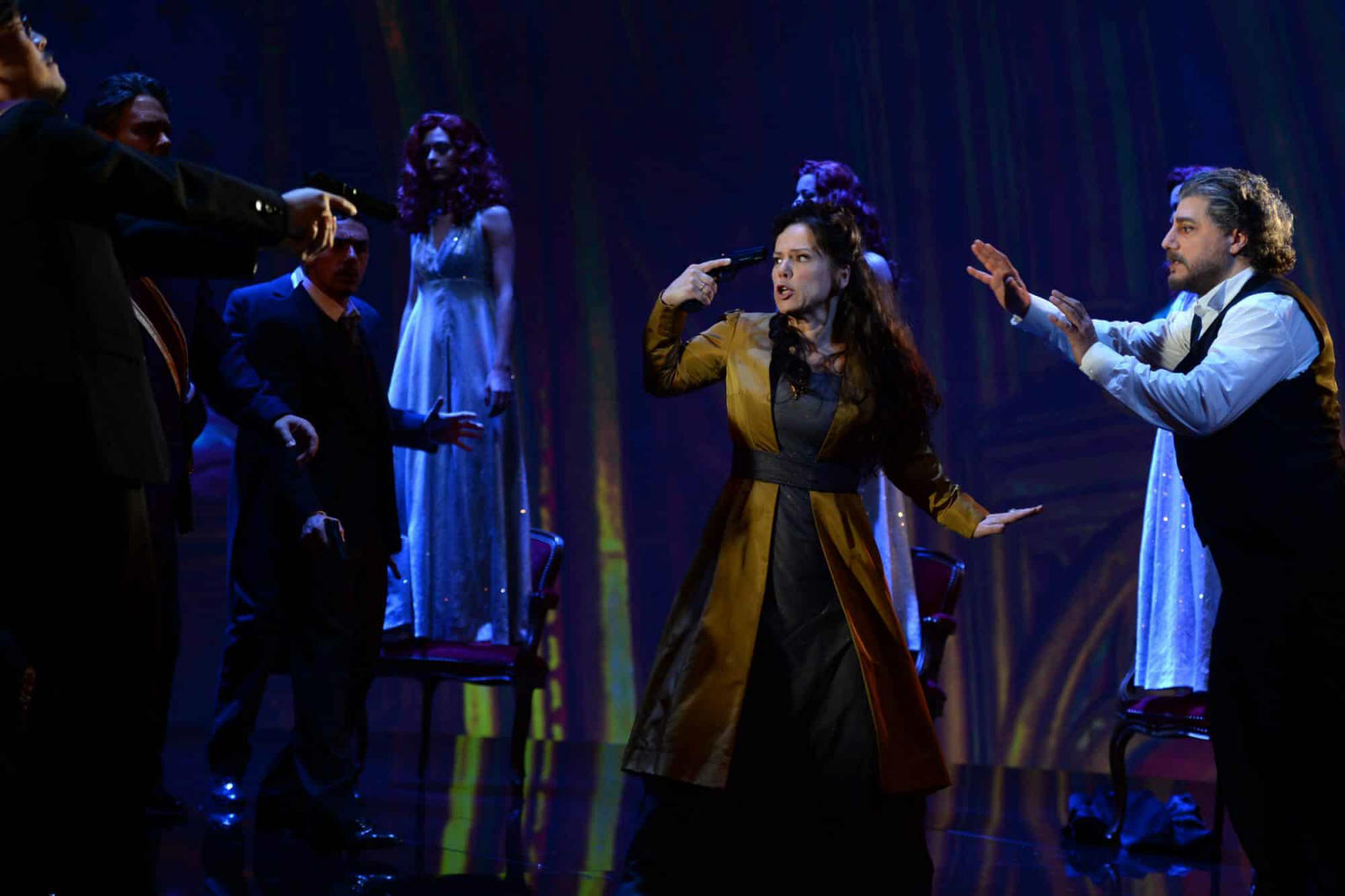
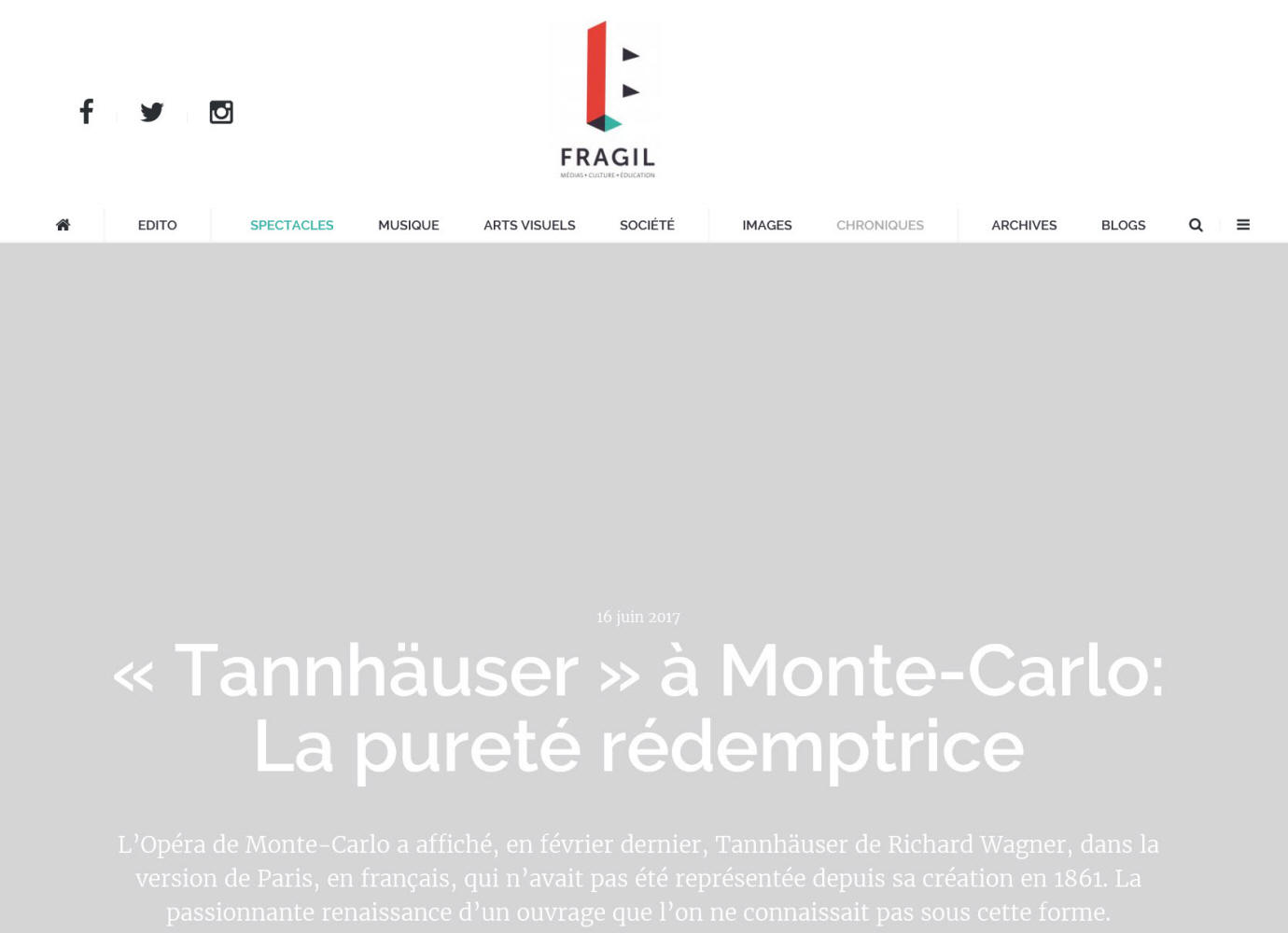
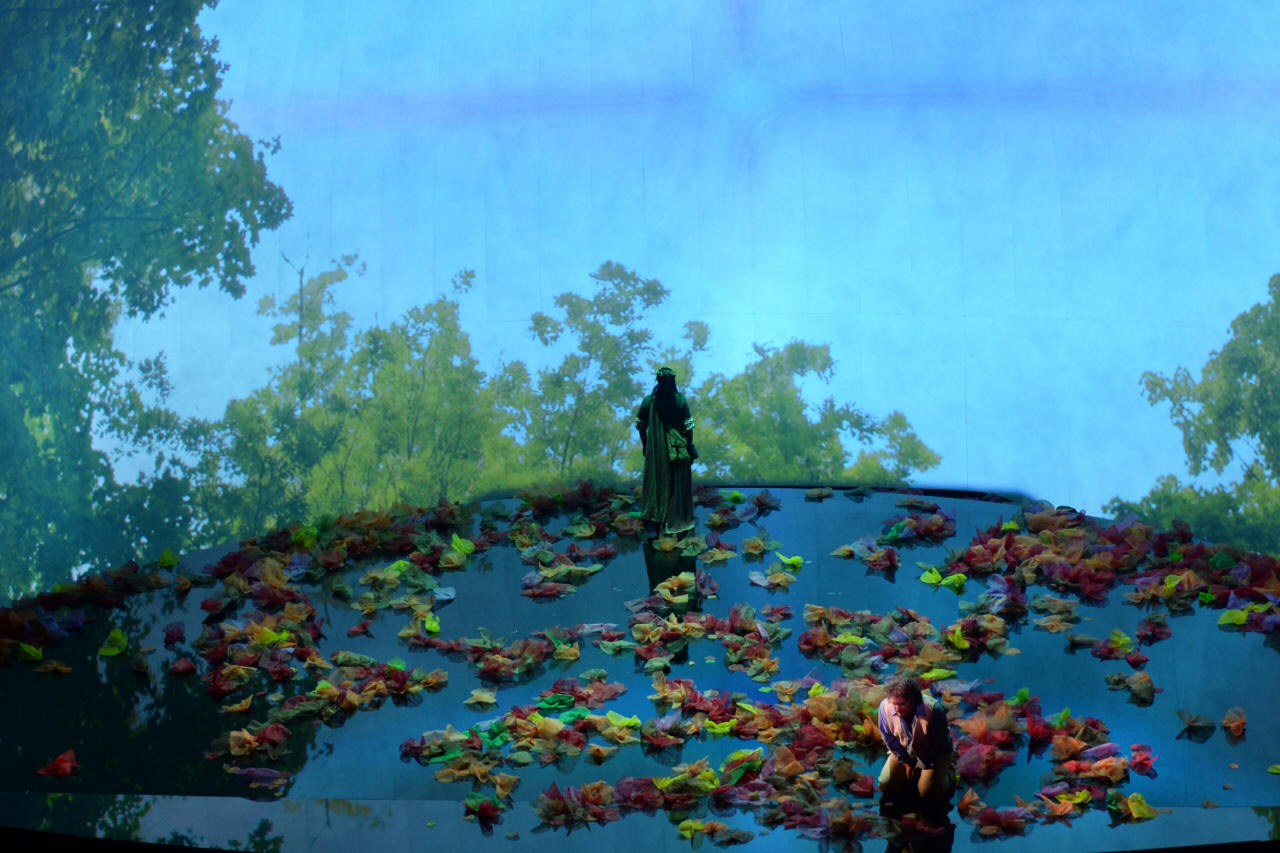
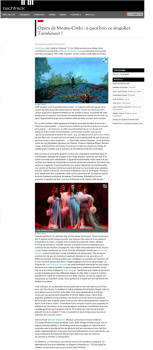
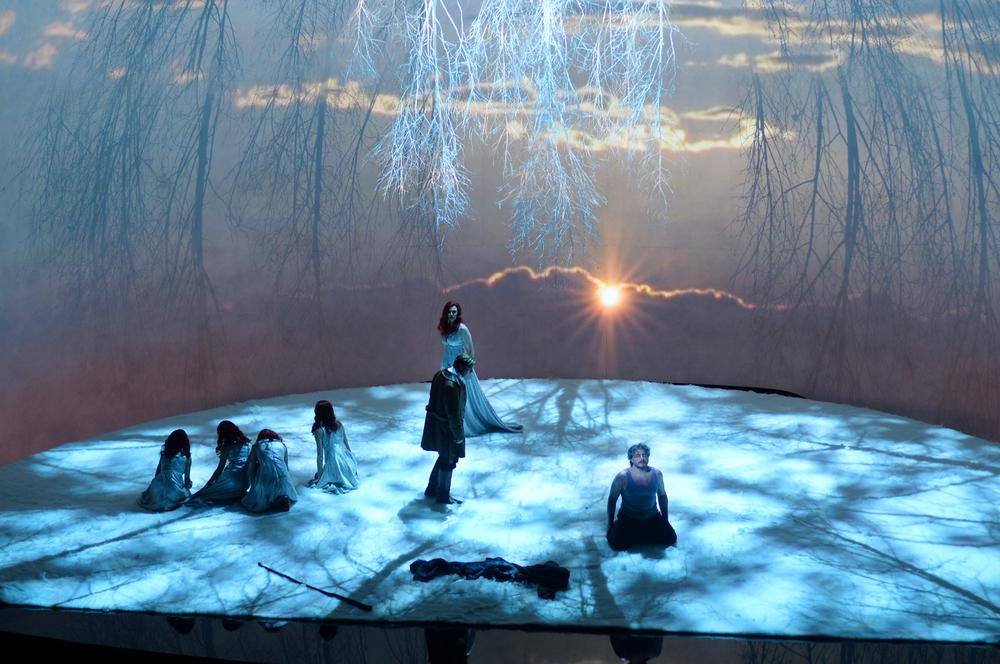
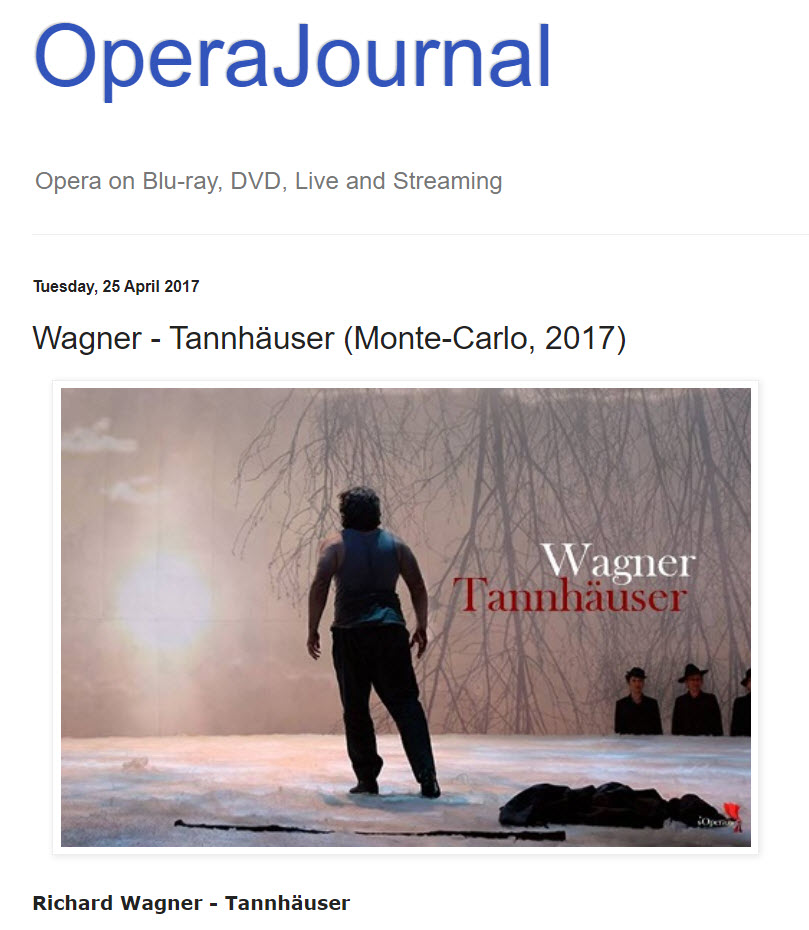
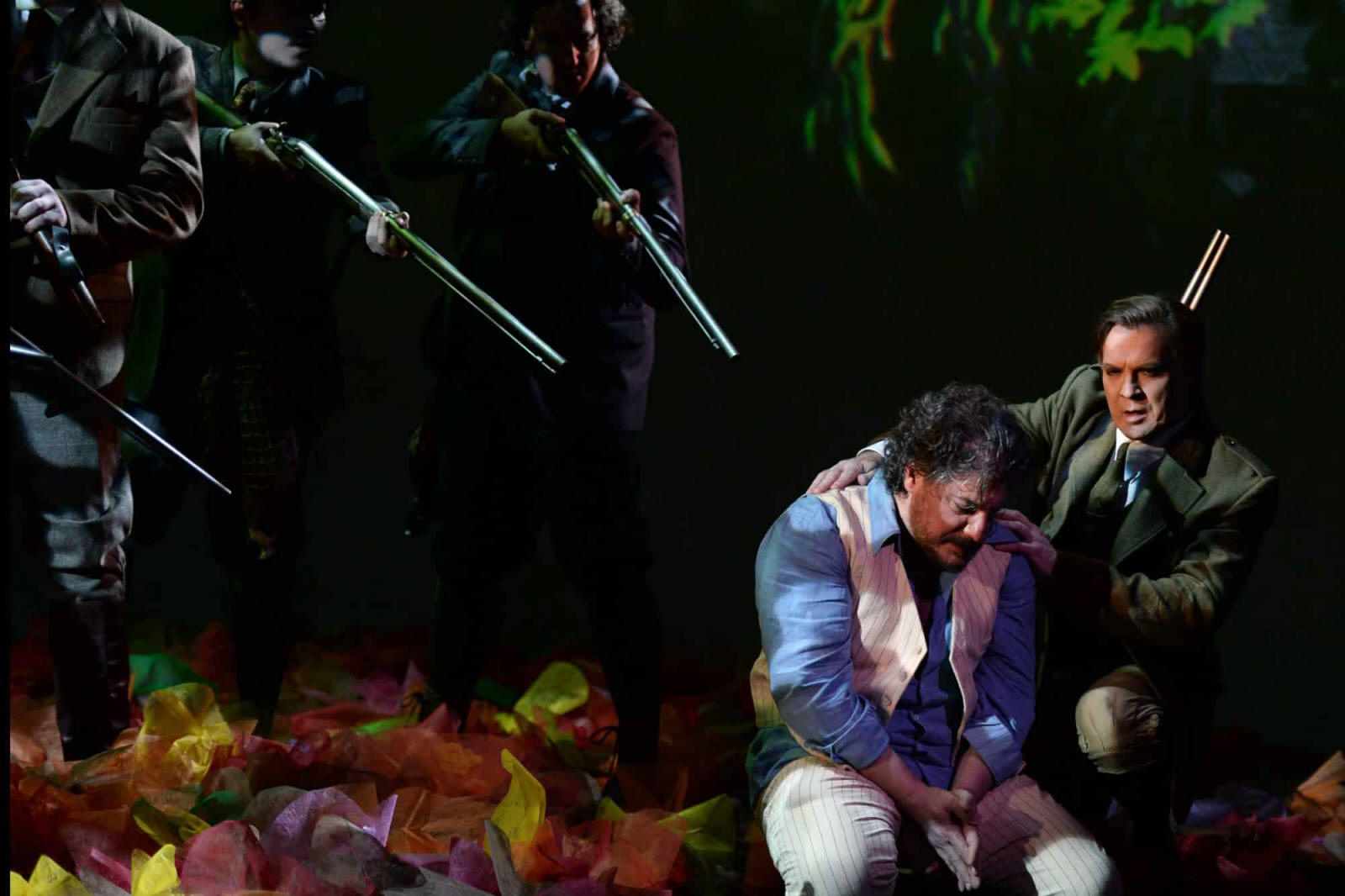
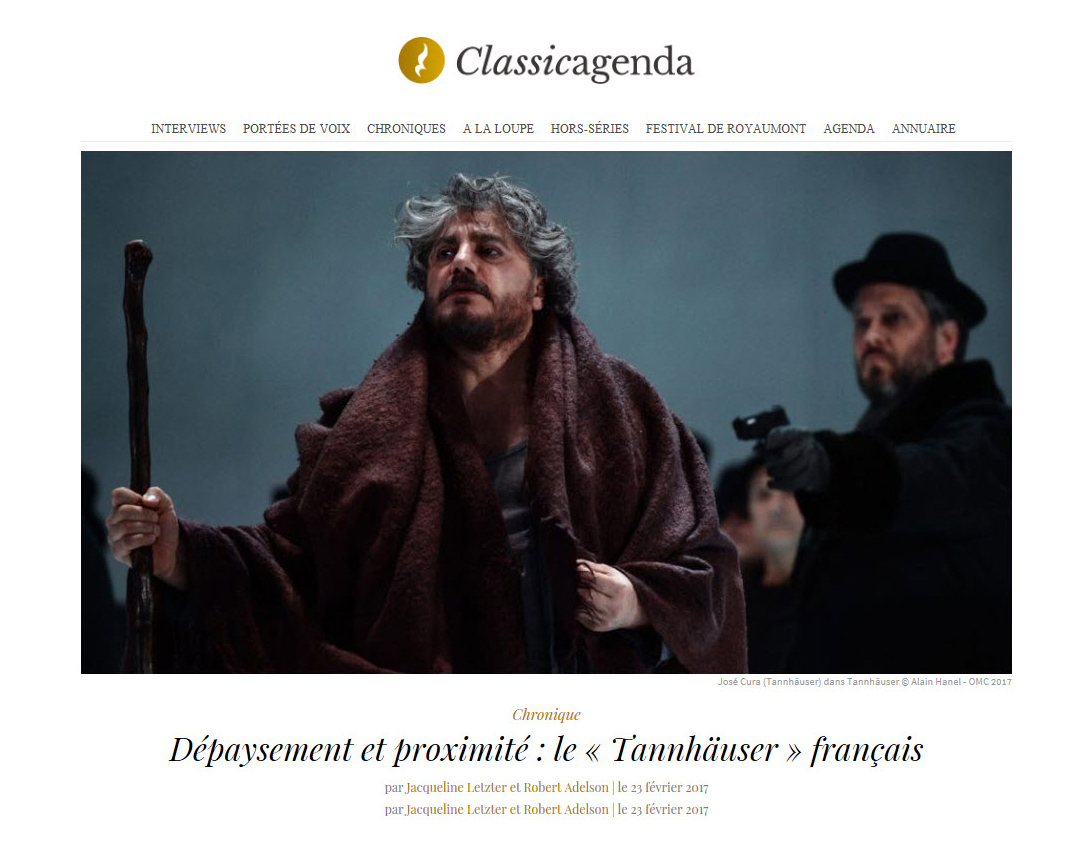
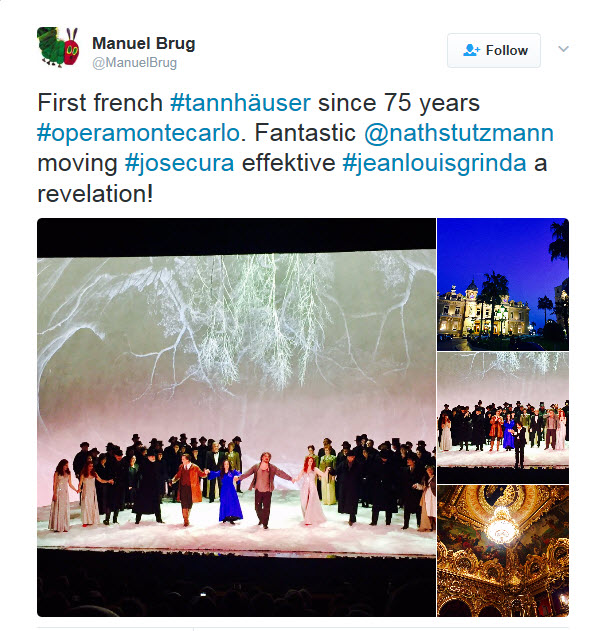
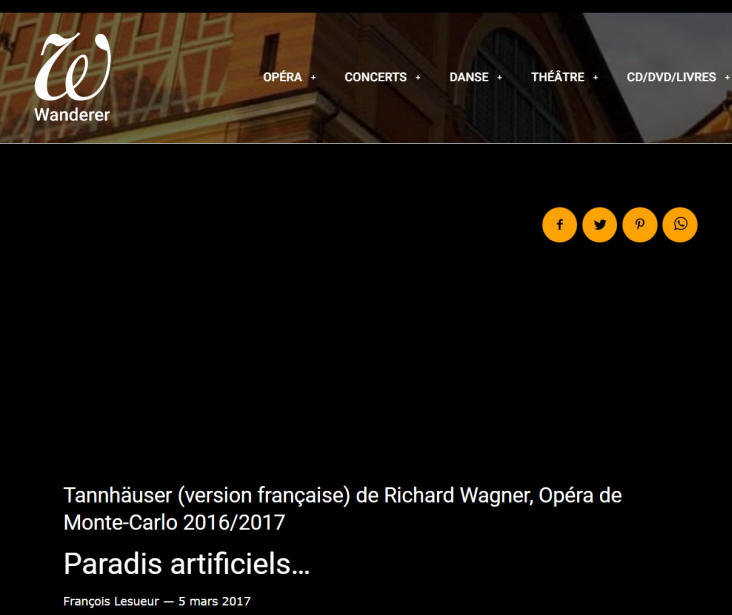
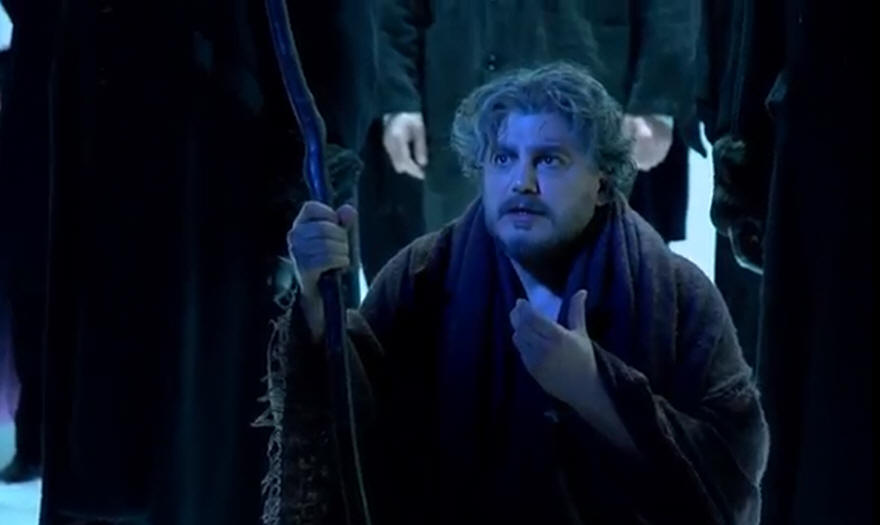
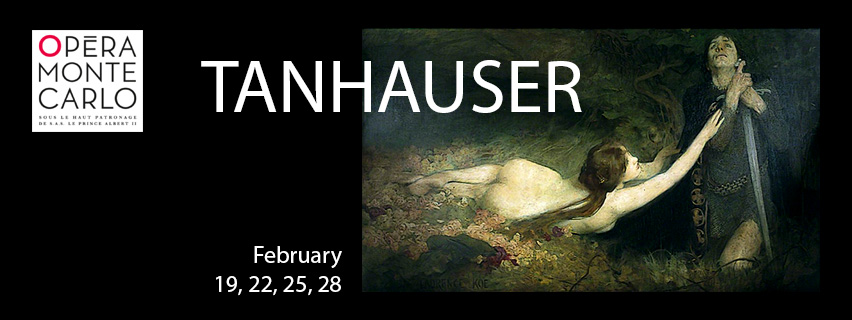
%20a.jpg)
%20a.jpg)
%20a.jpg)
%20a.jpg)
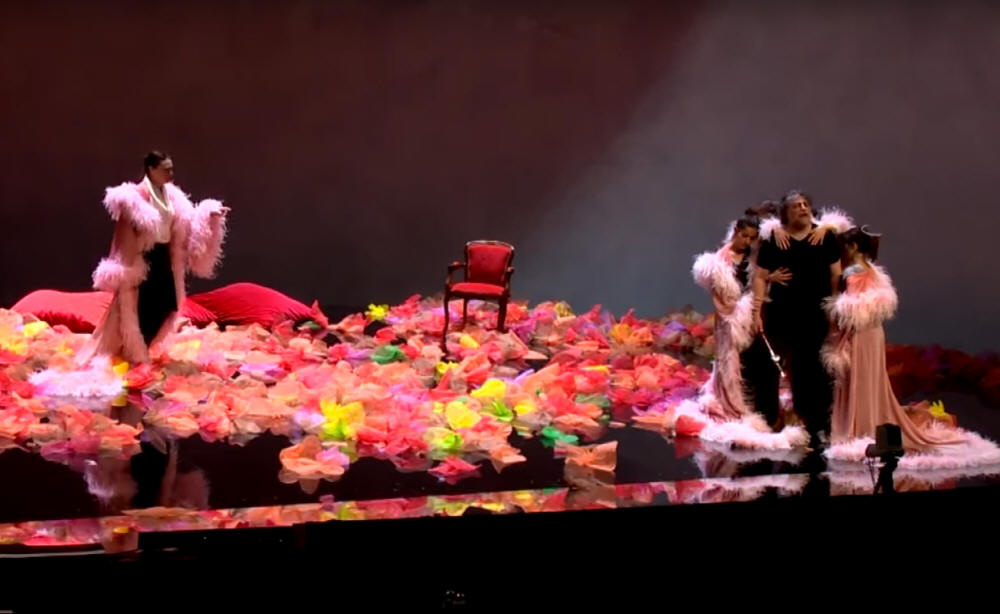
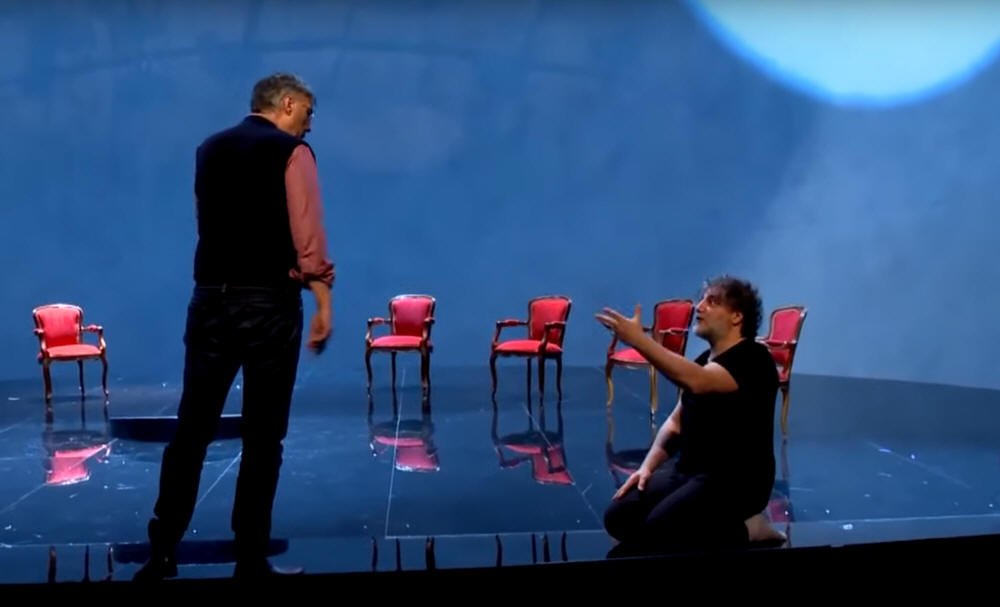
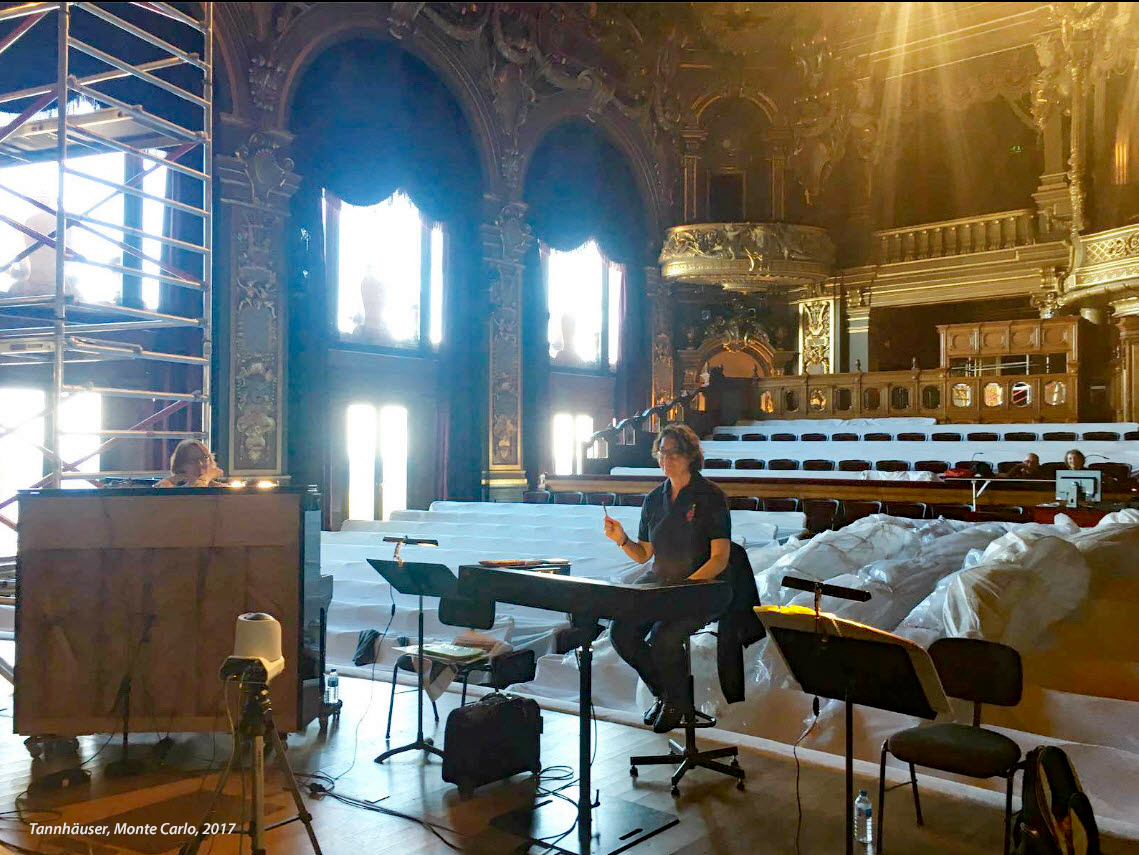

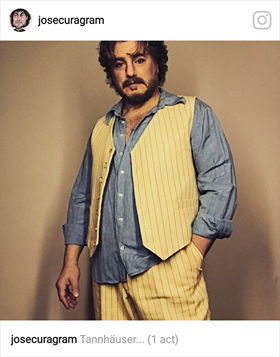
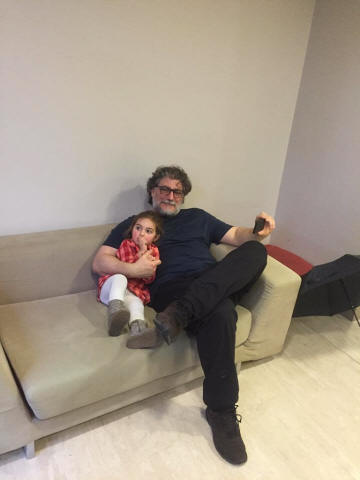
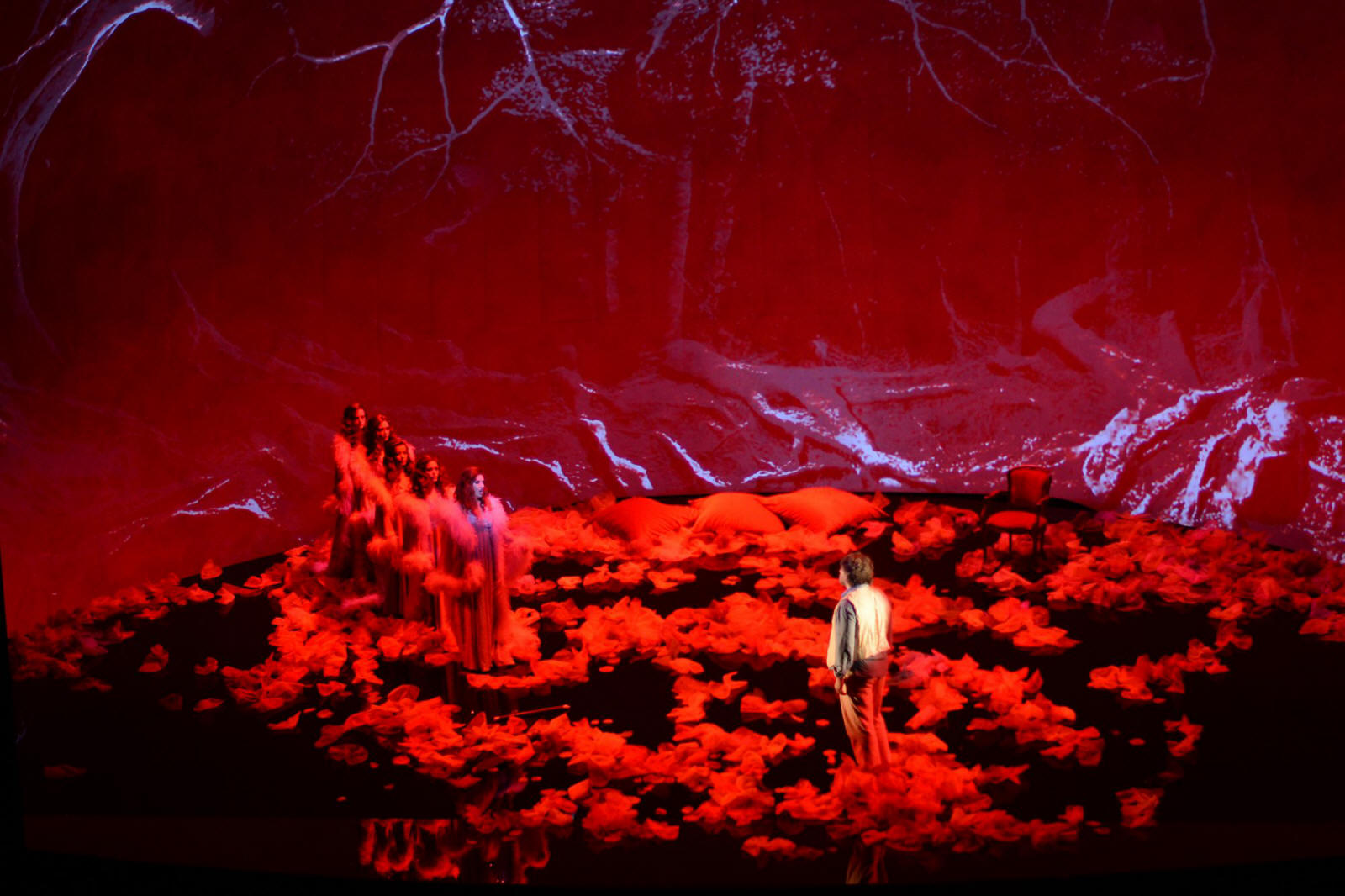
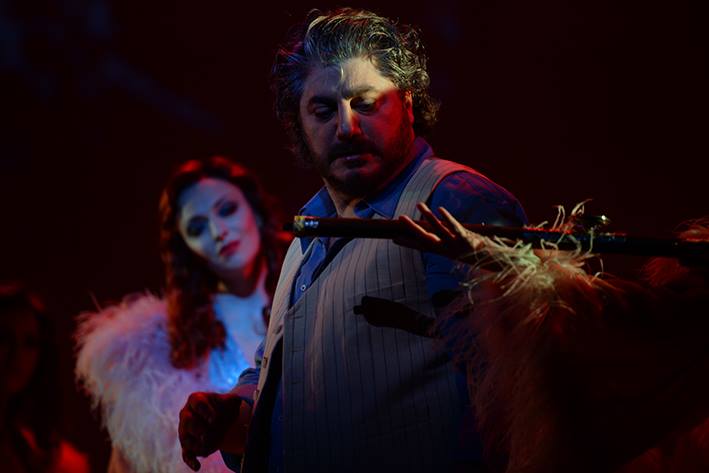
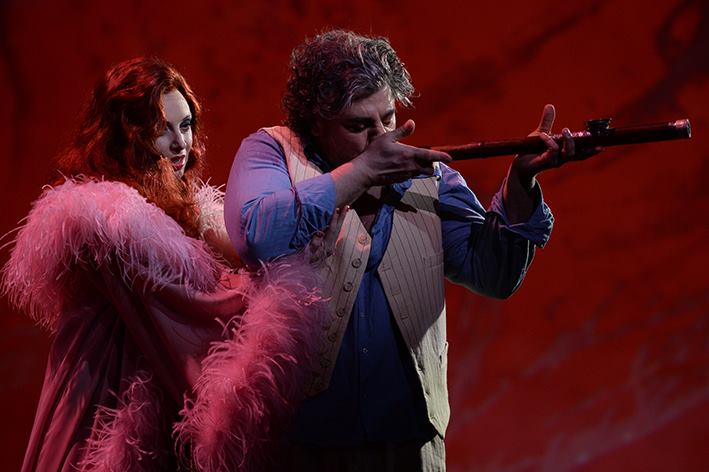
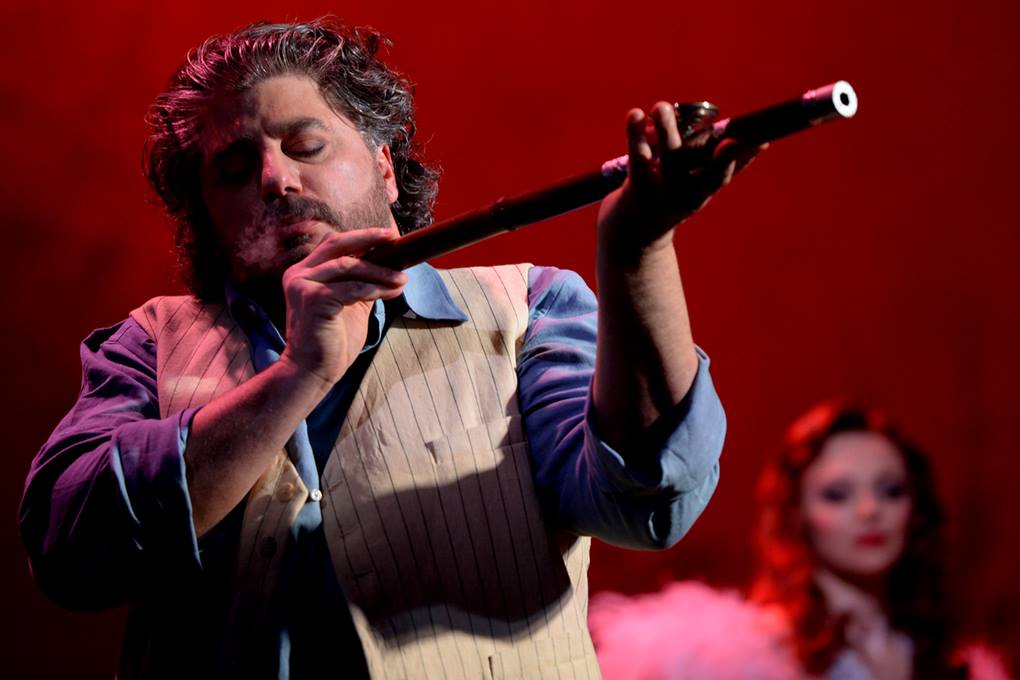
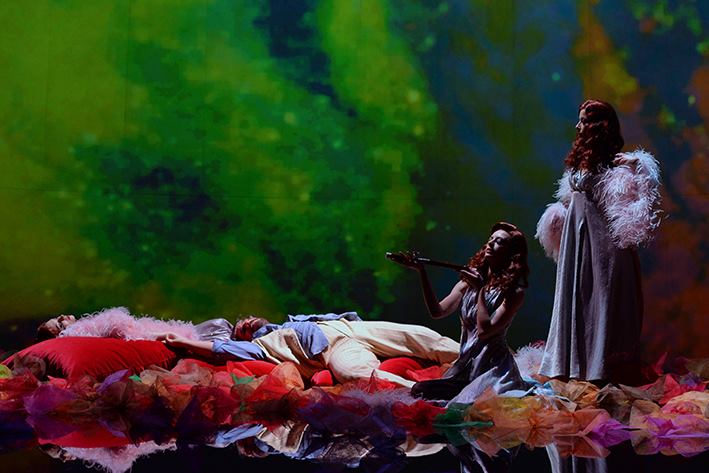
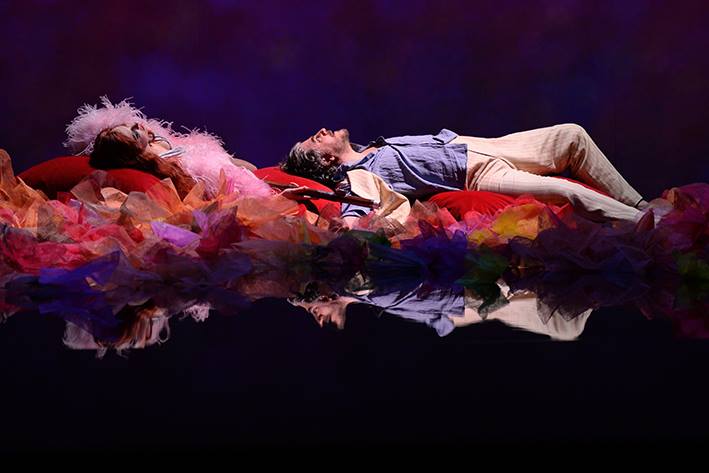
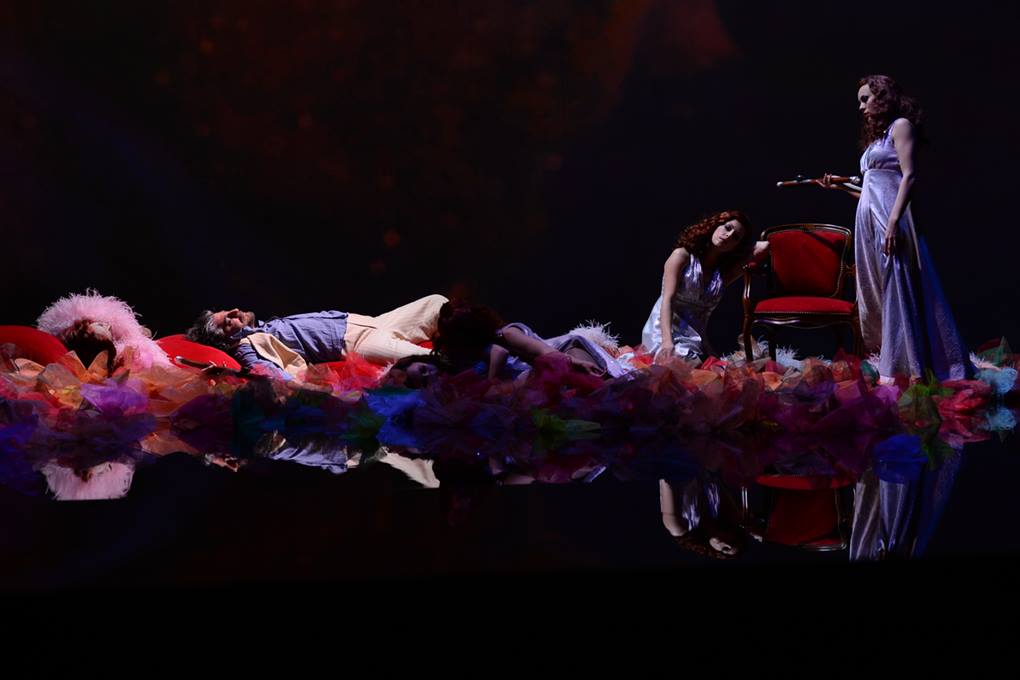
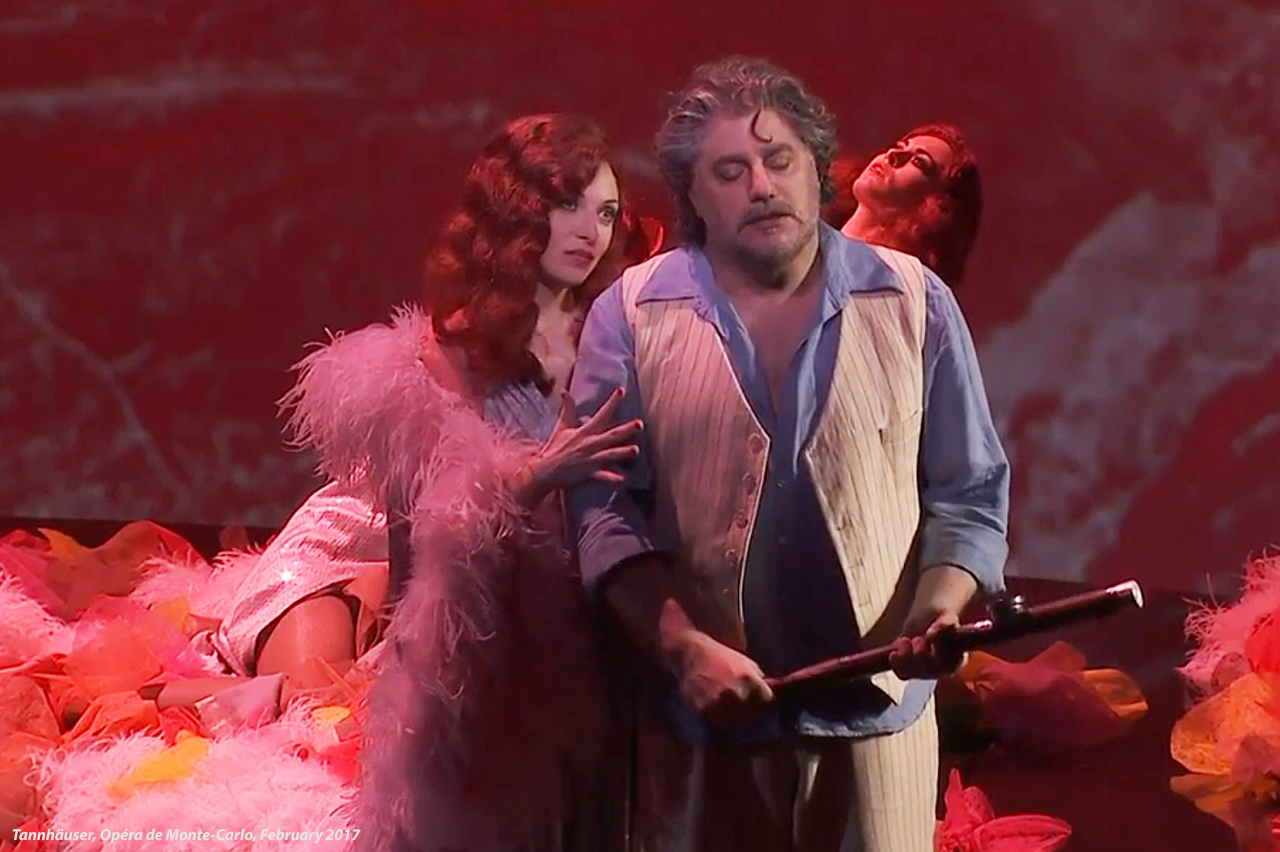
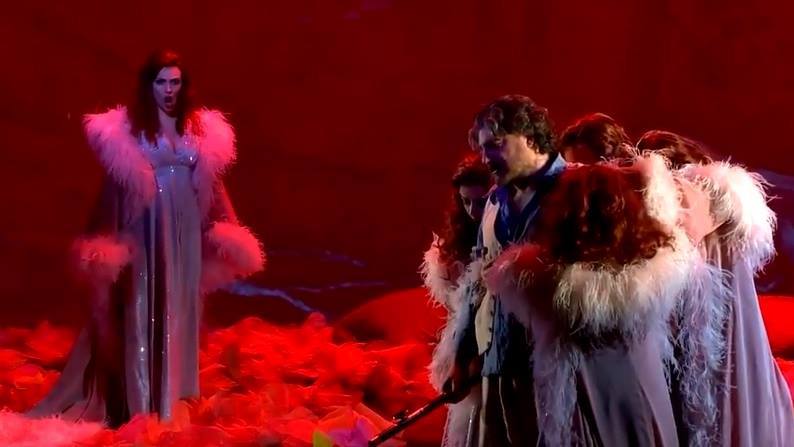
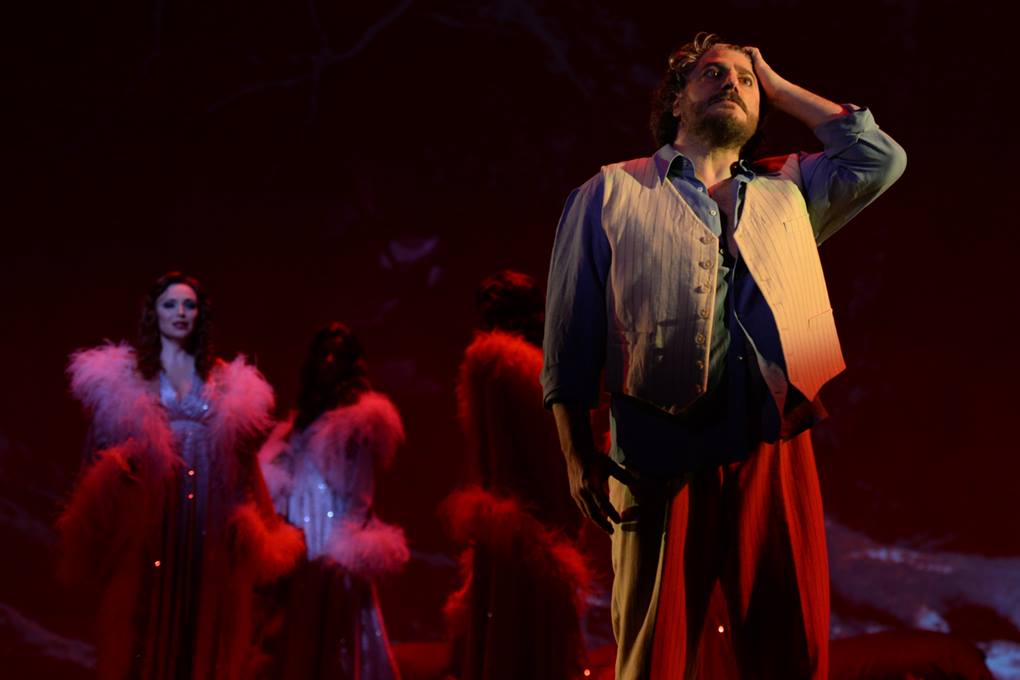
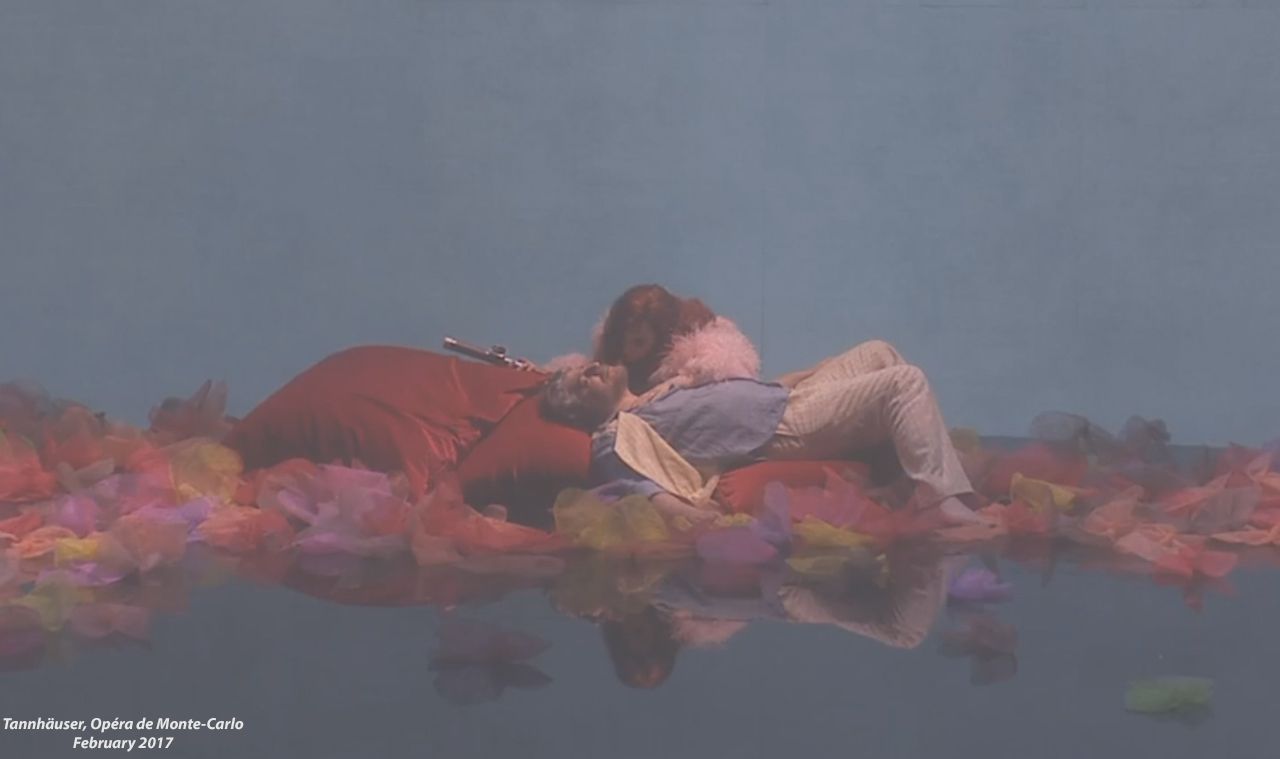
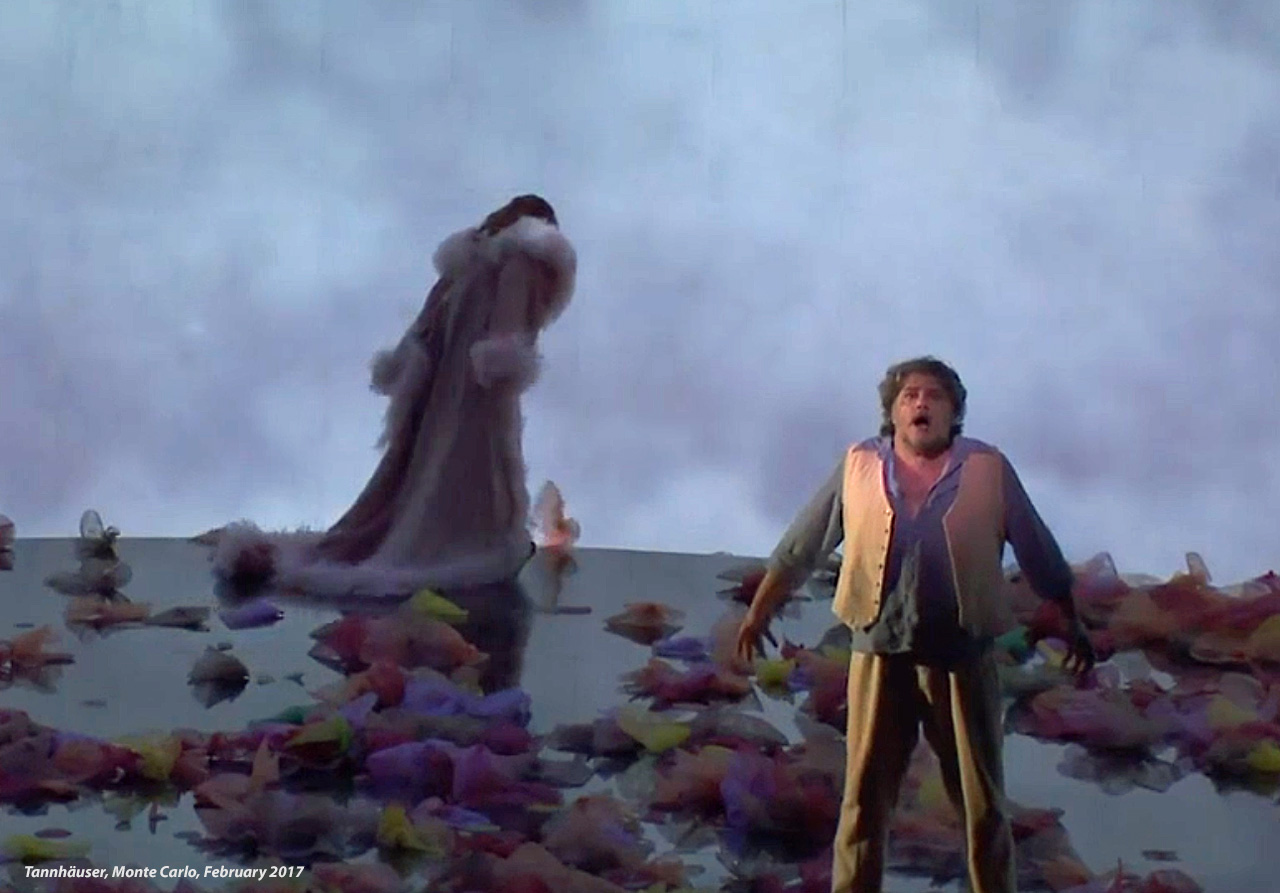
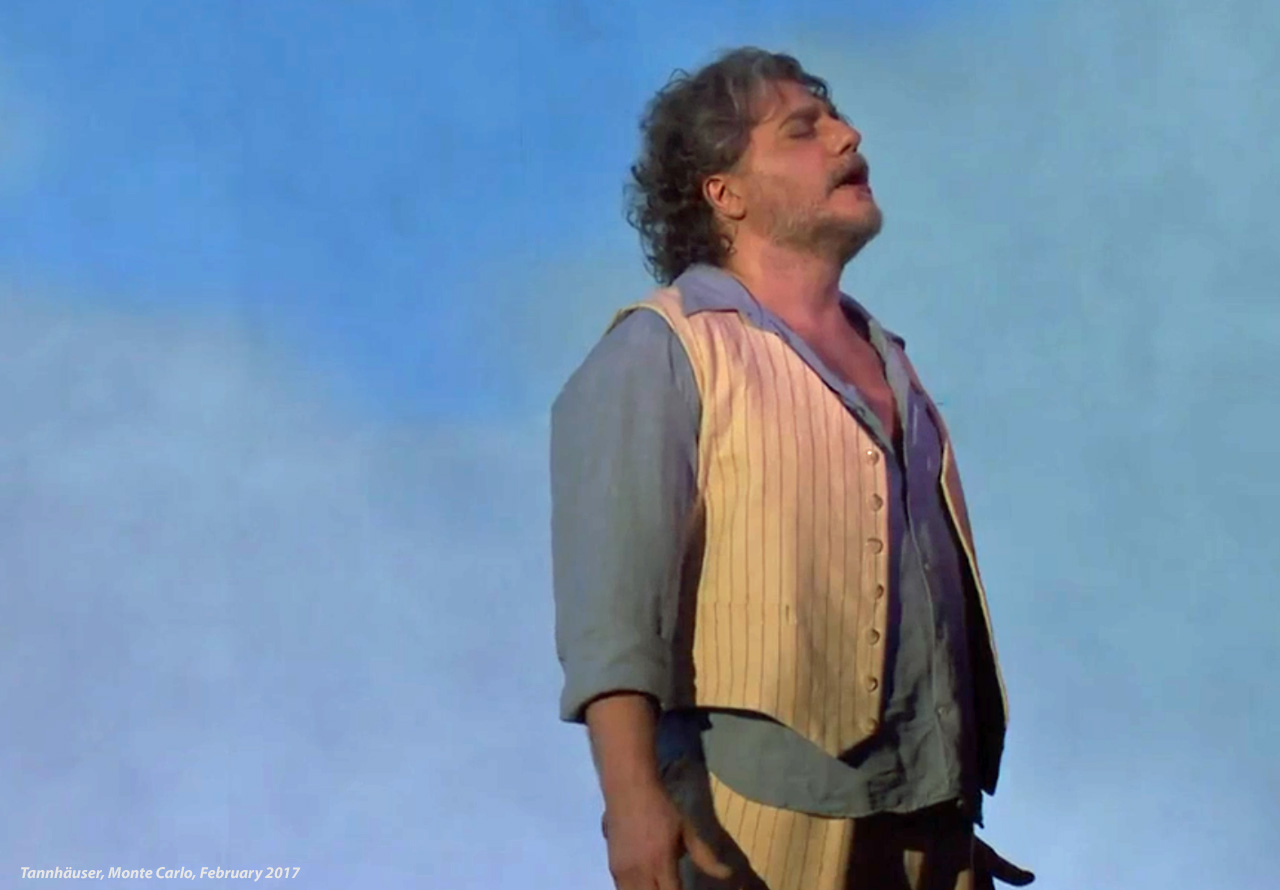
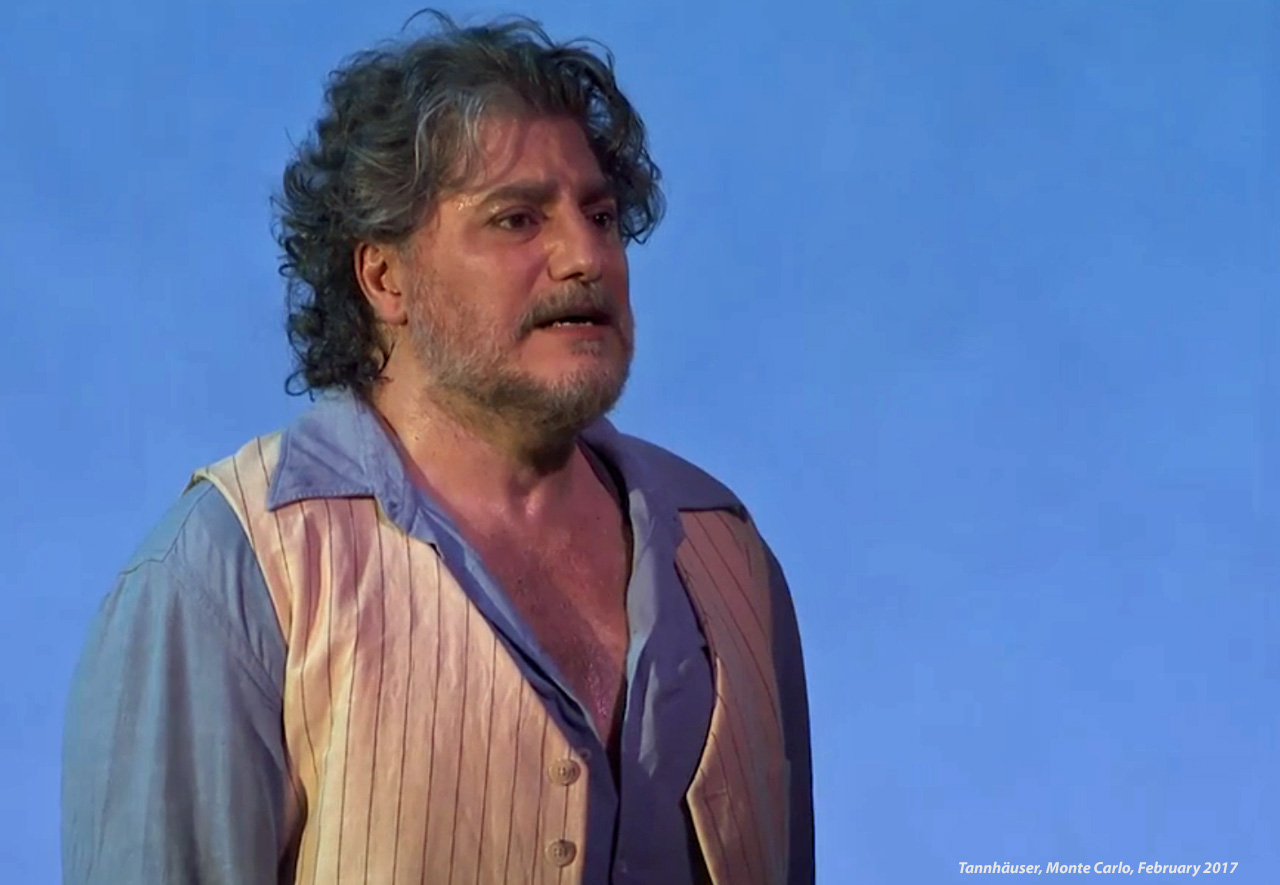
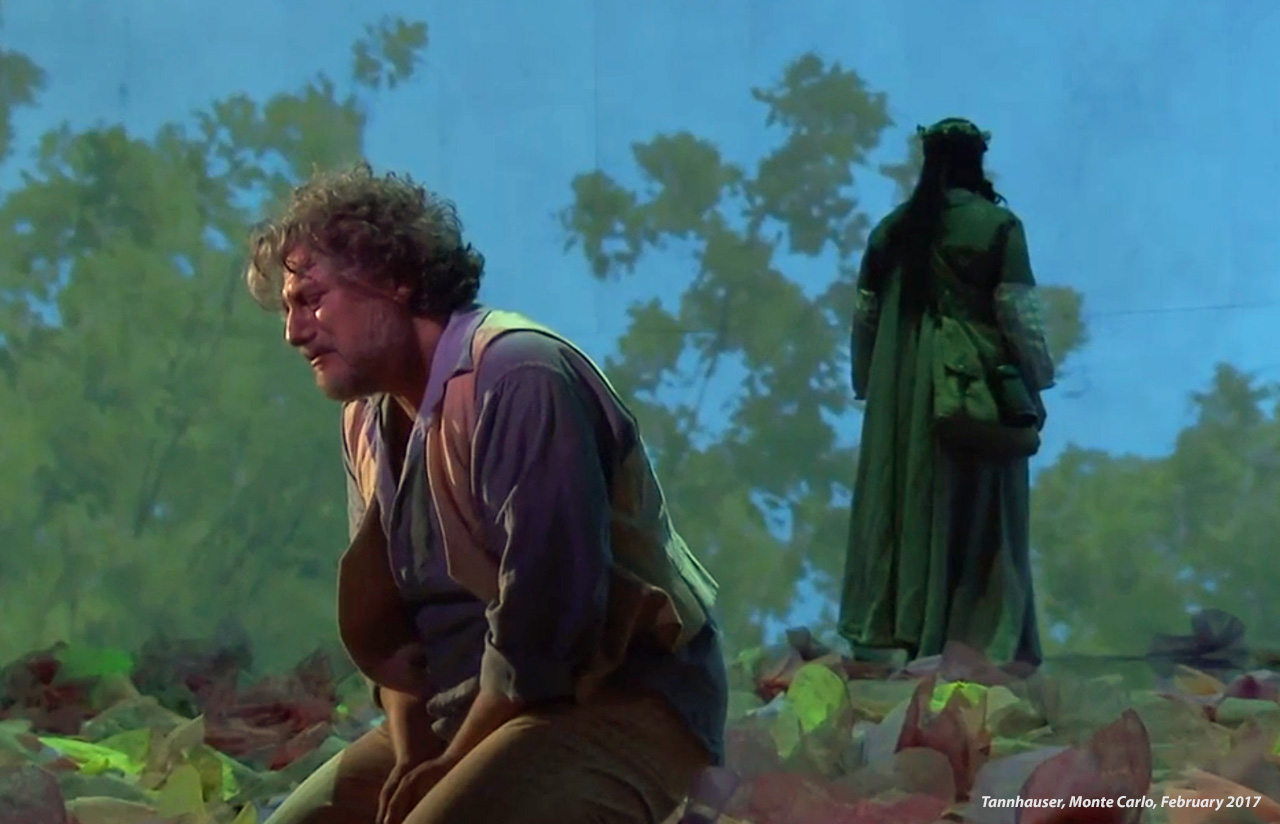
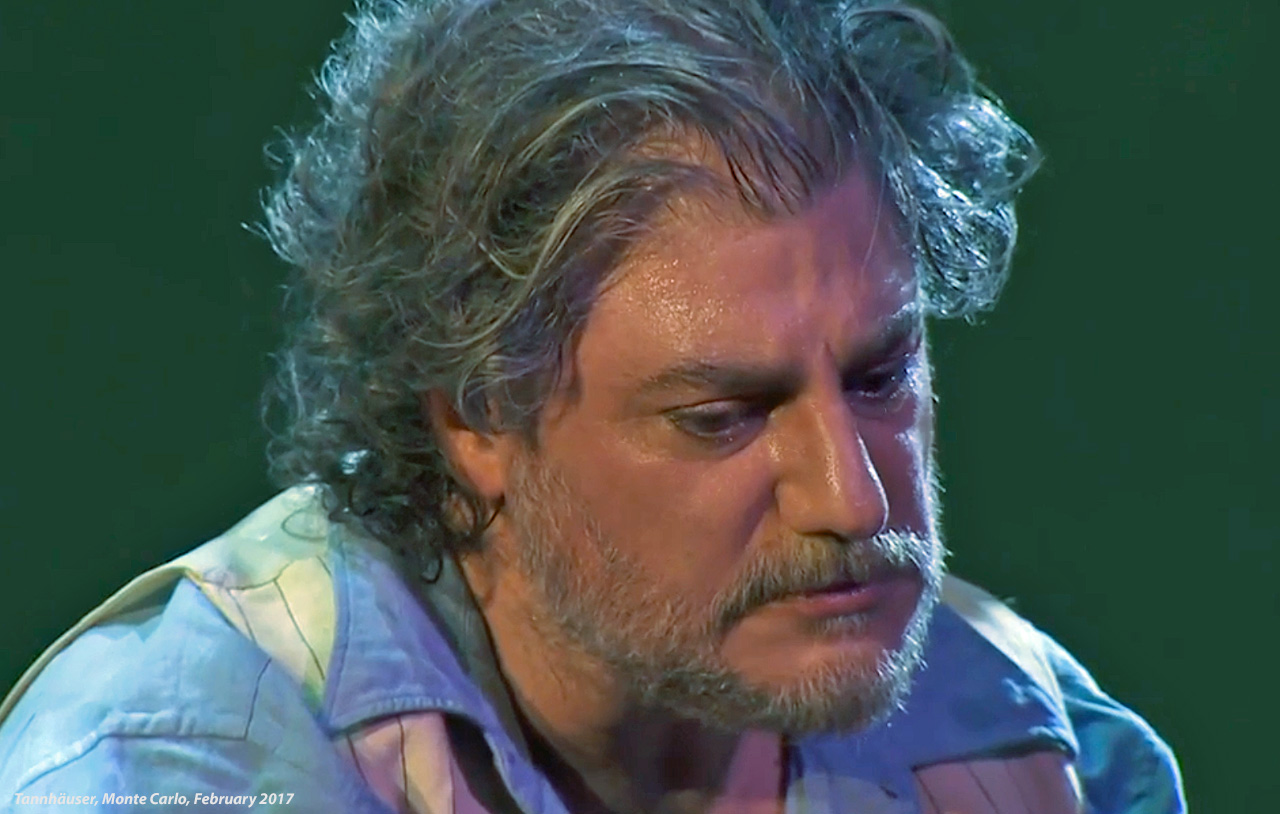
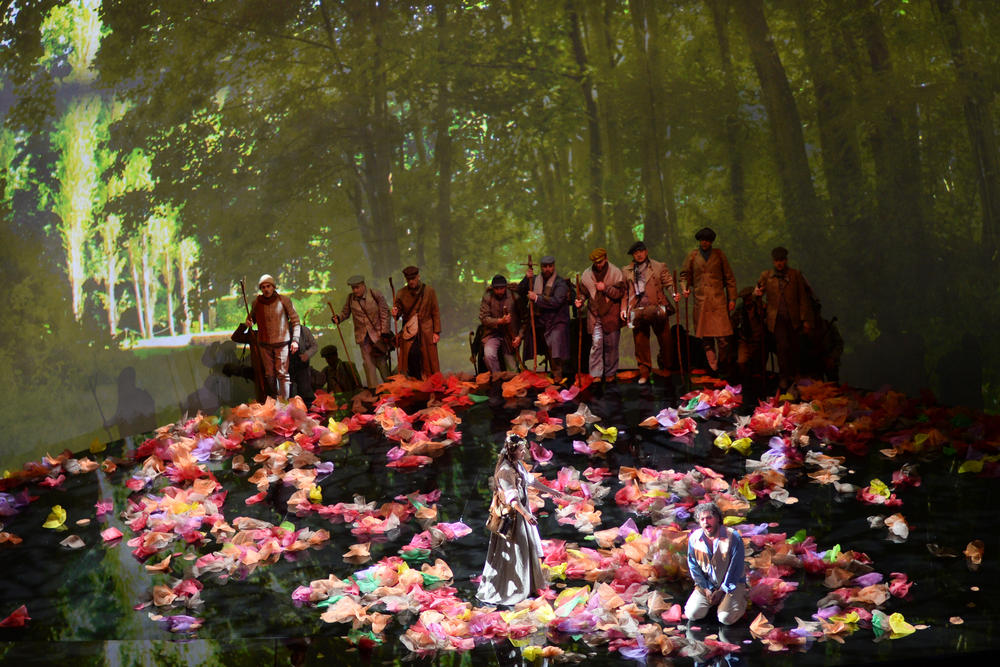

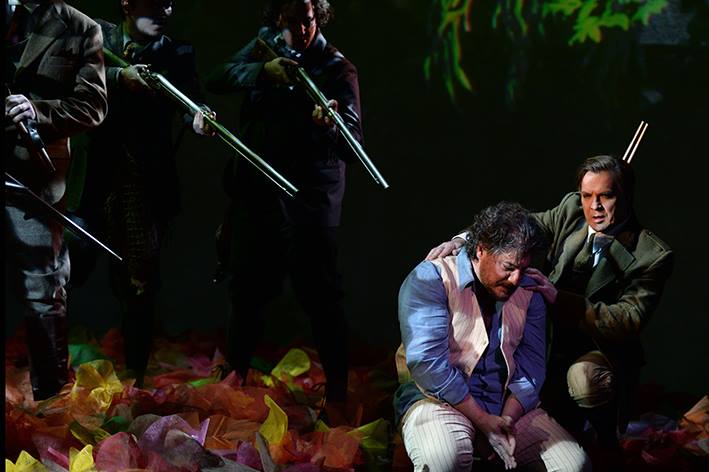
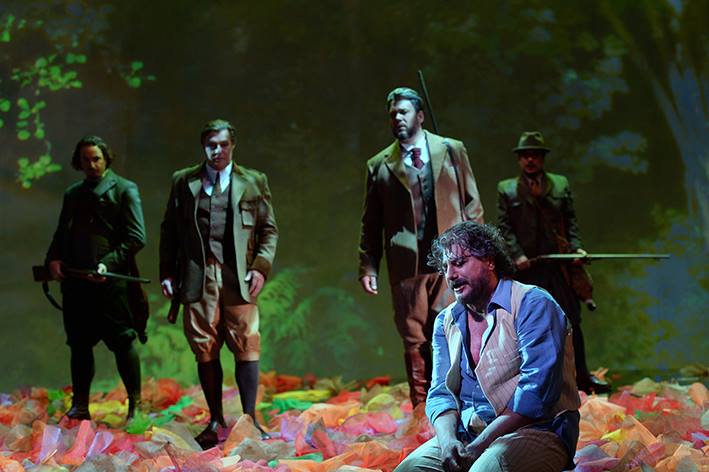
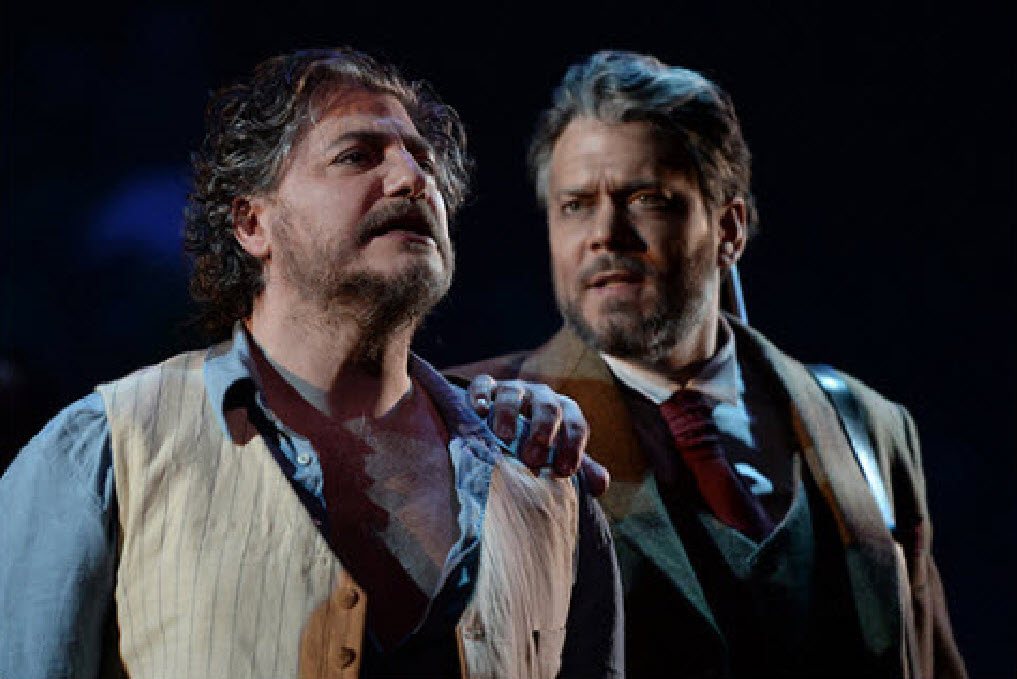
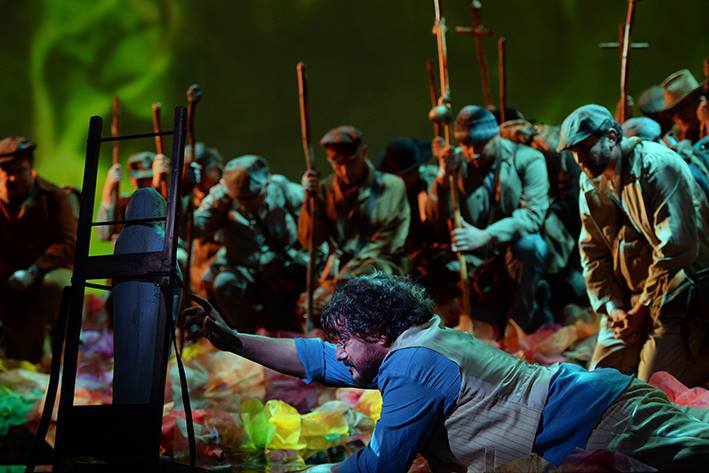
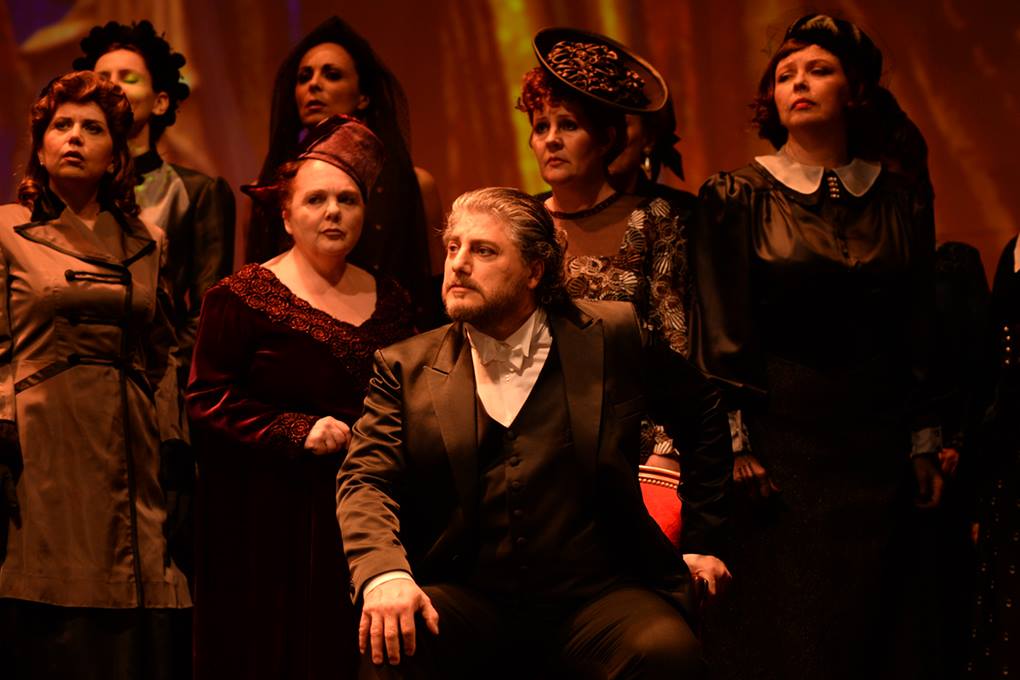
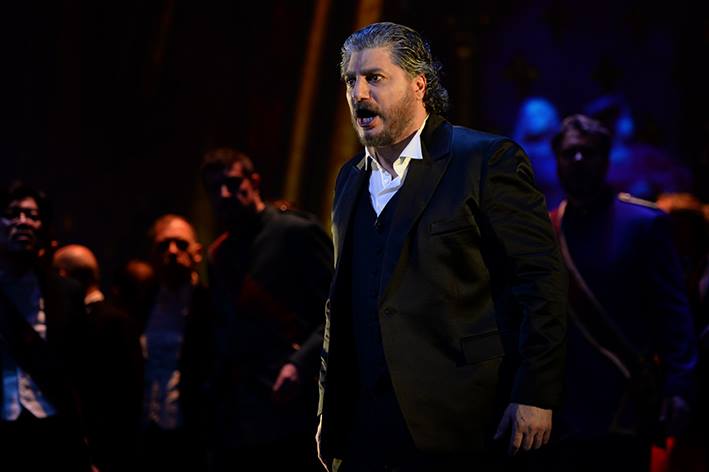
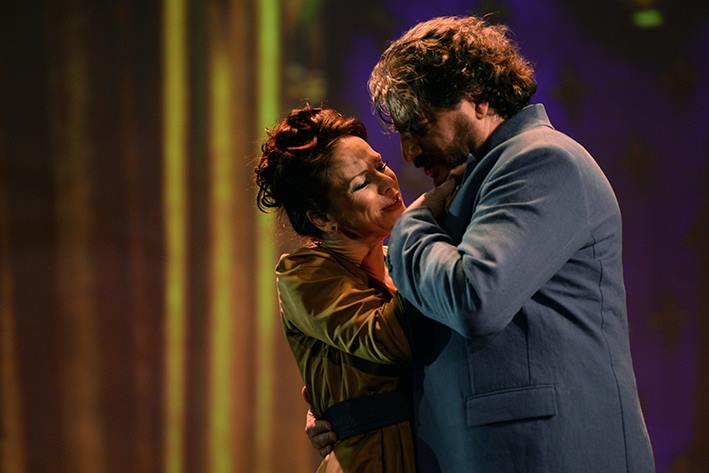
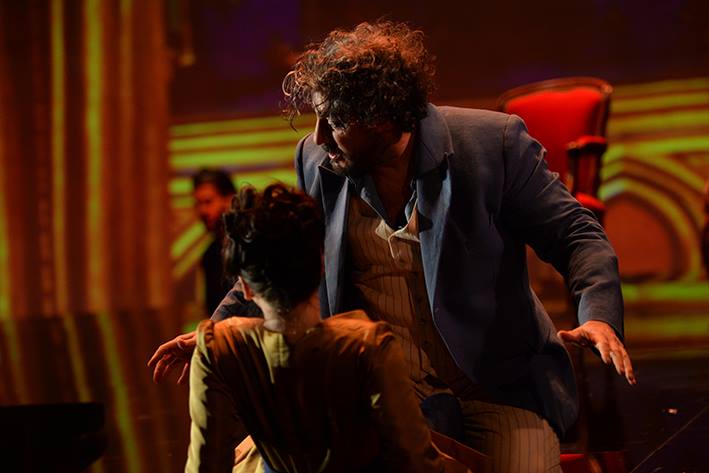
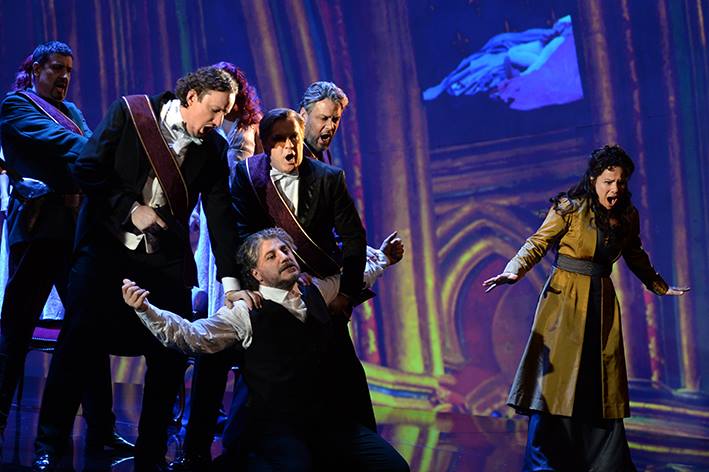
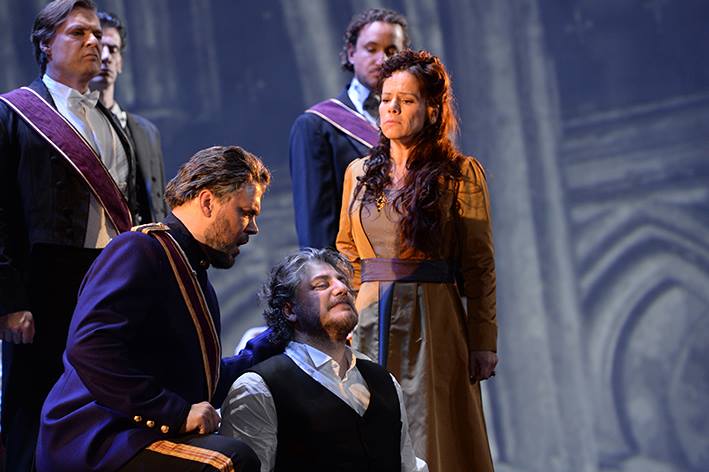
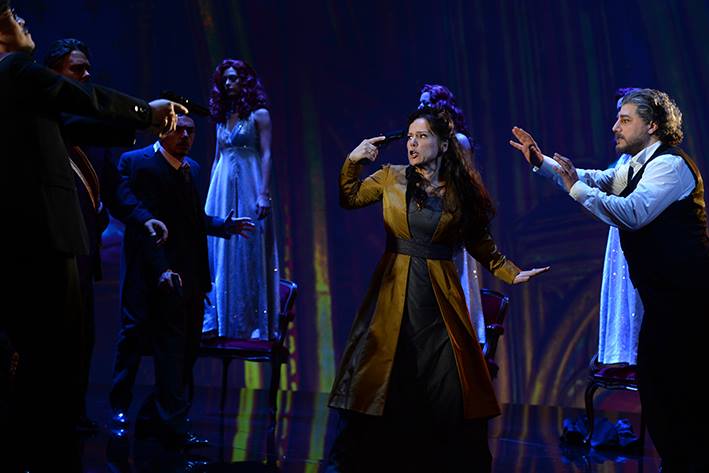
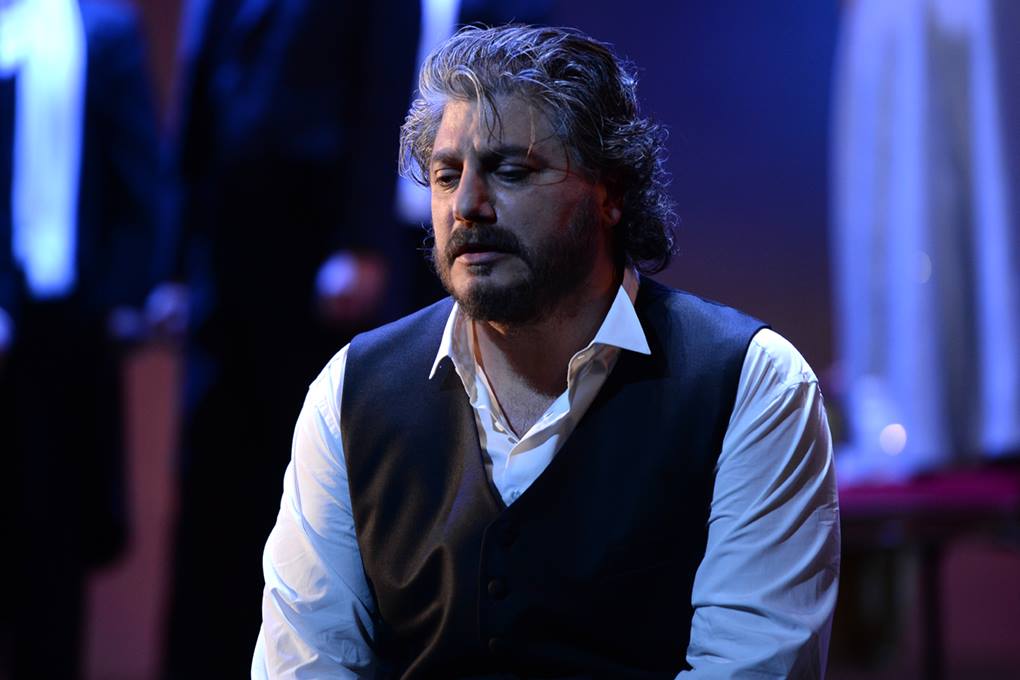
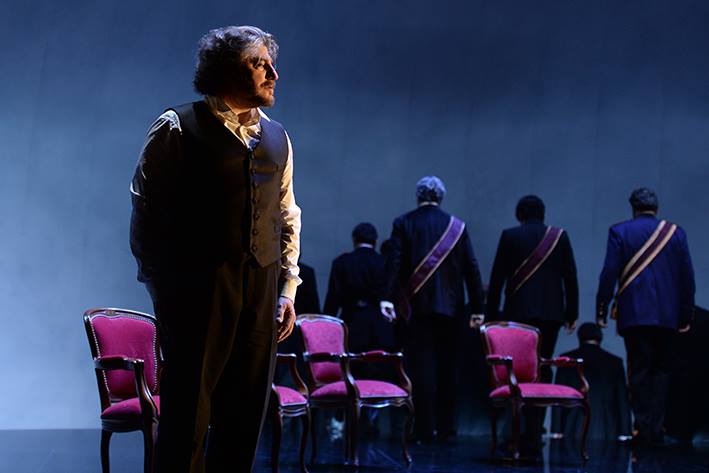
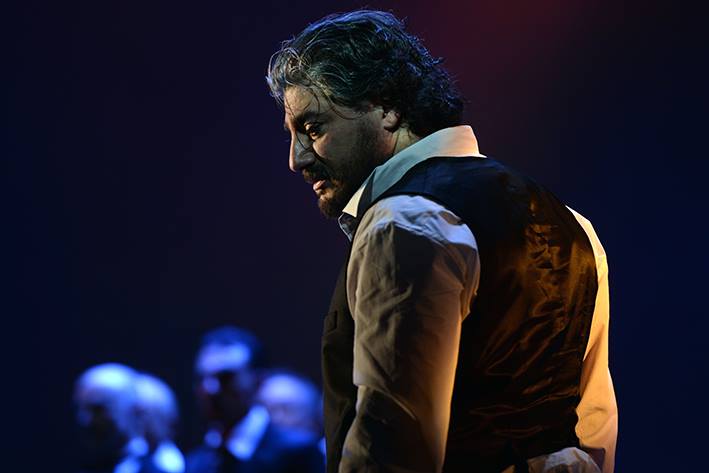

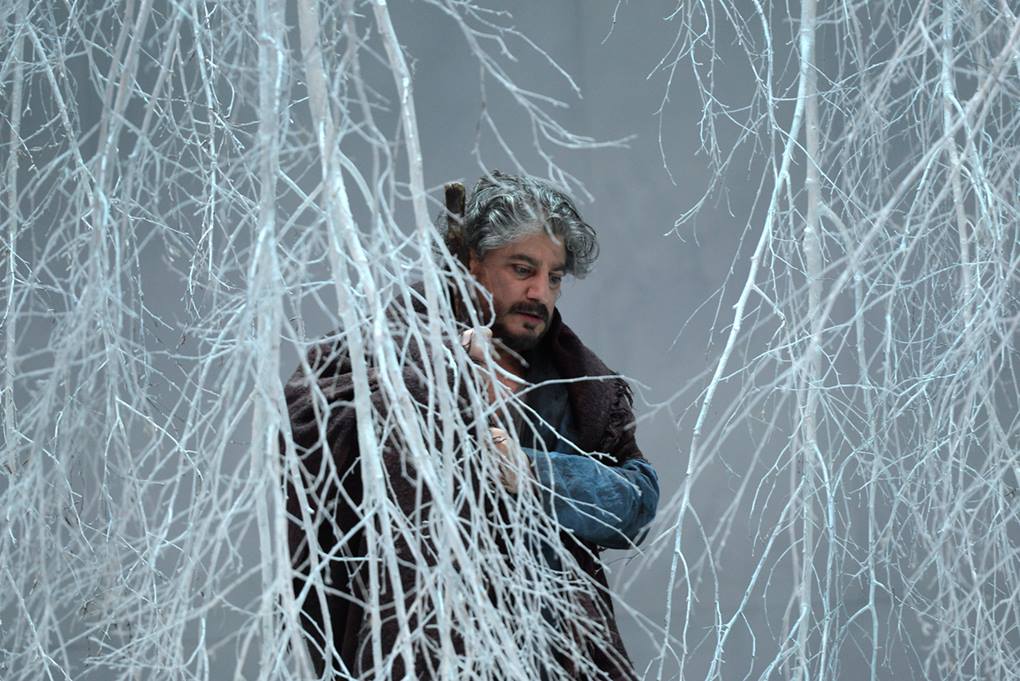
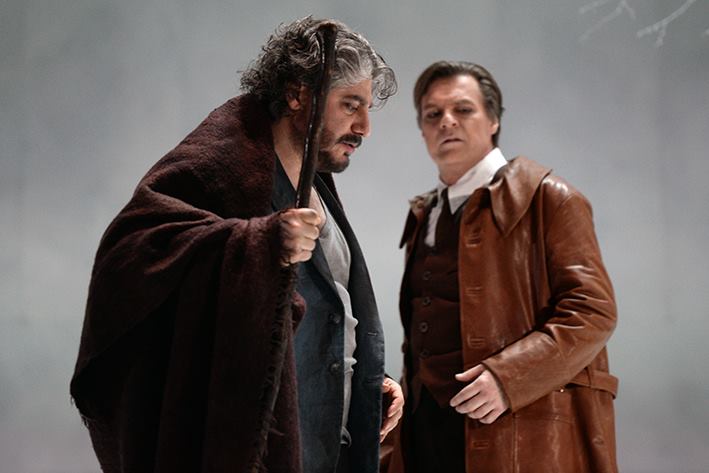
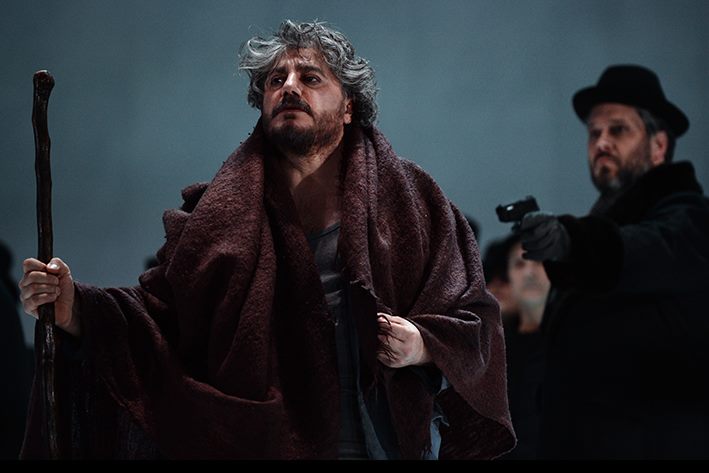
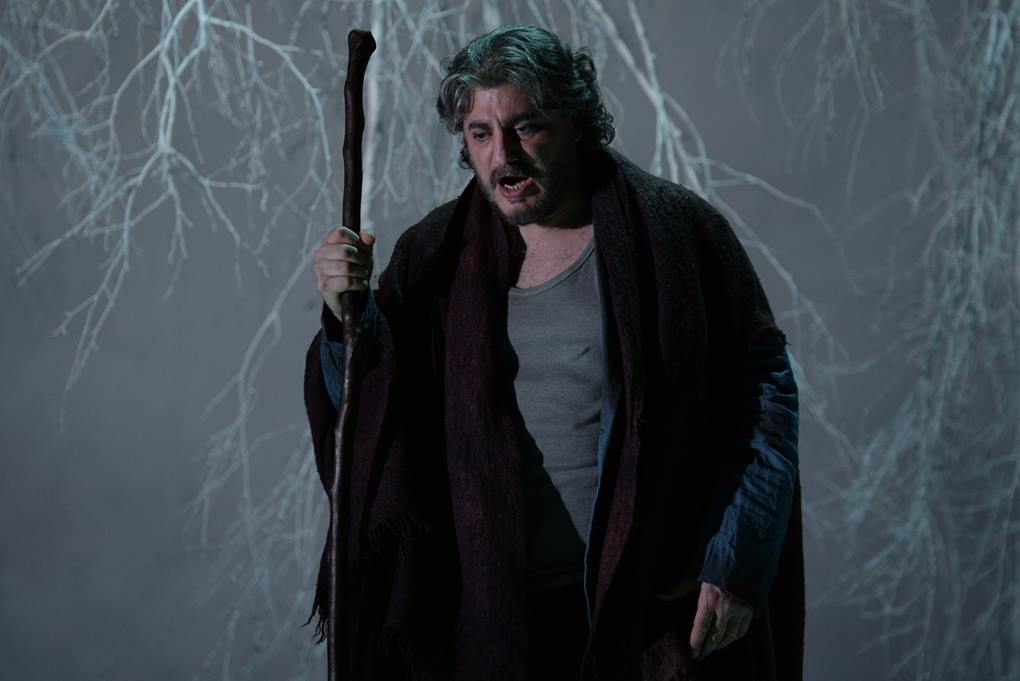
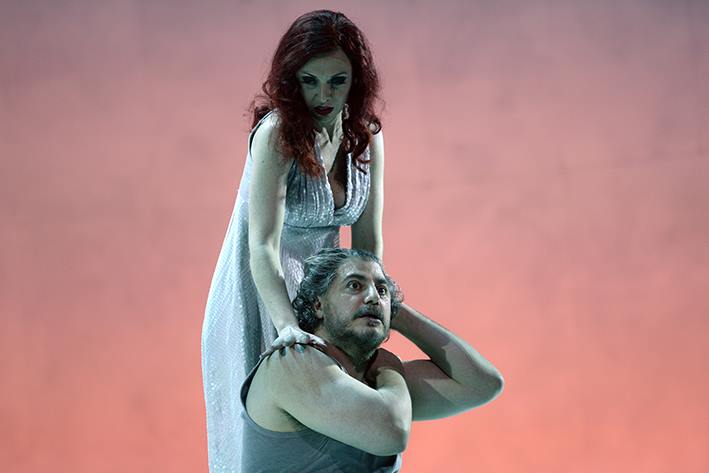
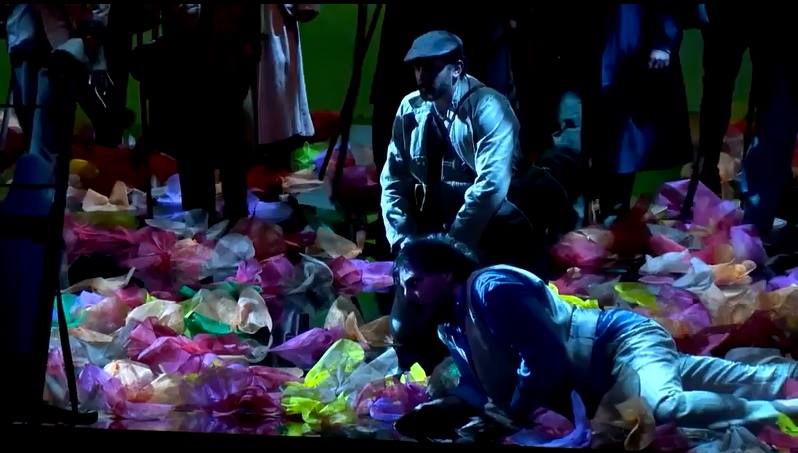
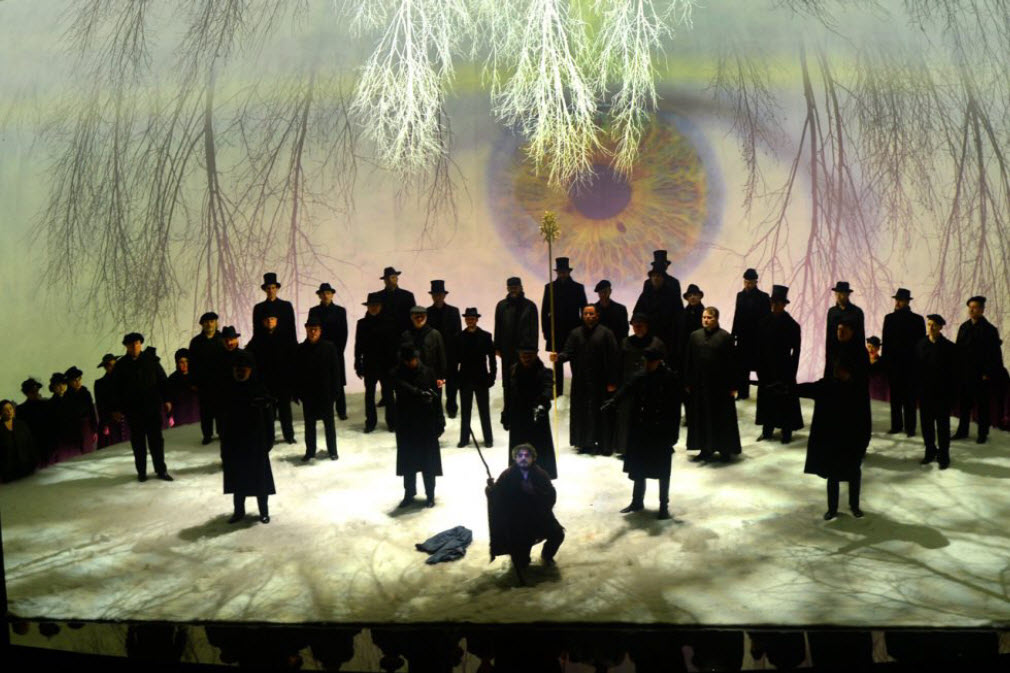
.jpg)
